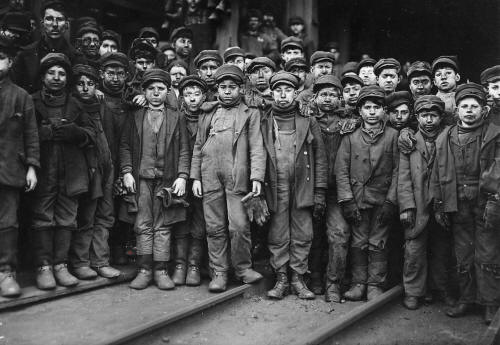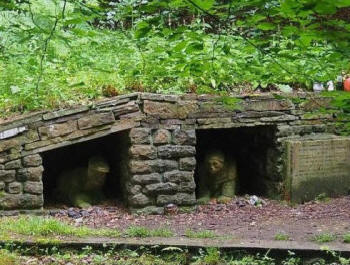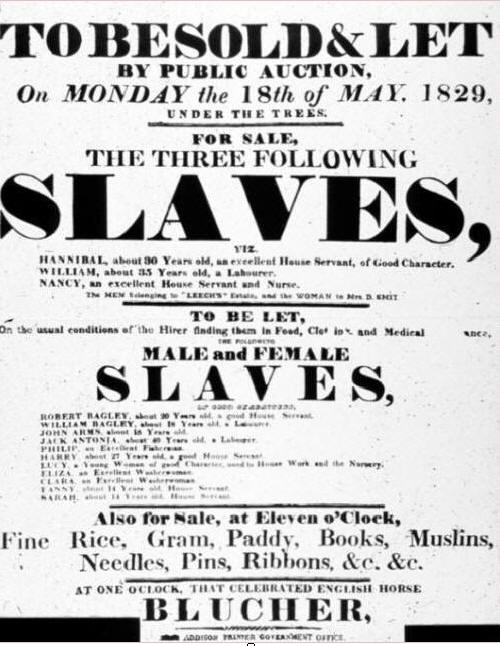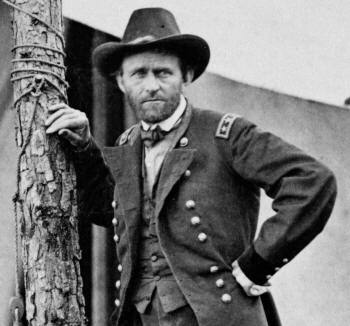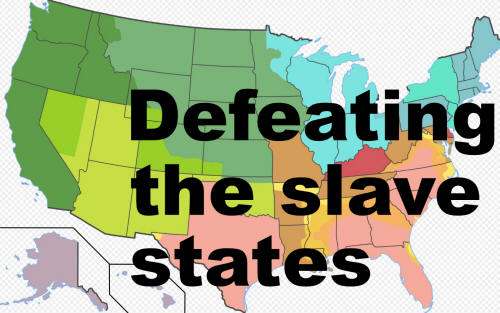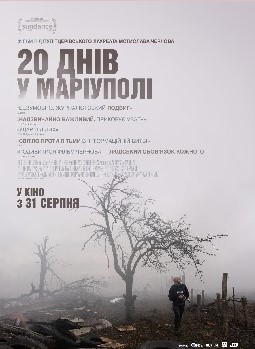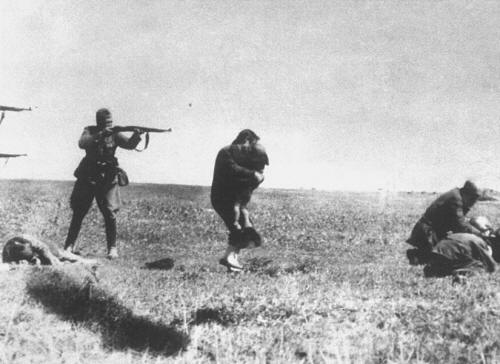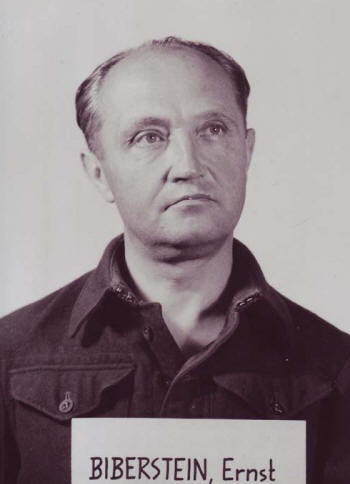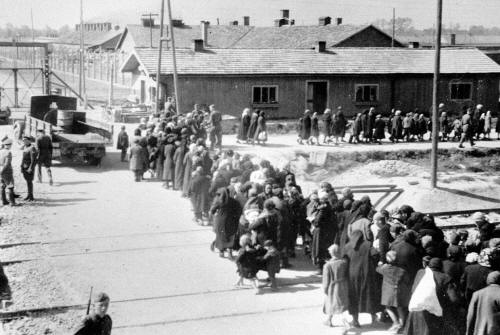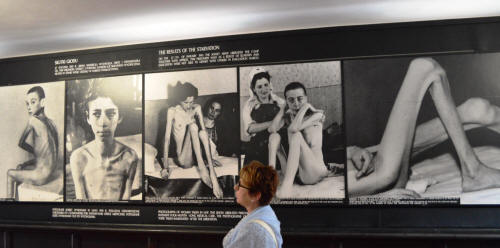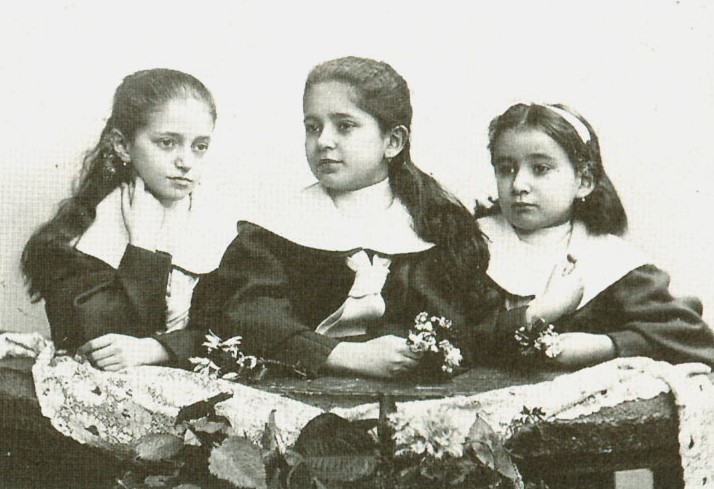Rock Christian Centre
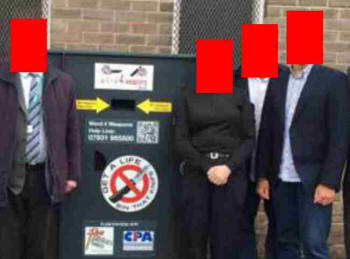
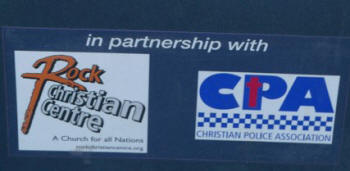
Above, top, a photograph from the Police and Crime Commissioner's Website
showing Alan Billings, on the left, and Paul Hunt, a Pastor at the Rock
Christian Centre, on the right.
A quote from the Website of Rock
Christian Centre which makes many claims, amongst them these:
God is outraged by abortion.
God is outraged by homosexuality.
God is outraged by blasphemy.
Rock Christian Centre is a 'participating Church' in the group of
Churches, 'Arise!' Sheffield Cathedral is on the list and so too is St
Thomas Philadelphia.


St Thomas Philadelphia is the place where, allegedly, a gay man was
allegedly subjected to an exorcism, involving prayer to rid him of the
'demons' allegedly causing his homosexuality. I have much more information
below about disturbing happenings at Rock Christian Centre and St
Thomas Philadelphia below - and about the decision of Alan Billings, the
South Yorkshire Police and Crime Commissioner, to award them grants from
public money. I give reasons for my view that this decision was disastrously
misguided.
The photographs above show a knife bin in the Burngreave area of
Sheffield, some of the people who attended a little ceremony in connection
with the placing of the knife bin, and a detail, stickers on the bin with
adverts for Rock Christian Centre and the Christian Police Association. The
Christian Police Association shares the hard core fundamentalist
conservative evangelical beliefs of the Rock Christian Centre - the Bible
infallible, 'God's Word,' hellfire for all and for eternity, apart from the
small minority who accept Jesus as 'personal Lord and Saviour.' More on the
knife bin below as well.
The original photographs above have been cropped and faces hidden in the
top photograph so as not
to infringe copyright. The other image in this column has been modified for the
same reason. If a claim is made that any of these images do infringe
copyright, then I will remove them. They reinforce the comments I make but
are not essential.
Below, the information that Alan Billings, the South Yorkshire Police and
Crime Commissioner, gave a grant - public money - to the Rock Christian
Centre and the Christian Police Association.
From the Website of Rock
Christian Centre, the page 'Why Christianity?'
http://www.rockchristiancentre.org/why-christianity/
The fury of Almighty God against evil is evidence of His goodness. If He
wasn’t angered, He wouldn’t be good. We cannot separate God’s goodness from
His anger. Again, if God is good by nature, He must be unspeakably angry at
wickedness.
But His goodness is so great that His anger isn’t confined to the evils
of rape and murder. Nothing is hidden from His pure and holy eyes.
He [God] is outraged by torture, terrorism,
abortion, theft, lying, adultery,
fornication, pedophilia, homosexuality,
and blasphemy. He also sees our
thought-life, and He will judge us for the hidden sins of the heart: for
lust, hatred, rebellion, greed, unclean imaginations, ingratitude,
selfishness, jealousy, pride, envy, deceit, etc. Jesus warned, “But I say to
you, that every idle word that men shall speak, they shall give account
thereof in the day of judgment. ” (emphasis added).
The Bible says that God’s wrath “abides” on each of us, and that every
time we sin [in the case of gay people, by being gay], we’re “storing up
wrath” that will be revealed on Judgment Day. We are even told that we are
“by nature the children of wrath” Sinning against God comes naturally to us—and we naturally earn His
anger by our sins.
https://southyorkshire-pcc.gov.uk/news/south-yorkshires-first-knife-bin-launched-in-spital-hill/
Alan Billings, the South Yorkshire Police and Crime Commissioner, quoted
on his own page:
“I am grateful to the Rock Christian Centre for allowing the bin to
be placed outside their premises and for the concerns they have for the
well-being of the area.”
Grateful for what? He made a grant - he gave public money to the Rock
Christian Centre and the Christian Police Association. He gave them free
publicity - above, a detail from the bin, on three sides of the bin,
publicizing the Rock Christian Centre and the Christian Police
Association.' The Christian Police Association (hember: Sergeant Simon
Kirkham) shares the hard-core fundamentalist beliefs of the Rock Christian
Centre. I work actively to oppose those beliefs. I consider them harmful.
But this is one sphere of activity and activism amongst many. My Web site
gives information about the others.
Paul Hunt has produced a whole series of You Tube videos, readings from
'God's Word,' 'The Bible.'
This is one of them, on Leviticus 20. Other examples in the
'Supplementary material' in the column to the left.

Above, image of Paul Hunt of Rock Christian centre reading from
Leviticus 20
https://www.youtube.com/watch?v=uyAjdOLe1Ao&t=188s
Paul Hunt reads out the text which is provided with the video, without
comment. Amongst the issues raised in this passage are these: bad language
to a father or mother, homosexuality, sexual relations during menstruation
and acting as a medium.
9] " 'If anyone curses his father or mother, he must be put to
death. He has cursed his father or his mother, and his blood will be on his
own head.
[13] " 'If a man lies with a man as one lies with a woman, both of
them have done what is detestable. They must be put to death; their blood
will be on their own heads.
[18] " 'If a man lies with a woman during her monthly period and has
sexual relations with her, he has exposed the source of her flow, and she
has also uncovered it. Both of them must be cut off from their people.
[27] " 'A man or woman who is a medium or spiritist among
you must be put to death. You are to stone them; their blood will be on
their own heads.' "
The Pastor mentions homosexuality at 2:10 into the video.
Public money given to the Rock Christian Centre and the Christian Police
Association was public money not given to charities which deserve support.
I oppose the view that organizations such as the Rock Christian Centre and
the Christian Police Association deserve support, financial or other. The Rock Christian Centre isn't so short of money that the money was
essential. It could have financed the knife bin without making an
application for a grant.
From the site
https://register-of-charities.charitycommission.gov.uk/charity-search/-/charity-details/5068321/full-print
which gives financial data for Rock Christian Centre for the financial
year ending 31 October 2021.
Total income: £322,067
Total expenditure: £221,799
The little ceremony to mark the placing of the knife bin was reported in
the local newspaper, 'The Star.'
https://www.thestar.co.uk/news/new-knife-bin-installed-south-yorkshire-bid-tackle-crime-435907
Alan Billings seems to have a liking for this kind of event. It
generates more publicity for him and this event generated publicity for
the Rock Christian Centre and the Christian Police Association. It gives
the superficial impression of vigour, of decisive action. Alan Billings surely
realizes that one knife bin isn't going to have more than a minor - an
insignificant - impact on knife crime, but again and again, he doesn't
think things through. His grasp of evidence-based policing is very
defective. In fact, even if there were a large number of knife bins in
Sheffield, the evidence that they would have an effect on knife crime is
much nearer to non-existent than to overwhelming.
Knife bins and media campaigns to help reduce violence have
little 'positive impact', research finds. Research suggests there is no
evidence that money spent on knife bins and high-profile media campaigns
to help prevent knife crime has “any real and lasting impact”.
This is from
Police Professional
which, unlike Dr Billings, really does have a good grasp of
evidence-based policing.
Knife bins and media campaigns to help reduce violence have
little ‘positive impact’, research finds
Research on the effect of Knife Bins was carried out by the 'Youth
Endowment Fund,' which is financed by the Home Office.
It said in the few UK evaluations available on the impact of
media campaigns, there were instances where – against the intention of
the campaign – young people became potentially more likely to carry a
knife. When asked about campaign images of knives, young people actually
said that it increased the perceived threat, which meant they felt a
greater need to protect themselves.
The Church Army
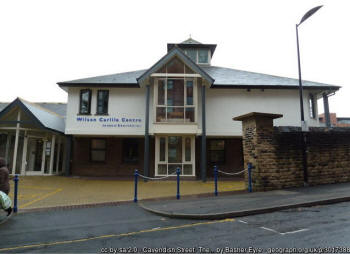
Above, the Wilson Carlile Centre, Sheffield, named after the man
who founded the Church Army, in 1887.
According to the Wikipedia
entry for Wilson Carlile,
https://en.wikipedia.org/wiki/Wilson_Carlile
When asked, "Why 'Army?' ", Carlile's answer was that the
evangelists intended to make war against sin and the devil.
What of the doctrines and beliefs of the Church Army?
Are they much the same or almost exactly the same as at the time
when the Church Army was in its infancy? What do contemporary
Christians at the Church Army make of the Biblical extract
which appears here
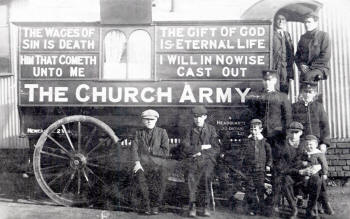
'The wages of sin is death?' The text in its entirety. It
comes from 'St' Paul's letter to the Romans, 6:23. The translation
of the King James Bible
For the wages of sin is death;
but the gift of God is eternal life through Jesus Christ our Lord.
The translation of the Good News Bible:
For sin pays its wage--death; but God's free gift is eternal life in
union with Christ Jesus our Lord.
Supplementary information: the King James of the King James
Bible is the same king who oversaw the trials and torture of many
women accused of witchcraft.
The King James translation of Exodus 22:18 is 'Thou
shalt not suffer a witch to live.' The King will have believed that
he had divine authorisation for his persecution of witches. The Good
News (!)Translation is 'Put to death any woman who practises
magic.' One of Scotland's most notable witch trials, supervised by
King James, took place between 1590 and resulted in the execution of
many, many women. I provide further information in this column in
the section on the Prayer Book
Society.
In Pauline theology - this 'gift of God,' eternal life is given
only to those who accept Jesus Christ as personal Lord and Saviour.
The vast majority of Christians throughout the centuries have
believed this. Wilson Carlile also believed this, as well as this:
Those who fail to accept Christ are eternally separated from God. Do
the people at the Church Army believe that their 'clients' are
condemned to eternal separation from God, in the state known as
'hell?' The Church Army makes it completely clear that the Church
Army is based on Christian faith but fails to make clear these (and
other) horrendous implications. Donors, potential and actual, should
know what kind of organization they are supporting, so that they can
make an informed choice.
Peter Rouch is the Chief Executive Officer of the Church Army. Dr Tim Ling is described as the 'Director of Organisational
Learning' What exactly is 'organisational learning?' How does it
differ from ordinary learning? The Church Army Website doesn't
explain. He's also described as 'the Director of the Learning and
Development Team' at the Church Army. One of his functions is this: 'He provides strategic
oversight for the work of the Research Unit. Previously, Tim
led the Church of England’s ministry research, including
longitudinal studies on sustaining an effective ministerial
presence.' I provide further information below, including general
information on the irrelevance and uselessness of the Research Unit.
I do recognize that the Unit has relevance and usefulness for
the people it employs and pays, but I'd claim that their activities achieve nothing
of wider value.
I have personal experience of some aspects of the methodology of
Dr Ling - the methods he's used with relevance to free expression.
I've experience of his blocking and banning. They amount to
censorship, in my view.
The Research Unit of the Church Army employs some high-level
statisticians. They can be relied upon to ensure that the relatively
small samples examined in the course of Church Army research conform
to good statistical methodology. What the Church Army doesn't do is
to look at the bigger picture, to take into account the overwhelming
obstacles facing the Church and to publish findings in an honest and
open way. I'm referring to such stark evidence as this, which the
Church Army surely evades:
Reputation management' is taken seriously by the Churches - for a
variety of reasons, such as the wish to maintain the flow of donations,
but reversing the decline of reputations can be far from easy -
impossible.
Reversing declines in Church attendances likewise. The information
which follows concerning church attendances is quite long. To skip it
and read about other matters, please
click here.
From the page
https://www.theguardian.com/world/2018/sep/
07/church-in-crisis-as-only-2-of-young-adults-identify-as-c-of-e
The Church of England is facing a generational catastrophe with
only 2% of young adults identifying with it, while seven out of 10
under-24s say they have no religion, research reveals.
C of E affiliation is at a record low among all age groups, and
has halved since 2002, according to the British
Social Attitudes survey. Far fewer actually attend church
services on a regular basis.
Meanwhile, the trend towards a secular society has increased over
recent years. The BSA survey found that 52% of people had no religion in
2017 compared with 41% in 2002. However, the proportion last year was
slightly down on 2016, when 53% said they had no religious affiliation.
The demographic breakdown in the new data is particularly
unwelcome news for the church. Younger people are significantly less
likely to identify with the C of E than older age groups, and evidence
suggests that people rarely join organised religion in later life. The
trend indicates that affiliation with the C of E could become negligible
with successive generations.
People over the age of 65 are most likely to say they belong to
the C of E. But at 30% it is still a minority, and the proportion has
fallen from 52% in 2002. This older demographic also saw the biggest
increase in those saying they had no religion, up from 18% in 2002 to
34% last year.
The proportion of people of all ages identifying with the C of E
has fallen from 31% in 2002 to 14% last year. The sharpest decline was
among 45- to 54-year-olds, from 35% to 11%.
Overall, 8% of people identify with the Roman Catholic church, 10%
with other Christian denominations and 8% with non-Christian faiths.
[Only the number of those with no
religious belief have risen, new figures show]
Researchers found a significant gap between people identifying
with a church and those attending church services. Of those who say they
belong to the C of E, only one in five attends church at least once a
month, apart from weddings and funerals. Among Roman Catholic adherents,
two in five attend church at least once a month.
In Scotland an
even higher proportion of people – 56% – say they have no religion and
18% say they belong to the Church of Scotland, although only a quarter
of those attend church at least once a month.
Roger Harding of the National Centre for Social Research, which
conducts the BSA survey, said the figures showed “an unrelenting decline
in Church of England and Church of Scotland numbers. This is especially
true for young people where less than one in 20 now belong to their
established church. While the figures are starkest among younger people,
in every age group the biggest single group are those identifying with
no religion.
The research of the Church Army can be regarded as irrelevant -
frivolous, even - in the face of such challenges.
An extract from the page
https://churcharmy.org/our-work/
Through our work, we want the Jesus we know to be a household
name because people everywhere have found freedom and a renewed
vision for life ... Your generosity is a gift, and our work is only
possible because of you.
Find out how you can give.
The pages of this site, including this one, give a very different
view - of homosexuality-hating Christian communities, of Christian
communities which, following the example of Jesus, actively believe
in demons and think that demons can be responsible for problems, of
young people encouraged to pray rather than seek professional advice
for health and mental health problems - and, of course, of converts
and people they want to become converts encouraged to give to the
Churches and to the Church Army, to believe in Jesus and to believe
that the Churches and the Church Army are somehow unique. In all the
areas in which they work - except, of course, for their work in
'saving souls for Christ' - there are many, many secular
organizations, statutory and voluntary, which carry out very
effective work. Donors should give their money to these secular
volunteer organizations rather than to the Church Armey, which
diverts a substantial proportion of the money it receives into
evangelism.
A direct question to the Church Army - do you or don't you believe
that of the people supposedly helped by the Church Army, only the
ones who accept Jesus as personal Lord and Saviour are redeemed, and
that all the others, drug-dependent adolescents, children brought up
in horrific circumstances, all of them, are condemned to be
eternally separated from God? If you don't believe this to be the
case, then I'm sure you have some explaining to do - the fact that
Biblical 'evidence' shows otherwise, the fact that the majority of
Christian believers, past and present, believe otherwise. I don't
think it's likely in the least that you will be willing to explain.
The Church Army can't regard the relief of deprivation and helping
the needy as central to its work, since according to Christian
belief, poverty, disease, human suffering in general are far less
important than the correct relationship with Christ, which has
consequences for the eternal destinies of individuals. My view is
that the relief of deprivation and helping the needy is less
important to the Church Army than maintaining its paid staff in the
positions they occupy. My view is that the continued flow of
donations is very important to the Church Army for this reason - to
pay the salaries of its staff and to maintain its buildings, even if
it's not the only reason.
From the page on the outfit with the clumsy name of 'Missional Youth
Church Network
https://www.mycn.org.uk/
Enabling 11 - 18 year olds to build community and discover faith
in Jesus Christ.
The Church Army's Research Unit is a money-consuming churner-out of
irrelevant data and false conclusions - irrelevant and false when
considered in the light of the secular statistical data and
conclusions quoted at the beginning of the section.
https://churcharmy.org/our-work/research/
The page makes this claim:
OUR RESEARCH
SEEING AND SHARING WHAT GOD IS DOING IN MISSION
But the mission is failing. An honest look at the facts would surely
make this conclusion inescapable. An honest look at the facts
and reporting honestly wouldn't encourage the flow of donations.
How do the people in the Church Army Resarch Unit spend their
time? Some of the current research projects, taken from the page
https://churcharmy.org/our-work/research/current-research/
Jesus Shaped People outlines a 'vision' which will
supposedly lead to 'the revitalisation of the Church.' Big ambition,
very big ambition. Chance of realizing it by means of this
initiative? Surely, non-existent. The information ends with this far
less confident assertion: 'We trust that this will bring hope to all
[to all?] as we seek to become Jesus Shaped
People.' That is, people who believe, like Jesus, God the Son, that
all the barbaric commands and actions of God the Father cited in The
Law were actually the commands of God, with God the Son in full
agreement.
And a few more examples of the Research Unit in action. Donors -
this is how the money you give may be spent.
The page
https://churcharmy.org/our-work/research/who-we-are/
mentions 'Bespoke dashboards to support and inform mission
planning.
It also mentions 'Customised survey design and analysis,
including surveys and audits of fresh expressions of Church.'
Scrolling down the page gives access to the section 'Meet the Team.'
It includes this, on Dr Tim Ling, 'He provides strategic oversight
for the work of the Research Unit.' My own experience of Dr Ling in
action is very unfavourable. My experience is of him as a banner and
blocker. More on this below.
'Fresh expressions of Church' is a phrase often used in
these circles. It refers to initiatives, supposedly exciting
initiatives which attempt to convert people in settings outside the
buildings of the established Church. A decisive objection to these
initiatives is that they leave the dogmatic core of the faith which
is offered untouched. They rely upon stale (and frequently
horrific) Biblical teaching. They have nothing to offer to the
modern world. They have close linkages with the Christian belief of
previous centuries. I've no need to give a reminder of the abuses
and cruelties of those centuries here. Other pages of the site, and
this page too, provide abundant evidence.
One example of a 'fresh expression of Church:' a Garden Church. I
found that a Garden Church was planned for an allotment site near to
my own allotments. I don't give here the name of the person who
publicize the proposed Garden Church here. She was a member of the
Research Unit of the Church Army at the time. I sent her this email,
with a copy to Tim Ling, who could be expected to find it relevant
to his work. The Research Unit promotes these 'fresh expressions'
and carrious out research into the supposed effectiveness of some of
them. (I can't find any record of a research finding that the
initiative was useless. In this world of ever onwards and upwards,
of extreme optimism, very disappointing outcomes aren't welcome.)
The email was courteous and simply presented some difficulties. I
sent it to Tim Ling a short time before sending it to 'the other
person.' the one who publicized the proposed Garden Church. The reaction of Tim Ling
must have been not far short of
instantaneous. His reaction was one of banning and blocking. He
blocked the email to the 'other person' - and to all members of the
Research Unit. This is still the case. This was a disturbing act, surely.
This was the
beginning of a long and complex series of events. The 'other person'
complained to the police about receiving unwanted emails from me on
various occasions.
The fact is that she has never received a single email from me. I
pointed out this fact to the police, but the police took further
action. More exactly, a fundamentalist conservative evangelical
Christian sergeant decided to take action. The disastrous
series of events is recorded in the third column of my page
https://www.linkagenet.com/themes/alan-billings-pcc-scrutiny-accountability2.htm
Further aspects are recorded on some other pages.
A copy of the email
received by Dr Tim Ling but not received by 'the other person,' the one who
posted information on the St Mark's Website.
Dear -
'I write in connection with this post on the St
Mark's Website:
'SHEFFIELD FOREST CHURCH – SATURDAY 11 SEPTEMBER AT 2.30PM
'After a summer break, we’re back! Join us for
Forest Church on the theme of Creation at the Garden Church in Walkley
(Walkley
Community Garden, Morley Street S6 2PL) for time to be and
worship in God’s creation. Bring a drink and a snack for after the
service! Our services are intentionally all age and LGBTQ+ affirming, so
whatever stage of life or journey you’re on – you’re so very welcome! For
more information, you can find us on facebook or email
sheffield.forest.church@gmail.com
'I have two allotments on the Morley Street site
in Sheffield. I was dismayed to find that the Forest Church is planning to
hold this event at Morley Street this Saturday.
The plan is disastrously misguided, surely. These are
some objections:
'The place where it is planned to hold the event
is rented land. These are Sheffield Council allotments and as such, are
subject to allotment law. The allotments are rented by Lower Walkley
Community Group (LWCG). The group's decision to give permission for the
Forest Church to hold the event was very misguided but I have evidence to
show that throughout, the use of the land by LWCG has been incompetent.
'[You are] seemingly unaware of the legislation applicable to
allotments which is intended to protect the safety of the public and the
issue of legal liability. Allotments do have hazards, and in the event of
injury to a member of the public attending the event at the 'Forest Garden,'
there could easily be severe legal consequences.
'According to information I've received, a
fundamental disagreement concerning access to the Community Garden
precipitated dissension within the group, leading to members going their
separate ways and the neglect of the garden, which lasted for many years
until this year, when some work has been done, although hardly any of it
to do with the growing of food plants. There was a short period when
access to the garden was restricted, by a locked gate, but for most of
the time, anyone who wanted to enter the garden was able to.
A very
striking , and very off-putting feature of the garden is the very large
heap of rubbish, very long as well as high - discarded plastic, rubbish
of many, many kinds, with further rubbish in some Council Wheelie bins.
If it's assumed that this was all left by fly tippers, it can't be the
only explanation. I think these must have been left by the Group itself.
[I've since received information from a reliable source, a person who
has an allotment near to my own allotments, that the fly-tipping was the
action of a member of the Community Garden Group. Amongst the discarded
plastic containers are ones which once held organic seaweed fertilizer.
'I've been informed that youths have sometimes
gathered in the LWCG garden and been involved in solvent abuse. I can't
verify this but an open garden obviously carries security risks. The
LWCG garden is some distance from the road, down the long and gloomy
heavily path by the side of the Walkley Bank Allotment Association hut.
The garden itself is shielded from view. It may not be likely that the
church members would meet trouble but if they ever did, this isn't the
kind of place where it would be easy to get help quickly. I don't think
this is being too alarmist. About thirty years ago, there was a murder
on an allotment site in the Rivelin Valley. Three youths were sniffing
glue in the allotment. Two of them turned on the third and stabbed him
with a garden tool. In the time I've had my allotments, there have been
some troubling incidents affecting allotment holders, including
threatening behaviour directed at them. The Forest Church has ignored
the serious problems to do with security.
'A Christian event at an allotment site would set a very troublesome
precedent. Allotments are primarily places for growing food but they
have other uses. From the introduction to 'Jane Grigson's Vegetable
Book:'
'In my most optimistic moments, I see every town ringed again with
small gardens, nurseries, allotments, greenhouses, orchards, as it was
in the past, an assertion of delight and human scale.'
Allotments should not be places for Christian
evangelism or Christian worship. Christians have many other venues
available for that. There is no need to use allotments at all.
Allotments are not the place for the singing of hymns for preaching or
for public prayer.
I hope that this conveys some of my reasons for disagreement'.
Paul Hurt.
'We challenge and equip the church to take the
gospel of Jesus Christ to those who have little or no connection
with it.'
This is the claim of the Church Army, according to the Website of the Charity Commission for
England and Wales, which also records that the income of the Church Army
for the financial year ending 31 March 2022 was £6,373,000.
The thought occurs - how many people accepted 'the gospel of
Jesus Christ' in that financial year as a direct result of the Church Army's
activities? What is the approximate ratio of souls saved to
£££ spent or £1000 spent? If only 20 souls were saved, it seems a very poor return. Perhaps the ratio was
much more favourable, perhaps as many as 5,000. All the same, 5,000
souls is a tiny proportion of the total population. All these
evangelistic operations are confronted by the same hard reality - so
many people losing the chance of salvation, vast numbers of people,
the majority of the population - if only the Church Army's income
were far, far greater, allowing it to save the souls of far more
people. Even then, the statistics would be against
them.
The finances of soul-saving are an under-researched aspect of
Christian evangelism. I very much doubt that the Research Unit of
the Church Army will have done any
work on the issue.
St Mark's Church, Sheffield
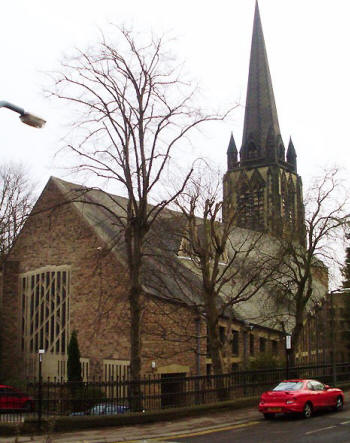
Above, St Mark's Church, Sheffield.
The church was built 1868-1871 but the building was almost
completely destroyed by a Nazi incendiary bomb during the 'Sheffield
Blitz' of 12 December, 1940. Only the spire and a porch survived. These
remnants were the basis of a new church, constructed 1958-1963.
Sue Hammersley is vicar at St Mark's Church. From the Youtube video
'Via Dolorosa.' Her facile and superficial address/sermon on suffering
turns out to put the emphasis on something very different. She says,'
This service is a reminder that God's love permeates every part of our
life ... even our own sense of being crucified.' This is playing with
words, words she finds impressive but with no relation to realities.
From my comments below, quoting from the book by Peter Kolchin,
'American slavery:'
'Slaves who transgressed could look forward to a wide range of
punishments - most imposed informally by owners and overseers but some
officially meted out upon sentence by special slave courts that existed
in all the Southern colonies - including branding, nose slitting;
amputation of ears, toes, and fingers (and less often of hands and
feet): castration; and burning at the stake.'
Sue Hammenlsey, and the people who patiently listened to her address
at St Marks, may feel 'We share your pain! We share your experience of
being burned alive! They may feel that the victim has the assurance of
God's love, which permeates every part of his or her life, until the
flames do their work. What of what comes after? Does God's love suddenly
end? Does it go beyond that? According to orthodox Christian belief,
held by so many millions over the millennia, God then judges the slave
burned alive, and if the slave hasn't accepted Christ as personal Lord
and Saviour, then the slave spends an eternity of separation from God.
It may well be that the slave was treated so atrociously (perhaps by a
slave-owner who had this all-important faith in Christ) that he or she
couldn't give thought to the destiny of the soul. The slave was
preoccupied with punishments, such as branding and amputation, and
back-breaking work.
if all this doesn't disturb Sue Hammersley's calm assurance that
God's love permeates every part of a slave's life, then she could read
the Wikipedia page on Thomas Thistlewood, an 18th century planter and
slave-owner who emigrated to Jamaica. There are extracts in the fourth
column of the page.
I take the view that Sue Hammersley finds the 'word sphere' very
congenial, certain realities much less congenial. The 'word sphere' in
this sense allows the believer to indulge in complacency by spinning a
web of words. Inside this cocoon, the glow of calm assurance can be
enjoyed and indulged.

Above, part of a wreath supplied by the pacifist 'Peace Pledge
Union.' An image of the wreath appears on the St Marks Facebook page.
Below, material on the Peace Pledge Union and its mixed but
overwhelmingly poor record in relation to Nazi German. The wreath is 'for
all those who have died or are dying in wars ... ' The
Peace Pledge Union obviously thinks that the fallen are equally
deserving - the Nazi soldiers who had previously carried out executions
of civilians and massacres of civilians, the Nazi soldiers who promoted
and fended the Nazi's demented and barbaric policies - and the soldiers
of the allied forces who liberated the extermination and concentration
camps and freed the world of the nightmare of Nazism. Some of the people
at St Mark's Church seem not to have noticed this.
There's a great deal of material on St Mark's Church on my page on
Christian Religion as well as other material relevant here, such as my
comments on Christian belief and slavery, under the graphic image of a
slave who has been flogged.
The Nazi Holocaust and all the other Nazi
barbarities were eventually brought to an end not by prayer, not by the
Churches, not by earnest but naive people - I've reason to think that St
Mark's Church contains some instructive examples - but by military
action, costly in lives, necessarily involving massive financial
resources and resources of other kinds, and in so many other ways.
I include more material on the Second World War
here but begin with material on the American Civil War. This war brought
an end to slavery in the United States, something which no amount of
wishful thinking, praying or any other method had achieved. Ineffectual
church goers of the St Mark's kind or any other kind had failed to end
this nightmare.
From the Wikipedia entry on the Peace Pledge Union:
Like many in the 1930s, the PPU supported aspects
of appeasement
... It backed Neville Chamberlain's policy at
Munich in
1938, regarding Hitler's claims on the Sudetenland as
legitimate. At the time of the Munich crisis, several PPU sponsors tried
to send "five thousand pacifists to the Sudetenland as a non-violent
presence", however this attempt came to nothing.
Peace News editor
and PPU sponsor Jahn Middleton Murry
and his
supporters in the group caused considerable controversy by arguing
Germany should be given control of parts of mainland Europe. In a PPU
publication, Warmongers, Clive Bell said that Germany should be
permitted to "absorb" France, Poland, the Low Countries and the Balkans.
However, this was never the official policy of the PPU and the position
quickly drew criticism from other PPU activists such asVera Brittain
and Andrew
Stewart. Clive
Bell left the PPU shortly afterwards and by 1940 he was supporting the
war.
Some PPU supporters were so sympathetic to German
grievances that PPU supporter Rose Macaulay claimed she found it
difficult to distinguish between the PPU newspaper Peace News and
that of the British Union of Fascists
(BUF), saying,
"occasionally when reading Peace News, I (and others) half think we have
got hold of the Blackshirt [BUF
journal] by mistake". There was Fascist infiltration of the PPU and
M15 kept
an eye on the PPU's "small Fascist connections".After
Dick Sheppard's death in October 1937, George Orwell , always hostile to pacifism,
accused the PPU of "moral collapse" on the grounds that some members
even joined the BUF.However, several historians note that the situation
may have been the other way around; that is, BUF members attempted to
infiltrate the PPU.
Historians have differed in their interpretation of
the PPU's attitude to Nazi Germany. The historian Martin Gilbert said, "it is hard to
think of a British newspaper that was so consistent an apologist for
Nazi Germany as Peace News," which "assiduously echoed the Nazi press's
claims that far worse offences than the Kristallnacht
events
were a regular feature of British colonial rule". But David C. Lukowitz
argues that, "it is nonsense to charge the PPU with pro-Nazi sentiments.
From the outset it emphasised that its primary dedication was to world
peace, to economic justice and racial equality," but it had "too much
sympathy for the German position, often the product of ignorance and
superficial thinking". Research by the historian
Richard Griffiths, , published in 2017, suggests
considerable division and controversy at the top of the PPU, with the
editors of Peace News being
generally more willing to play down the dangers of Nazi Germany than
were many members of the PPU Executive.
Controversy over the PPU's attitude towards Nazi
Germany has continued ever since the war. In 1950, Rebecca West, in her book The Meaning of Treason,
described the PPU as "that ambiguous organisation which in the name of
peace was performing many actions certain to benefit Hitler". The
publishers removed the phrase from subsequent editions of the book
following representations by the PPU, but West refused to apologise ...
Initially, the Peace Pledge Union opposed the Second
World War and continued to argue for a
negotiated peace with Germany. On 9 March 1940, 2,000 people attended a
PPU public meeting calling for a negotiated peace. PPU membership
reached a peak of 140,000 in 1940.
The critical attitude towards the PPU in this period was
summarised by George Orwell, writing in the October 1941 issue of
Adelphi magazine:
"Since pacifists have more freedom of action in countries where traces
of democracy survive, pacifism can act more effectively against
democracy than for it. Objectively, the pacifist is pro-Nazi".
I wouldn't endorse his comment that 'objectively, the pacifist is
pro-Nazi.' I do maintain that pacifists harmed the allied struggle
to overcome Nazism. The harm was comparatively slight only because
the pacifists were comparatively powerless, with very little
influence over events.
Another naive group, Extinction Rebellion, have been promoted on
the St Mark's Website:
‘On 7 October, XR launched its largest worldwide action. In
London thousands of rebels joined the rebellion for up to two weeks,
spurred on by the need to act now for our climate before it is too late.
Myself, and other members of St Mark's, are just some of those rebels.
For us, XR speaks truth to power, where a strategy of non-violent
disruptive civil disobedience is a way to make effective positive change
in order to save this planet from human destruction. ‘My Christian faith
felt central to the call from XR to ‘Act Now’, and I spent much of my
time in London with Christian Climate Action (the Christian 'wing'),
praying, taking part in actions, and doing the daily offices, including
Eucharist in front of the police line. Despite the noise, the clamour,
the thousands of arrests, the tears, the rain, the fear and the
apprehension, it felt like a profoundly holy place. I was shoved, spat
at by passers-by, threatened with a night in the cells but kept on, like
so many others, joined in union and in partnership that though peaceful
action profound change could be made. Christ was present in the mess of
it all and with a collective hope (like fresh water) that we were once
again renewed in God's call to us, to be stewards of God's creation...
And it was good…’ Margaret Ainger
Action and inaction in the Diocese of Oxford
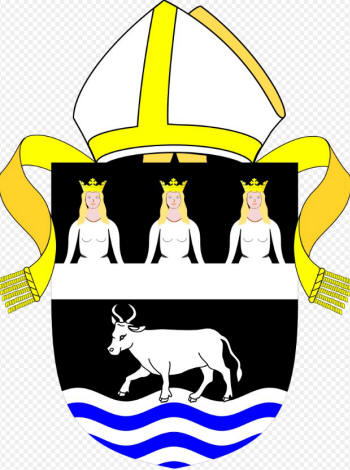
Diocese of Oxford
https://www.churchtimes.co.uk/articles/2023/28-july/news/uk/vicar-s-spiritual-abuse-went-on-for-decades-despite-complaints-to-his-bishop-review-finds
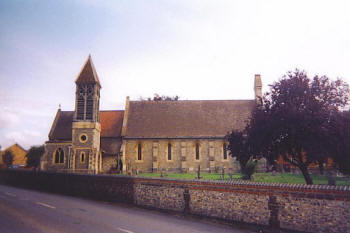
Above, St Margaret's Church, Tyler's Green, Buckinghamshire.
Revd Michael Hall was a vicar at the church.
Extract from the
article on abuse and inaction.
' ... abuse was able to go unchecked in a parish in
the diocese of Oxford for almost 20 years, owing to inaction at the
parish and diocesan level ...'
In one instance, the churchwardens wrote to unhappy parishioners telling
them to be reconciled with Hall, quoting Hebrews 13.17: “Obey your leaders
and submit to them.”
The lessons-learnt review describes an incident in which Hall blamed the
parents of a seriously ill child when his prayers for the child did not
improve their condition. Complaints were made to the then Area Bishop of
Buckingham that Hall had told a parent that it was evil to put flowers on
her child’s grave, and had told another bereaved parent that it was evil to
watch a video of her child.
The reviewers found no evidence that this particular complaint was
investigated, or even received a reply.
Complaints about Hall’s inappropriate sexual behaviour also went unheeded,
including allegations that Hall had encouraged men to touch women sexually
as they arrived at a party, and that he had engaged in naked saunas and
massages with members of the congregation, which, he claimed, was part of a
“healing ministry”.
Steven Croft, the Bishop of Oxford, has been strongly criticized
for his inaction in some case of abuse. This is the view of an
Anglican, but a very critical Anglican,
https://survivingchurch.org/2023/05/16/why-the-bishop-of-oxford-should-be-suspended/
The writer makes it very clear why Steven Croft should be
suspended, in his view. An extract:
'The future of Church safeguarding must surely now involve
the unequivocal embracing of secular standards of jurisprudence and
about time too; ask the many, many abuse survivors who have
campaigned for vital reform in the wake of the Matt Ineson case.
'That case became, perhaps, the first very public cause
célèbre because Matt had the courage and integrity to put his own
name into the public domain as he told his harrowing story. When he
saw one of the bishops who had wronged him promoted from Sheffield
to the important see of Oxford, he protested outside Christ Church
Cathedral at the enthronement. It was a low-key protest but it has
become hugely symbolic.'
Trevor Devamanikkam was a Church of England priest who raped
Matthew Ineson in the 1980s. Ineson was just 16 years old. In the
end, Steven Croft apologized for his inaction. The catalogue of
cases of abuse in the Church of England. The catalogue of apologies
for doing nothing or next to nothing grows longer and longer, as
does the catalogue of refusal to apologize for doing nothing or next
to nothing in cases where the facts of the matter are clear-cut.
The head of the college is the Dean of Christ Church. Christ
Church is unique among Oxford colleges in that
Christ Church, formally titled "The Dean and Chapter of the
Cathedral Church of Christ in Oxford of the Foundation of
King Henry the Eighth" is the only academic institution in
the world which is also a cathedral, the seat
(cathedra) of the Bishop of Oxford. Its
Head of House, who is head of both college and cathedral,
must be an Anglican cleric appointed by the crown as Dean of the
cathedral church. The Dean lives on site in a grand
sixteenth-century house in the main quadrangle.
From the Wikipedia entry on boiling alive, a punisment which
has a linkage with the Founder of Christ Church, King Henry
VIII:
In England, the ninth statute passed in 1531 (the 22nd
year of the reign of King Henry VIII made boiling alive the
prescriptive form of capital punishment for murder ... This
arose from a February 1531 incident in which the Bishop of
Rochester's cook, Richard Roose, gave several people
poisoned porridge, resulting in two deaths. A partial
confession having been extracted by torture, the
sentence was thus imposed by attainder and without benefit
of clergy.
A contemporary chronicle reports the following:
'He roared mighty loud, and divers women who were big
with child did feel sick at the sight of what they saw,
and were carried away half dead; and other men and women
did not seem frightened by the boiling alive, but would
prefer to see the headsman at his work.'
Boiling to death was employed again in 1542 for a woman,
Margaret Davy, who had also used poison.
These are episodes in the vast and horrific history of Christian
cruelty. People at Christ Church, Oxford, some of them at
least, must surely be aware of boiling alive, and so many
other instances of cruelty committed on the orders of Henry
VIII, but the depiction of the King on Website materials
published by the college don't mention them, or at least the
extracts I've seen.
It can take centuries before the Church
of England apologises for obvious wrongs.
Eight hundred years after Christian leaders introduced a host of
antisemitic laws, the Church of England apologised for 'shameful
actions”' against Jews. Although, it has to be said, the Church of
England was not in existence at the time, many, many people in the
Church of England choose to stress continuity, the supposedly
glorious history of Christianity in this country, the supposed
blessings of 800 years or 1000 years or whatever of Christian
history.
A service attended by representatives of the Archbishop of
Canterbury was held on 8 May 20222 at Christ Church Cathedral
in Oxford to mark the anniversary of the 1222 Synod of Oxford.
The Archdeacon of Oxford, Jonathan Chaffey, said before the
commemoration of the Synod of Oxford was a 'symbolic opportunity' to apologise for 'the shameful actions of past prejudicial and
persecuting laws of the Church against Jews.'
He elaborated: 'On Sunday 8 May we will celebrate the positive
Jewish-Christian relations ... '
People like this tend to be very fond of 'symbolic
opportunities,' far less interested in harsh realities, such as the
harsh realities presented by the Christian faith they adhere to.
I've no knowledge of the exact nature of Jonathan Chaffey's
Christian beliefs. If they are orthodox beliefs, then these are some
of the hideous implications: all Jews, apart from the tiny minority
who come to feel that their sons are forgiven by the personal Lord
and Saviour Jesus Christ, have this fate: eternal separation from
God, eternal damnation. During all the Christian centuries, this has
been the majority view, the almost universal view amongst
Christians.
Does Jonathan Chaffey believe that all the Jews murdered by the
Nazis in the extermination camps or murdered in other ways are
eternally damned? Does he ever find such difficult questions raised
at Christ Church? Is he completely sure that his view of the
blessings of Christianity over the centuries isn't based on wishful
thinking and denial of realities? I wouldn't claim that the Christ
Church surroundings tend to encourage these tendencies, however. The
same mistakes are made at graffiti covered hard evangelical Churches
in crime-ridden estates.
Crime-ridden estates are part of the 'wider society' referred to
in this quotation, from the page
https://www.oxford.anglican.org/archdeacon-of-oxford/
'I love the liturgical rhythm of Cathedral life, but also
the opportunities for prayer and proclamation that it brings. Christ
Church Cathedral is unique in the world. That creates wonderful
opportunities to build bridges between the Church and wider
society.'
As well as being Archdeacon of Oxford, Jonathan Chaffey is a
member of the 'Cathedral Chapter of Christ Church' and a member of
the 'Governing Body of Christ Church.'
Andrew Anderson-Gear, the Director of Mission and Ministry in the
Oxford Diocese, isn't very familiar with crime-ridden estates, I I
would think. He writes on the Diocesan site,
"I am thrilled at being appointed as the new Director of Mission
and look forward to getting to know those areas of the Diocese I
don't know as well," said Andrew.
"As a lay person, I believe passionately in collaborative
ministry and shared leadership and I am so excited at the energy
around mission that has grown in this Diocese.
I understand the joys and struggles we face in our churches and
through the work of the Department of Mission and I look forward to
serving the churches of this Diocese in this new role and to seeing
where God is leading us. "
This is surely affected, gushing, overeffusive, formulaic. The
post is from 2015 but he's still there, in the same post. From his
current Linkedin profile:
'Specialties: Leadership development; developing vision &
strategy; fresh expressions of church; coaching & consultancy.' This
too is standard stuff, despite the high claim, 'developing vision
and strategy.'
All
the signs are that the Church of England is being led by God,
or rather the multiple failures of the Church, past and present, to
a condition of greater and greater irrelevance, less and less power.
Giving far less money to the Church, giving far less often to the
Church is my advice. It will be ignored by people with far more
money than sense, so I hope that there will be fewer and fewer of
these people.
The Oxford Diocese has a new Director of People, Charnelle
Stylianides, not an Anglican but a Roman Catholic. Information about
the person and the event can be found at
https://www.oxford.anglican.org/news/new-director-of-people.php
Perhaps one of the people she could help is the Bishop of Oxford,
Steven Croft.
Network Church
and driving out demons. The Barnardo's Report. Forge Youth and somu
uses of prayer.
St Thomas Philadelphia is part of Network
Church, Sheffield. Forge Youth is part of Network Church and
is located in St Thomas Philadelphia.
St Thomas Philadelphia is the church where it
was alleged that Matthew Drapper was subjected to a gay exorcism in
2013 . Barnardo's are carrying out an inquiry into the allegations.
The inquiry was announced years ago. It's time, surely, for the
outcome of the inquiry to be made public.
My intention here isn't to criticize Barnardo's.
I had a residential placement at a Barnardo's home for children with
severe disabilities - including muscular dystrophy - as a volunteer
with the organization 'Community Service Volunteers.' I was in my
late teens at the time - this was a very long time ago. The level of
care there was exemplary. This was an outstanding place.
My view of the Churches is a very different one. I
think that the Diocese of Sheffield has put Barnardo's in a very
difficult position. It may be that Barnardo's had a knowledge of the
institutional failings of the Church of England which was
insufficient when it agreed to undertake the report. With a fuller
knowledge, perhaps Barnardo's would have hesitated to take on such a
difficult task.
My view is that the Diocese may have expressed
opposition to the practice of 'driving out demons' but that
there's a difficulty, a very substantial difficulty: belief in
demons is pervasive in the New Testament and has played a role, a
very harmful role, in the entire history of Christian belief and
practice.
In the column to the right,'Some objections to
Christian belief, I give further information, including this:
n Matthew 10:7, 8 Jesus is recorded as sending out
twelve apostles, with these instructions:
'As you go, announce that the Kingdom of Heaven will soon be here. Heal
the sick, raise the dead, heal people who have leprosy and force out demons
... '
(The New Testament Greek for the last clause, 'force
out demons,' is

The translation of the King James Bible is 'cast out
devils.' It consistently uses 'devils' instead of 'demons.')
Later Christians have taken texts like this as encouragement to drive out
demons too, to think of psychiatric conditions and many illnesses as caused
by demonic possession, curable by casting out demons. If the report is
substantiated, attempts were made at a Sheffield Church, Network Church -
Philadelphia St Thomas, to drive out demons in an attempt to cure a young
man of homosexuality. Attempts made by the Sheffield Diocese to disassociate
itself from exorcisms of demons have the difficulty that Jesus himself
resorted to exorcism of 'demons' repeatedly.
A report in
https://www.mirror.co.uk/news/uk-news/gay-man-told-rid-himself-26125067
Matthew Drapper:
"So from that place, when he told me that my lifestyle was being run by the
demonic it was easy for me to accept that because I was already deeply
involved in that community."
He continued: "They told me to speak against the sort of demonic hold that
being gay had in my life.
"I was told to renounce the belief system of homosexuality and to cancel my
agreement with Satan and to break the power of homosexuality in my life
through the blood of Jesus."
"They told me they could see demons leave my body and go out the window. It
was terrifying," he added.
A video of The Rock Christian Centre, Sheffield a record of a Sunday
service where the preacher is Jon Watts and the sermon is on demons
and the devil.
http://www.rockchristiancentre.org/sermons/the-gospel-of-luke-jesus-is-for-everyone-jesus-drives-out-demons/
The record of the sermon begins an hour into the video, at just
before 1:00.
He asks these questions -
Do you believe in demons?
Are demons real?
Are demons around today?
Jon Watts believes in demons and makes it completely clear that he
believes demons are real and are around today.
Rock Christian Centre belongs to the large grouping of Sheffield
(and some North Derbyshire churches) called 'Arise!' The Sheffield
Diocese is another member of Arise!
The Website of Rock Christian Centre includes these claims:
God hates homosexuality.
God hates blasphemy.
Matthew Drapper says that
he was deeply involved in a Church which, like Rock Christian
Centre, has fundamentalist
conservative evangelical beliefs. Jon Watts is addressing a
similar community, then, and his words are calculated to make his listeners
more and more firmly attached to this community, believing in the
same things, thinking in the same way - and incidentally, more
willing to support this Church with their money. Jon Watts
emphasizes the duty of complete obedience to Jesus and people who
attended the service won't want to question the word of Jon Watts,
who is quoting and explaining the Word of God in the Old and New
Testament.
The Ven Malcolm Chamberlain,
Bishop’s Lead in Safeguarding, said: “We are
responding to Mr Drapper’s complaint according to Church of England
safeguarding practice guidance, and regret the length of time it has taken
to reach a satisfactory conclusion. [He made this comment a long time ago.
It is taking a very long time to reach a 'satisfactory conclusion.' But I
take the view that an unsatisfactory conclusion is far more likely than a
satisfactory conclusion. Perhaps it wouldn't be hyperbolic to claim that
Barnardo's has been led into something of a moral minefield, through no
fault of its own.]
'Nevertheless, we have sought to keep Mr Drapper informed at all stages of
our investigation and have commissioned a fully independent review of this
case, with Mr Drapper’s agreement. The Diocese of Sheffield believes, along
with the wider Church of England, that Conversion Therapy is unethical,
potentially harmful and has no place in the modern world.'
But Malcolm Chamberlain knows that a belief in demons and demonic
possession is embedded in the New Testament. In the New Testament,
demons appear on 55 occasions and on 46 times in connection with
demonic possession.
The King James Version of the Bible translates δαίμων as
'devil' and is misleading. King James is the author of a treatise on
demons, published in 1597: 'Daemonologie, In Forme of a Dialogue,
Divided into three Books ... ' The book endorses witch-hunting. King
James was a relentless persecutor of witches and had witches
tortured and executed. His book is an abomination.
I have no evidence available to me on the claims made by
Matthew Drapper about the attempts made to carry out an exorcism to
drive out demons. His account rings true, it's in accordance with
the ways of thinking to be expected in these churches - in a vast
number of churches. But this is far from being proof. I wish
Barnardo's well in their investigation and in the writing of the
report. I doubt very much that the background information made
available to them by the Sheffield Diocese was adequate. It may have
been misleading. But again, I have no evidence to confirm this view.
Not all harmful influences can be regarded as forms of abuse,
although the dividing line between them is fluid. In the Churches,
young people - people of all ages - are exposed to influences which
are harmful, even very harmful. At meetings of the
Network Church organization Forge Youth, the idea is
promoted that illness and injuries can be cured by prayer.
Extracts from the
Website of Forge Youth.
Comment: the practices described are
harmful, very harmful, surely. Young people should never be
encouraged to rely upon prayer as the answer to physical (or
psychological) problems. Young people should never be
encouraged to believe uncritically that if people recover
from an illness or an injury that this must be evidence of
'God's work.' Obviously, the consequences of neglecting
proper medical treatment and relying on prayer can be dire.
https://www.forgeyouth.com/stories/soul-survivor-2015
Amongst all
the fun and events, we saw young people healed, worshiping like
mad to Jesus, responding to his word, encountering God for the
first time and 3 young people gave their lives to Jesus! Thank
you for your support. Here’s just a handful of
testimonies...
I had problems with my
hamstring and pelvis
so I had reduced flexibility in my legs. I got prayer for
healing and after Soul Survivor I had another physio appointment
and she was shocked at how much more flexible my legs were: They
are completely back to normal!
Never experienced God as
much as I did, so thankful for this experience. Bring on
Soul Survivor
2016!
I've had a really bad back
for years. Recently it has been hard to walk without pain
in my back. I got prayer and my back is fully healed, I can bend
and there's no pain in my back!
https://www.forgeyouth.com/stories/soul-survivor-2016
I was
absolutely taken by the worship: Standing there and singing in
the presence of the Holy Spirit is such an amazing experience.
God really used that to bring me a sense of peace. A
couple of days in I had a sharp back pain and I was prayed for
after the morning meeting. Immediately afterwards, no
pain! God is Good!"
Information on the
financial status of 'The Philadelphia Network Limited'
From the
site of the Charity Commission for England and Wales
https://register-of-charities.charitycommission.gov.uk/charity-search/-/charity-details/5007233
Total income for financial year ending 31
December, £2021: 1,286,000
Total expenditure for year ending 31
December, 2021: £980,000.
In the years 2017 -
2021, income was well above £1 million for every
year but 2019, when it was £946,000.
https://givingisgreat.org/charity-factsheet/?regNo=1134973
Objectives
(1) TO ADVANCE THE
CHRISTIAN FAITH FOR THE BENEFIT OF THE PUBLIC IN THE DIOCESE OF
SHEFFIELD AND IN SUCH PARTS OF THE UNITED KINGDOM AND/OR THE
WORLD AS THE TRUSTEES THINK FIT, THROUGH THE ESTABLISHMENT AND
OPERATION OF A CHURCH OR CHURCH (phrasing as in the original.)
Another donation from the
South Yorkshire Police and Crime Commissioner Community Grant
Scheme 2018/19
District: Sheffield Organisation: Christian
Police Association
Grant: £4,460.
Extracts from the Christian Police
Association Website. Forge
Youth and the parent organization Philadelphia Network
Church have the same fundamentalist evangelical beliefs
as the beliefs promoted by the Christian Police
Association.
https://www.cpauk.net/our-faith/
We Believe
That Jesus will return to
earth personally as He promised.
That the
Bible, as originally given, is the inspired Word of God without
error and is the only complete authority in all matters of faith
and doctrine.
That sin entered the world when man chose to disobey God and
please himself. Since then sin has affected the core of
humanity, touching every part of our nature and being.
That it is only by God’s grace and mercy that the sinful person
is made right with Him through faith in Jesus Christ alone.
That the soul of a person
is eternal and that there will be a physical resurrection of the
body for everyone who will then be judged by the Lord Jesus
Christ. Those who have died having believed and received
forgiveness will be raised, and together with those believers
who are still alive, will be taken to live with Christ forever.
Those who have refused to believe will be condemned from God’s
presence forever.
https://www.cpauk.net/about-us/
The Church is very, very wealthy, with an
income well above a £1 million in recent years. Why,
then, did Dr Billings decide to award a grant
to Forge Youth? Should public money go to such an organization? In
the same year, a grant was given to another hard-core fundamentalist
outfit, the 'Christian Police Association.' Alan Billings attended
an event to relaunch the association. The Gideons handed out Bibles
at the event. At the time, the Gideons had a policy of not allowing
women to become full members. This is still the case.
Alan Billings, the South Yorkshire Police and Crime Commissioner
(as well as a Church of England ordained priest) awards grants to
organizations - that is, he gives public money to organizations. I
find it dismaying, shocking, that the organizations given public
money include these, 'Forge Youth' and the Christian Police
Association. Both of these have aims and beliefs which the majority
of the South Yorkshire Public don't share and which many
people will find abhorrent - I do.
STC (formerly St Thomas Church), Sheffield
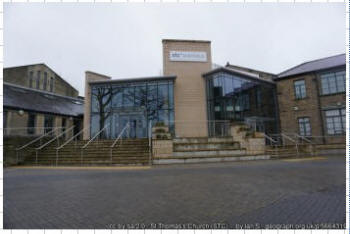
Above, STC
Historical abuse at St Thomas Church,
Sheffield
STC was previously 'St Thomas Church.' St Thomas
Church, Sheffield has an unenviable place in the shocking history of abuse within the
Church of England.
Church House Publishing is the 'official publisher of
the Church of England' according to their Website.
https://www.chpublishing.co.uk/authors/robert-warren
'Robert
Warren was Team Rector of one of the largest and fastest growing churches in
England, St. Thomas Crookes.'
The Website of STC, the successor to St Thomas
Church
https://stthomascrookes.org/about/the-stc-story
has this:
'Following a visit from the well-known American Vineyard church pastor
John Wimber, St Thomas’ Church became a renewal centre, and continued to
grow and thrive.'
The Church may have
grown under the influence of Chris Brain, but it didn't thrive, not
in the least. Here, the Website distorts and manipulates the truth.
The late-night telephone calls were not at all what you would expect from a
Church of England vicar contacting female members of his congregation.
Summoning selected women to his lavishly appointed home in Sheffield, the
Reverend Chris Brain wanted help with what became known as ‘putting him to
bed’. At the very least this meant giving him a massage, often while he was
naked.
For some of his young followers, it stopped there. But for others, the
encounters are said to have gone much further, with kissing and cuddling
leading to intimacy described by one as covering ‘the whole spectrum of
abuse’.
From the Website of St Thomas Church, Crookes, Sheffield (preferred name
now, STC)
https://stthomascrookes.org/safeguarding/
'Safeguarding: STC Sheffield is committed to high standards in the
safeguarding and care of children, young people and vulnerable adults. Our
Safeguarding Officer is Helen Ward ... '
I've every reason to believe that this is the
case - more exactly, no reason whatsoever to believe that this isn't the
case. There is, though, evidence of much more recent transgressions. I
provide it below. The evidence that this hasn't always been the case is overwhelming.
The fact is that safeguarding and care of vulnerable adults hasn't been a
priority at St Thomas Church at all. St Thomas Church is the place where
Chris Brain undertook his Christian ministry to young adults - vulnerable
young adults, and adults who should have realized what was happening much
earlier. St Thomas Church was the setting for the famous/ infamous
Nine O' Clock Service. The service was famous at the time - in
Church circles and beyond - and infamous later, in Church circles and
beyond. At the time, many people there were gripped by waves of exultation,
ecstasy, the overwhelming feeling that God was there, God was guiding them,
through his servant / prophet / inspired leader Chris Brain. The waves of
hysteria didn't last, and Chris Brain was revealed as a manipulator,
complicit in emotional and sexual abuse.
Strongly recommended: a viewing of the Youtube video on the Nine o' clock
Service
https://www.youtube.com/watch?v=QxwdyF3qZj8
From the Wikipedia entry:
Beginning as a simple alternative format service under the leadership of
Chris Brain, the group responsible for it developed a leadership structure
that was endorsed by the leadership of St Thomas' Church. The average age of
the members was 24 for much of NOS's life. The membership was significantly
from non-church backgrounds.
...
By 1988, David
Lunn, then Bishop
of Sheffield, sanctioned a move to a new site
at Ponds
Forge Rotunda in the
centre of Sheffield. Around
the same time, Chris Brain underwent training to be ordained as a priest in
the Church
of England ...
In 1995, a number of
complaints began to surface of the sexual abuse of women in
the group by Chris Brain. After an investigation by the Diocese
of Sheffield, the group was
shut down in August 1995. The Bishop of Sheffield demanded
Brain's resignation after he confessed to having sexual
relationships with young women in the congregation. There
were also calls from former members of the congregation that
he be defrocked.
The Archbishop
of York banned Brain from acting as an ordained
priest. Initially refusing to step down, Brain eventually
resigned in November 1995, the week before a documentary on
the abuse scandal was aired. He then checked himself into a
psychiatric hospital ...
A much more recent set of events:

Above, Mike Pilavachi speaking at a 'Soul Survivor' event. He was ordained
as a Church of England priest in 2013 and made an honorary canon of St
Albans Cathedral in 2016. From the Facebook page of STC, the Anglican church
in Sheffield and successor to 'St Thomas Church:' 'We're so excited to have Mike Pilavachi leader of Soul
Survivor Watford speaking at STC Sheffield on 9th October [2022] ... Mark
your calendars because you don't want to miss this!'
In May 2023, Mike Pilavachi was suspended from ministry whilst under
investigation for safeguarding concerns. According to a report in The Daily
Telegraph, 'the allegations are understood to span at least three decades
and are as recent as 2020.' According to a report in the Daily Telegraph of
May 2023, some people have claimed that they were encouraged to receive
full-body massages in their underwear whilst being clasped by the Rev Canon
in his bedroom. There have been claims of wrestling matches, some of them
taking place in church. Some alleged victims stated that they had low
confidence in the Church of England's internal inquiry, with criticism of
Justin Welby, the Archbishop of Canterbury, for not commenting on the
allegations sooner.
I called at St
Thomas Church Sheffield a few years ago to inform the Church about strong
concerns of mine. The Church was promoting 'Streets of
Light' with a video and other publicity. It was intended to
draw attention to the 'Light of Christ' by decorating
windows of houses and lighting up the windows.
It concerned me that safety was completely neglected in
the video and the other publicity material. I mentioned the
fact that it wasn't made clear that candles should never be
used as a form of lighting. The decorations would be mainly
or completely flammable. Although a disaster was unlikely,
this was an unnecessary hazard. The video also had footage
of a young child standing on a support which seemed to me
not secure at all, near to a window. If a child fell off the
support, there was the possibility of severe injury.
I used a quiet, courteous approach but I was interrupted
by one of the Church staff, who was very angry and ordered
me to get out of the Church. I did leave. I'd managed to say
most of what I'd wanted to say.
Recently, I found that a child had been very badly burned at a
Nativity event at a Roman Catholic Church, Our Lady of the
Annunciation Church in Croydon. The primary school attended by the
child was fined. There's a report in the entry
for the Church below.
Halloween and damnation.


Helen Ward of St Thomas Church, Sheffield saw a Halloween display at a pub not far from STC. I
didn't see the display. From her account, it seems to have been over the
top, in bad taste - crude but not cruel, unlike this window display,
which shows the judging of souls for a future in heaven or hell. Demons
attend the souls destined for hell.
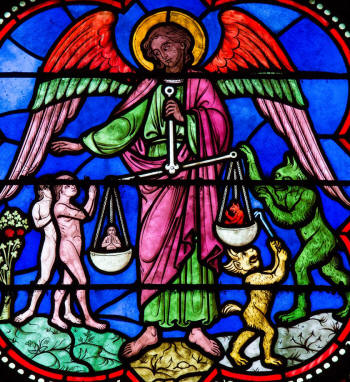
The fear of hellfire has terrified untold numbers of people, children and
adults, for hundreds of years, for millennia. The harmful effects of
Halloween are nothing in comparison. Her strong feelings would be better
directed at the teachings of orthodox Christianity - at her own beliefs, in
fact, if she ever managed to examine them properly.
She decided to begin 'Streets of Light' to combat the
forces of darkness represented, in her view, by Halloween.
The 'Streets of Light' initiative urges, or requires, people not to make
pumpkins into human faces - whilst neglecting completely the possible
dangers of the initiative, such as putting candles in pumpkins near to
flammable materials.
She's responsible for safeguarding at STC. The sexual abuse and other
abuse which has taken place in the Church of England are vastly more
important areas for concern than Halloween displays.
I did attend one service at St Thomas Church, as it then
was. I was a teenager at the time. This was a very long time
ago.
All I remember of the service is the number of people in
the church - it was packed - and the sermon. It was
unrelenting and the vicar made it completely clear that
giving money to the church was important, very important and
the amount given should be an appreciable slice of the
giver's income. He demanded tithing, the giving of a tenth
of a person's income to the church and I think he mentioned
that he was referring to gross income, not net income.
Over the years, the Church's income will have been very,
very high. Anyone entering the Church building now will see
spacious offices which are part of the radical building work
which was carried out at the Church. This is a Church which
spends big and which has big ambitions - ambitions which are
frustrated, though, by the realities of its record over the
years. Churches have ways of effacing any blots on their
record. It's possible to pin all the blame on Satan.
People who give large amounts of money to Churches - or
smaller amounts, but sums which they can barely afford - but
later come to the conclusion that Christian faith is empty,
a delusion, propagandist, who come to the conclusion that
time spent at services was time wasted, who come to the
conclusion that all the money they gave was money wasted -
to me, these people can act as a cautionary story but also
as a beneficial example. People can attend church services,
join a church, but they need to exercise caution, to probe
beneath the surface, so far as possible, think about the
implications, reflect on what they've experienced, and not
let their critical faculties lapse.
As for money, there's absolutely no shortage of good
causes, good causes with a need for funds, organizations
large and small, of the utmost variety, in the most varied
fields - including vast numbers of causes and organizations
which would be far better recipients of donations than the
Churches. The Churches have become very accomplished
grabbers of money. Givers of money are under no compulsion
to provide them with money.
Gideon's International
Extract from the Gideon's International Website page
https://www.gideons.org/
We exist as an advocate for the lost, to bring them the saving
knowledge of the Word through not only placing and distributing
Scriptures, but also through personal witnessing and by associating
together for service. As a united force for the Gospel, we remain
rooted in tradition, but we operate under the firm belief that
anyone can be a valuable asset to this invaluable cause. We provide
many opportunities to partner with us through either prayer or
financial support. Join us, and let's spread the Good News.
The reference to 'the lost' is, of course,
a reference to the people who haven't accepted Jesus as Saviour and
are doomed to spend eternity in Hell.
Another extract:
we have taken more than 2 billion Scriptures in more than 95
languages to 200 countries, territories, and possessions across the
globe.
The Donate page is at
https://www.gideons.org/donate
I take the view that it would be gross stupidity to donate.
Extract from an email sent 20 January 2023 to recipient not
identified here:
In PCC Blog 78
https://southyorkshire-pcc.gov.uk/blogs/pcc-blog-78/
Alan Billings makes a reference to 'male
imperialism.' Why did he decide not just to endorse but to attend an
event which gave a prominent place to Gideons International, an
organization with, I show, a very poor record as regards
discrimination against women?
But this is only one of a number of reasons
why it was a bad mistake on his part to attend the event - and,
what's more, to bring with him the then Chief Constable of
South Yorkshire, Steven Watson. With all the demands on his time, I
think it's unlikely that Steven Watson would attend an event like
this if it were not for the fact that Alan Billings was attending.
Extracts from the article in 'The Star,' 20
May, 2017
https://www.thestar.co.uk/news/christian-police-association-re-launched-in-sheffield-470835
A bible reading and evening of celebration
was held in Sheffield to mark the re-launch of the Christian Police
Association at South Yorkshire Police.
Members of the public joined South Yorkshire
Police and Crime Commissioner Dr Alan Billings, Chief Constable
Stephen Watson, officers and police support staff at the Rock
Christian Centre in Carlisle Street.
Dr Billings and the chief were
presented with specially commissioned South Yorkshire Police
crested bibles by Thomas of Gideons International. Sergeant
Simon Kirkham, a Rotherham police officer, delivered the
reading to around 150 colleagues, support staff and members
of the public who enjoyed music from the worship band.
Force Chaplain Reverend Alison Earl
delivered a prayer to start the event and Dr Billings, who
is a Reverend Canon with the Anglican Church, also addressed
the audience.
Lee Russell, executive
director of the CPA and chief constable Stephen Watson made
short speeches to welcome people to the event and endorse
the local re-launch of the CPA. Gideons International have
printed 2,000 South Yorkshire Police crested new testament
bibles, to be presented to police officers and staff at
forthcoming CPA meetings and events.
So, Gideons International presented
bibles to Dr Billings and Steven Watson. Gideons
International have printed 2,000 bibles for South
Yorkshire Police.
At the time when Alan Billings and
the then Chief Constable were presented with bibles, Gideons
International did not accept women as members. Gideons
International still does not accept women as members.
Information from the site
https://premierchristian.news/en/news/article/gideons-uk-in-legal-fight-to-keep-name-over-women-membership-dispute
In 2018, the UK
branch [of Gideons] accepted women after the Charity
Commission enquired into whether or not it was complying
with the Equality Act 2010 and suggested women should be
allowed to join for them to remain compliant.
In a letter to Gideon members in
September this year, president Andrew Knight said the UK
branch decided it would be better to submit to this decision
rather than to challenge the Charity Commission as "to do so
could be seriously detrimental to the Christian testimony of
the Association. The outcome would almost certainly create
negative publicity ...
An extract from the Premier
Christian News Site,
... in July 2018,
the International Cabinet at TGI refused to accept financial
support from Gideons UK for worldwide ministry and removed
its 'National Association' status because it was decided the
UK association did not accept the 'Core Values'.
TGI is challenging its right to
use the Gideons name.
So, the 'core values' of Gideons
International do not allow for the admission of women as
full members, it's claimed.
Extracts from a letter of John
Codwell, the National Field Coordinator for 'The Gideons
International in the United Kingdom.' 13 October, 2021.
https://gideonsinternational.org.uk/2021/10/13/the-gideons-in-the-uk/
For many years a
small, but vocal, group within the Gideon Ministry in the UK
had been pressing the leadership to change the membership
criteria. They believed that a “men only” ministry was
outdated and that admitting women as members would make them
more attractive to churches and supporters and would reverse
the declining membership ... That small militant group took
this as a vindication of their opinion and expected
immediate change.
When that did not happen, a certain
member sought to force the action by writing to the Charity
Commission accusing the Gideon Ministry of being in
contravention of the Equality Act.
The UK Gideons’
constitution required the permission of the international
governing body (TGI) before such a change could be made.
Permission was refused on the grounds that The Gideons
International is a fellowship of professional and business
men for mutual support in their Christian walk and in the
placing of Scripture. The 300,000 or so men in over 200
countries adhere to exactly the same foundational values and
constitution.
The UK leadership knew that by
changing the constitution against the wishes of TGI that
they would be expelled from the Gideon Ministry and would
not be able to use the Gideon name which is protected as an
international trademark. They signed an agreement in 1974.
Surely, Alan Billings knew about
this policy of Gideons International at the time of this
event at the Rock Christian Centre? If he didn't, he
certainly should have done - and it would have been far
better if he'd stayed well clear of the event, and not
brought along Steven Watson, the Chief Constable. If it was
the case that Steven Watson was determined to attend, come
what may, a wiser man than Alan Billings could have advised
him that no good would come of attending. It would be better
to use the time for more constructive ends. It may be
that Steven Watson had no wish to attend but took the view
that Alan Billings is someone with real power - including
the power to sack a Chief Constable - and it might be
prudent to attend, no matter what his own views were.
Our Lady of the Annunciation Church,
Croydon

Roman Catholic Diocese of Southwark
A primary school in Croydon
has been fined
£35,000 after a young boy was left with critical burns
when his nativity costume caught fire during the
school’s annual carol concert.
St Thomas Becket Catholic Primary School was
found guilty of health and safety failings by a jury at Southwark
Crown Court earlier
in June.
In December 2019 the boy, then aged seven, had been in
a line of pupils each holding a lit candle in Our Lady of
the Annunciation Church in Bingham Road, Croydon, when his
homemade sheep costume caught fire, the court heard.
The fire was extinguished “with some difficulty” and the
child received first aid at the scene before he was taken by
air ambulance to hospital.
At hospital it was estimated that he sustained burns on
45% of his body, resulting in “life-changing injuries” that
will leave him dependent on third party care for basic
needs.
The child’s parents described the “excruciating” pain
that their son, who no longer attends the school, has been
through and is still going through.
They both commented on the life-threatening nature of
their son’s injuries, with the mother saying she “thought
the worst” when the boy was in hospital and his father
saying he is “lucky to be alive”.
The court heard they were waiting for their son to emerge
in the church when people started running outside and
screaming, which the father described as feeling like “a
bomb had gone off”.
The mother said her son’s best friend said he was on
fire, prompting her to “force” her way back into the church.
[The boy's mother says]
'I haven't stepped in a church since and I
don't think I ever will.' [Emphasis as in the
original]
Both parents found their son standing “screaming” in a
bucket of water in the church, the court heard.
The court heard how the young boy underwent “countless”
surgeries and hospital appointments, which are continuing
three years later.
“I protect my son from every look from a stranger when we
are out together,” the father said. “I walk in front of him
to protect him from the glares of others. I think of him
growing older in such a cruel world.
“It overwhelms me to think that my son will never know
what a normal life is.”
Following the incident the London Fire Brigade.
issued a warning
against the “completely unnecessary hazard” of candles when
it comes to children and school plays, and said LED or
electric candles should be used.
All Saints Church, Alrewas,
Staffordshire
There is no linkage at all between the material in the first
column of the page on the National Arboretum, Alrewas (which is very
favourable) and the material here on All Saints Church, Alrewas
(which is critical), except for the fact that the National Arboretum
and the Church are in close proximity. I would have wanted to
include the material on the Church below no matter where the
Church was situated.
The Vicar of the Church is Revd Prebendary John W. Allan.
The Associate Minister is Revd Elizabeth Wall.
The page of the Church Website
https://www.alrewasallsaints.church/church-life/news
contains this:
Living churches evangelise ... Dead churches fossilize.
Living churches are filled with generous givers ... dead churches are
filled with [people] who only give their spare change to God.
They feel they can be certain, they have absolute assurance that they
are doing God's work and that money given to the church is money given to
God. What form does 'God's work' take? They would take the view that the
most important is evangelism, mission, bringing people to a faith in Jesus Christ as
Lord and Saviour, a faith which turns out to have terrible consequences -
for the men, women and children who fail to accept Christ as Lord and
Saviour.
Another page of the Website has a list of
claims concerning 'Inclusive Church'
https://www.alrewasallsaints.church/church-life/inclusive-church
It includes this
'We believe in inclusive Church - a church which celebrates and affirms
every person and does not discriminate. We will continue to challenge the
church where it continues to discriminate against people on grounds of
disability, economic power, ethnicity, gender, gender identity, learning
disability, mental health, neurodiversity, or sexuality.
'We
believe in a Church ... which is scripturally faithful;'
Is the
eternal destiny of people inclusive too? Not according to 'Bible Truth.' If
the people at All Saints Church believe that heaven is inclusive, heaven is
for everyone, then this isn't in the least 'scripturally faithful.' The
Church seems not to be aware of the blatant contradiction.
Are disabled people and homosexual people,
for example, all admitted to 'heaven,' to eternal communion with God? Or are
the disabled people and homosexuals who never accept Jesus as Personal Lord
and Saviour treated in a very different way - a non-inclusive way - from
those who do accept Jesus? And what of people with learning disabilities?
The Bible is silent about them, although not silent about people with
similar conditions. According to 'Biblical Truth,' these people are regarded
as possessed by demons. Even now, attempts are made to 'cure' people of
homosexuality by 'driving out demons.'
According to the account in Matthew 10:8,
Jesus sent out disciples with the command to drive out demons and
heal leprosy, amongst other things.
As with other disease conditions, leprosy has been cured by scientific
and medical advances. Leprosy and other disease conditions have never been
cured by driving out demons, as recommended by Jesus or commanded by Jesus.
Enlightened treatments of psychiatric conditions owe everything to
psychiatric advances and general understanding. Interpreting psychiatric
conditions as demonic possession has caused incalculable harm. Christianity
in general has caused incalculable harm.
Obviously, money given to All Saints Church
is money not given to another cause. My view is that it would be a
mistake to give money to All Saints Church, whether large amounts or
'small change.'
Lincoln Cathedral: architecture and
abuse

Diocese of Lincolnshire
See also the image of a Lancaster bomber over Lincoln Cathedral,
with short comment, at
Home Page Images.

The material here is followed by supplementary material on the
architecture of Lincoln Cathedral, including material on the
relationship between the architecture and ethics.
The costs of maintaining and repairing the cathedral are
enormous, of course. There are many, many signs in Lincoln Cathedral
urging visitors to donate, giving them the chance to donate there
and then.
What are the economics of donating to such a place? Does Lincoln
Cathedral succeed in bringing to Christ a thousand people a year?
Very unlikely. A hundred? Not very likely, I would think, but
obviously, it would be impossible to find out the figure. Whatever
the number, given the enormous costs of running the cathedral, it
can be said that the ratio of 'souls saved' to every £1000
spent isn't a favourable one. It could be claimed that Lincoln
Cathedral offers very poor value for money if the main object is to
evangelize.
Most cathedrals and churches aren't tainted by gross sexual
and other abuse or tolerance of these forms of abuse, inaction when
faced with clear-cut evidence about these forms of abuse. There are
other harmful events, attitudes, effects which should be taken into
account. I've commented on the less obvious harm as well as
the gross harm in some detail in the pages of the site. Lincoln
Cathedral is one of those churches which would appear in any
comprehensive history of abuse in the Church of England.
Some information on the Cathedral's Website:
Lincoln Cathedral is a finalist in the Experience of the Year category at
the 2023 Destination Lincolnshire Tourism Excellence Awards.
Safeguarding at Lincoln Cathedral
At Lincoln Cathedral we're committed to ensuring a safe environment for all.
https://lincolncathedral.com/safeguarding/
Every person has a value and dignity which comes directly from
creation of all people in God’s own image and likeness. Christians
see this as fulfilled by God’s re-creation of us in Christ. Among
other things this implies a duty to value all people as having the
Holy Spirit within them and therefore to protect them from harm.
We follow the policies adopted by the Church of England and
Diocese of Lincoln.
Generally, material on safeguarding published on Church Websites
is strictly secular. In my experience, it's unusual to find material
on safeguarding which appeals to theology, to Christian faith. The
material above does just that, appealing to 'God's re-creation of us
in Christ.' I point out that this is absolutely no guarantee of high
standards and does not seem to have deterred abusers in the least,
or the protectors of abusers, or the people whose duty it is to
protect and who are paid to protect who do
little or nothing to protect.
From the page
https://www.lincolnshirelive.co.uk/news/lincoln-news/bishop-lincoln-safeguarding-disciplinary-proceedings-4199627
Disciplinary proceedings opened
against Bishop of Lincoln amid safeguarding claims
He has been suspended for more than a
year and now faces disciplinary proceedings.
The Bishop retired. An acting Bishop was
appointed and now a Bishop-designate, Stephen Conway.
The
case came after a Panorama investigation
found two former
bishops in the diocese knew about child abuse by members of the
church but failed to act. For detailed information about these cases
https://www.lincolnshirelive.co.uk/news/local-news/victims-speak-out-panorama-investigation-2808025
From the page
https://www.lincolnshirelive.co.uk/news/local-news/police-reveal-seven-been-arrested-1497669
Operation Redstone was launched in 2015 to investigate
'historical claims' of child abuse at Lincoln Cathedral School and
some churches in the Lincoln Diocese, some of which date back to
1958.
The Dean of Lincoln The Very Reverend Christine Wilson said:
"The conviction of Roy Griffiths recognises the appalling crimes he
perpetrated while in a position of trust and responsibility at the
then Cathedral School.
"This case will have brought to the surface profoundly
disturbing memories, for the victims of his crimes, their families,
and for those who witnessed the abuse of their friends and peers.
"On behalf of the cathedral, I want to say that I am truly
sorry that these matters have only now been brought to justice.
"It is deeply shameful that those who were abused have had to
spend most of their lifetime dealing with the aftermath of the abuse
perpetrated against them."
Christine Wilson is no longer Dean. The interim Dean is the
Revd
Canon Dr Simon Jones, Chaplain of Merton College, Oxford.
There's information and comment on Simon Jones in the section
of this page Merton College and
Christ Church, Oxford.
The page
https://www.lincoln.anglican.org/news/the-revd-canon-dr-simon-jones-is-to-be-the-interim-dean-of-lincoln-following-the-retirement-of-dean-christine
gives information about the interim Dean.

Above, shrine of 'Little Saint Hugh,
Lincoln Cathedral. The shrine has presence, simple, harmonious, the
product of craftsmanship and sure design - but with no impact,
failing to convey a horrific historical episode.
Lincoln has played a part in the
anti-Semitic acts which play a significant part in the history of
the Church in this country and so many other countries.
From
https://jewinthepew.org/2015/08/27/27-august-1255-jews-accused-of-ritual-murder-of-little-saint-hugh-of-lincoln/
Hugh was an eight year old boy from the Dernstall area of the
city (now known as The Strait). He disappeared on 31 July 1255. His
body was found in a well on 27/29 August. Despite the lack of any
evidence, the owner of the well, a Jew named Jopin (or Copin) was
held for the child’s murder. Jopin was promised clemency if he
confessed that the child had been crucified in a ritual murder by a
number of prominent Jews who had gathered in Lincoln on the pretext
of a wedding. The promise was reneged on. Jopin was tied to a
horse’s tail and dragged up to Canwick Hill where he was executed. A
further 92 Jews were rounded up and taken to London. 18 were
executed for refusing to plead and all but 2 of the others were
sentenced to death until Richard, Earl of Cornwall, who had
purchased the right to tax the Jews from his brother Henry III, made
terms for them.
One near contemporary account of the events was by the
monk and chronicler Matthew Paris (c1200-1259). In his
“English History” he wrote a particularly blood-thirsty and
anti-Jewish version which insisted that virtually all the
Jews in England had colluded in Hugh’s murder and attributed
miraculous events to Hugh’s body.
The body was taken to Lincoln Cathedral and buried in
the South Choir Aisle. The story of the boy’s death stirred
the anti-semitism that was already virulent in England. The
boy was regarded as a Christian martyr. He was called Little
Saint Hugh and a shrine was built over his tomb. After years
of increasing persecution and hardship, the entire Jewish
population of England was expelled from the country in 1290
and their property confiscated by the Crown. Jews did not
return to England until 1655.
Cobb Hall Tower is part of Lincoln Castle, which is next to
Lincoln Cathedral. It was a place where hangings took
place. Over a long period of time, the life of the cathedral
and public executions were in close proximity. For
comprehensive information on executions at Lincoln Castle:
https://www.capitalpunishmentuk.org/Lincoln%20Castle.html
There were 38 public
hangings carried out on the roof of Cobb Hall tower during
the 42 years up to 1859. Three were double hangings plus
one triple and one quadruple. Only twelve, including the
three females, were for murder.
Some of the people publicly hanged in this infamous place
adjoining the Cathderal, with the date and the offence:
|
John Louth
|
19/03/1819
|
Burglary
|
|
Richard Johnson
|
06/08/1819
|
Horse theft
|
|
William Fox
|
17/03/1820
|
Rape of Mary Roads
|
|
David Booth
|
23/03/1821
|
Burglary
|
|
John Parish
|
23/03/1821
|
Burglary
|
|
James Cawthorne
|
09/08/1821
|
Murder of his wife
|
|
John Rogers
|
22/03/1822
|
Highway robbery
|
|
Joseph Birkett
|
02/08/1822
|
Highway robbery
|
|
William Arden
|
21/03/1823
|
Sodomy
|
|
Benjamin Candler
|
21/03/1823
|
Sodomy
|
|
John Doughty
|
21/03/1823
|
Sodomy
|
|
John Smith
|
15/03/1824
|
Murder of Sarah Arrowsmith
|
|
James Wetherell
|
20/08/1824
|
Murder of William Berridge
|
|
William Udale
|
23/03/1827
|
Sheep theft
|
|
Thomas Lister
|
27/03/1829
|
Housebreaking
|
|
Thomas Strong
|
19/03/1830
|
Housebreaking
|
|
John Clarke
|
19/03/1830
|
Sheep theft
|
|
Timothy Brammer
|
19/03/1830
|
Housebreaking
|
Between 1750 and 1815 a series of Acts/Statutes had
increased the number of offences punishable by death,
bringing the number to more than 200. Some of the offences
punishable by death:
Cutting down trees, stealing from a rabbit warren, being out
at night with a blackened face, being an unmarried mother
concealing a stillborn child, wrecking a fishpond.
There may have been some who had reservations, but it would
be safe to assume that Bishops, Deans, Vergers, just about
everyone at the Cathedral in this shameful period of penal
history viewed the hangings with complete indifference, or
strongly supported the hangings. The Church of England never
opposed hanging for homosexuality. John Pratt and John Smith
were the last men to be executed (again in public) for
homosexuality in England. This was in 1835.
Supplementary material
This was a long time ago, but I've undertaken visits to Lincoln
Cathedral (and other Churches, such as St Botolph's, Boston,
Lincolnshire) which can be called study visits, to learn more
about the architecture of the building. Alec Clifton-Taylor
concludes (in his book 'The Cathedrals of England') that Lincoln
Cathedral is 'Probably, all things considered, the finest of the
English cathedrals. It is visible for miles: the central tower is,
after the Boston Stump, the loftiest of the English Middle Ages, and
one of the most beautiful ... The extraordinary profusion of
ornamental carving in stone and wood, together with some fine early
glass, means that however much time one is able to spend here, it is
never enough ... the choir stalls, of 1360 - 80, which in the
English cathedrals are surpassed only by those of Chester ... Fine
early-13C. chapter-house ... marred by poor glass ... N. walk, with
library over,, rebuilt by Wren, 1674.
My view, in brief summary form: the details, obviously not all of
them, there's fine stained glass and poor glass, are superior to the
overall design, particularly in the case of the exterior. Taking the
time to view the building from different viewpoints is essential:
the enormous advantage of viewing in three dimensions, rather than
the flat surface of a printed or computer image, features emerging
and receding, views that flatter the building and views that reveal
faults of design or faults of detail, the opportunity to have nearer
and more distant views, to zoom in and out when viewing the
building.
Another photograph of the West front of Lincoln cathedral which
gives a different experience of the building.

Although the building of the West front - and the rest of the
cathedral - was obviously an enormous achievement, the artistic
success of this West front shouldn't be taken for granted. The tall
and wide facade isn't successfully contrasted with the towers. The
towers seem to emerge awkwardly from an ungainly base, the facade,
and the rows of architectural detail in the upper area are routine,
monotonous. The presence of so much 'standard stuff' in so much of
Gothic architecture, as in the architecture of other styles and
other periods, is overlooked so often.
I'm glad to find that Alec Clifton-Taylor has a similar view of
the West Front. He writes, 'unfortunately, the Lincoln facade does
not repeat the success of Wells, or even of Peterborough ... the
broad and lofty screen wall ... although undeniably imposing, is not
happy, and is very unkind to the towers, which are left to shoot up
from behind in a most uneasy fashion.'
A possible defence of the awkwardness in the relationship between
towers and facade would be to view the conjunction as an instance of
the 'playful lopsidedness which is referred to by Nikolaus Pevsner
in 'The Englishness of English Art.' He writes, this delight in a
playful lopsidedness dictated even the design of the choir vaults.
The Crazy Vaults of Lincoln they have been called in a recent
study.' Later in the chapter, he writes, 'But illogicality is only
one aspect of the English screen facade.'
He also refers to size, or, in my terminology, expanse. The units
of the Lincoln West front facade are, he writes, tiers upon tiers of
blank arcading. 'The very feeling which they convey is one of
interminable length. There is nothing to stop their extension left
and right. In this respect, for the thirteenth century the Lincoln
front can hardly be beaten.'
I would make the point that the towers are in conflict with this
expansiveness, that they dampen it. Holding in the mind's eye such
dissimilar structures as the facade and the towers is
difficult. Both elements seem to have roughly equal claims upon the
attention. A distant or not so distant comparison - a photograph in
which landscape and sky occupy approximately equal areas generally
amounts to unsatisfactory composition.
The interior is very successful, an instance, I think of Gothic
architecture achieving the harmonious in a way achieved more often
by other, simpler architectural styles. Overall, Alec Clifton-Taylor
may well be right in ranking Lincoln Cathedral above every other
cathedral in the country.
Once attention turns from the building, the architecture to the
context, the intended purpose or purposes of Lincoln Cathedral, the
people associated with Lincoln Cathedral over the centuries, ethical
issues which are relevant to the cathedral, its finances,
particularly when the view is a detailed one, then Lincoln Cathedral
becomes far less impressive, flawed, very flawed.
Its most important purpose, supposedly, is to bring people to
Christ, to know Christ as personal Lord and Saviour. Providing
aesthetic satisfactions, even the deepest satisfactions, is an
irrelevance, in Christian belief. Jesus had no interest in such
things as artistic success of failure.
Sublime architecture has sheltered hideous beliefs and practices,
ambitious architecture has been the setting for petty thoughts and
practices, and worse, far worse. There is no necessary linkage
between aesthetic excellence and excellence in practical ethics.
I agree with Ruskin, writing in 'Mornings in Florence, 'The
Fourth Morning,' Section 72:
'Mere size has, indeed, under all disadvantages, some definite
value; and so has mere splendour.'
I quote Ruskin's claim in my page on Design principles in
gardening - but the discussion, and the illustrative examples, are
wide-ranging, and include ethical examples as well as aesthetic. In
this extract, I have to omit material which strengthened the
argument as well as illustrated it, I believe:
There are no great theatrical
masterpieces which last only a quarter of an hour. They need longer than that
for their unfolding, to have their impact. Aristotle, in the 'Poetics,' wrote
that 'Tragedy is an imitation of an action that ...possesses magnitude.' (Section
4.1) The word he uses for 'magnitude' is
μέγεθος
'megethos'
and it expresses the need that the dramatic action should be imposing and
not mean, not limited in extent. Aristotle's view here isn't binding, but
it does express an artistic demand which more than the so-called 'unities'
has a continuing force ...
Ruskin has an extended
discussion of scale in architecture in Chapter III of 'Seven Lamps of Architecture,'
'The Lamp of Power.'
In 'Mornings in Florence,' 'The Fourth Morning,' section
72, he writes 'Mere size has, indeed, under all disadvantage, some definite
value...Disappointed as you may be, or at least ought to be, at first, by
St Peter's, in the end you will feel its size...the bigness tells at last:
and Corinthian pillars whose capitals alone are ten feet high, and their acanthus
leaves three feet long, give you a serious conviction of the infallibility
of the Pope, and the fallibility of the wretched Corinthians, who invented
the style indeed, but built with capitals no bigger than hand-baskets.'
The claim that the size of the pillars and
the capitals 'give you a serious conviction of the infallibility of
the Pope' is obviously not seriously meant. The architecture of St
Peter's cannot possibly prove the Pope's infallibility or any other
doctrine of Roman Catholicism. Nobody believes that the Parthenon
confirms the existence of the Greek Gods. The architecture of
Lincoln Cathedral cannot demonstrate the validity of any Anglican
beliefs.
Another extract from my page 'Design
Principles:"
As for
the use of architecture to 'prove' a doctrine, an aphorism of mine is
relevant: 'The great achievements of religious architecture, painting,
sculpture and literature are no evidence for religion but evidence that people
with artistic gifts may have far less talent for critical thinking.' There's
no linkage between the power of architecture and the validity of religious
beliefs: [power of architecture] > < [validity of religious beliefs]. There
may well be a linkage between baroque architecture and the values of the age
of absolutism, [baroque architecture] < > [values of the age of absolutism]
but the architecture didn't validate those values. Baroque architecture is to
a large extent the architecture of Roman Catholicism, specifically the Roman
Catholicism of the Counter-Reformation, but baroque architecture cannot
validate Roman Catholic docttrines.
Diversification by simple
alternative can be applied to Aristotle's claims concerning magnitude and
tragedy, which are justified claims, I'm sure, but undiversified. He claims
that there are imitations that have insufficient scale (my term)
or 'megethos' (Aristotle's term) and so have inadequacy in imitating the action.
What Aristotle didn't consider here (although he did consider very thoroughly
similar ethical alternatives in the 'Nicomachean Ethics' ) is the diversified
OR: imitations that have excessive scale.
There are many dramatic
illustrations of this, from screen and television as well as the stage: imitations
where the action is ridiculously inflated, grandiose, in general excessive
for the small-minded or insignificant theme.
This too is a claim for
disproportion of scale, D H Lawrence on Flaubert's Madame Bovary:
'I think the inherent
flaw in Madame Bovary is that individuals like Emma and Charles Bovary are
too insignificant to carry the full weight of Gustave Flaubert's profound
sense of tragedy...'
The See of York
and The Life of the Nation
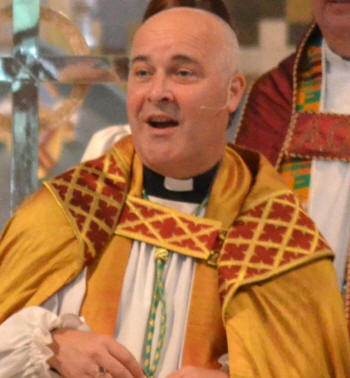
Above, the
Archbishop of York, Stephen Cottrell, who outranks
bishops of the Church of England but is of lesser importance than the Archbishop of Canterbury. (I've no information about a
different thing, the order of self-importance.)

Above, coat of arms of the See of York
A not completely random piece of information about the Archbishop of
York, from
https://yorkmix.com/anger-at-90k-salary-on-offer-for-job-as-the-archbishop-of-yorks-chief-companion/
The Archbishop of York has been criticised for “sending out the wrong
message” by advertising for a new £90,000-a-year chief of staff.
The advertisement on the Charity Job site says
the position will be based at Bishopthorpe Palace, just outside York, and
offers a “competitive salary in the region of £90,000 per year”.
It will involve helping Stephen Cottrell, who became the Church of
England’s second most senior clergyman when he was enthroned in October,
“conduct his ministry within the life of the nation”.
Conducting ministry, mission, spreading the gospel of salvation, the
implications, the hideous implications of the gospel of salvation for 'the
life of the nation' - these are central themes of my pages on Christianity.
The Church of England's place in 'the life of the nation' is precarious.
I don't believe for one moment that the appointment of this Chief of Staff
will have any effect whatsoever on the declining power of the Church of
England or the 'life of the nation.'
Some findings from a report,
WIN/Gallup Survey (2014)/Pew Forum Surveys (2015-17)
UK Church membership has declined from 10.6 million in
1930 to 5.5 Million in 2010, or as a percentage of the
population; from about 30% to 11.2%. By 2013, this had
declined further to 5.4 million (10.3%).
A 2014
survey of
approximately 64,000 people in 65 countries revealed the UK
to be one of the world's most irreligious countries, with
only 30% of those surveyed identifying as 'religious'. In
contrast, 13% said they were convinced atheists and 53% of
those surveyed said they were not religious.
BSA data indicates that, over the period 1983 to 2014 :
1. The Church of England population has nearly halved (from
16.5m to 8.6m);
2. The Catholic population has remained relatively steady
(from 4.1 to 4m);
3. Non-Christian religious numbers have increased five-fold
(from 0.8m to 4m);
4. Persons of no religious affiliation have nearly doubled
(from 12.8m to 24.7m).
In the mid-1980s, there were
1.26 million active congregational members in the Church of
England. That number fell to 722,000 by 2019, which is the
latest year for which the Church has released figures.
The Church of
England has hemorrhaged just over half a million worshippers
in just over 30 years, a decline of just over 40%
That tells
us something particularly worrying for those concerned for
the Church of England — namely that the decline in
worshippers is vastly outstripping the decline in the number
of churches.
A smaller and
rapidly declining number of — increasingly aging —
congregations remain to maintain over 15,000 Anglican church
buildings, many of which are themselves falling into
disrepair.
Meanwhile,
official Church of England statistics show that the median
congregation size is just 27 souls.
How realistic is
it to lumber 27, mainly older people, with looking after a
historic rural church or a crumbling Victorian edifice that
needs increasing amounts of money simply to satisfy Health
and Safety regulations?
The inevitable
conclusion is that the number of churches closing will
inevitably increase in the coming decades — and almost
certainly speed up.
My anecdotal
experience is that considerable numbers of Church of England
churches are clinging by their fingertips to their very
existence.
Leadership roles
remain unfilled, necessary work deferred through lack of
funds, and the residual funds already spent.
Such parishes are
one hefty repair bill away from closure.
Is anything being
done to reverse the trend?
It’s not that the
Church of England has been blind to the coming storm.
The Church’s
governing body, the General Synod, pumped £248 million into
the Reform and Renewal program in
the second half of the 2010s to attempt to stem the decline
in worshippers.
However, the
Archbishop of Canterbury, The Most Reverend Justin Welby,
admitted that this injection of money — targeted to
supporting churches in the country's most deprived areas and
to plant new congregations — “has not worked.”
None of this will
come as a surprise to those with a keen eye on societal
trends.
The evidence for
secularisation, and the declining role of the national
Church, is compelling. Figures from the census taken every
ten years in the UK show that the numbers of those
self-identifying as “Christian” in the UK fell from 66% to
38% in the same time frame.
While there has
been a slight rise in the number of people attending newly
formed independent charismatic churches — fuelled largely by
immigration — traditional denominations have all shown a
sharp decline in affiliation.
By 2018, only 12%
of the population of Britain identified as belonging to the
Church of England or its partner churches in Scotland and
Wales.
The historic
residual cultural affiliation to the Church of England is
now in free fall.
This is almost
certainly going to speed up as all the figures point to the
increasing disdain towards the established Church amongst
younger people.
The generation of
Church of England members who have faithfully supported the
organization throughout much of the 20th century is now
passing. They are NOT being replaced by younger members,
meaning that many parishes cannot locate suitable people to
fill the roles necessary to maintain a functioning parish
church.
Increasingly, this
leads to a “back to the wall” mentality
where survival is the only agenda.
There is precious
little energy or resources for mission and growth when the
building is crumbling, and every available pound is being
directed towards staving off closure.
So what can be
done?
I wish I could
offer words of solace. But, alas, I cannot. The Church has
already attempted the most obvious solutions.
The Church
declared the 1990s as “The Decade of Evangelism,” with
various projects birthed to promote evangelism and church
growth.
But as author Cole
Moreton points out:
When the
Decade of Evangelism ended in 2000, there were a million
fewer people going to church in England than when the
big push started
The stable door
was closed, but the horse had already bolted.
We’ve already
noted that the Church of England directed a considerable
slice of her dwindling resources into the Reform
and Renewal program.
It was money the
Church could only spend once — yet there is no evidence that
this investment reversed the decline.
And while the
denomination is sitting on considerable assets of land,
property, and investments, it is also responsible for the
upkeep of the nation’s most extensive collection of historic “listed” buildings,
which require continued upkeep.
Contrary to
popular belief, the Church of England does NOT have spare
money sitting around waiting to be invested into mission.
The COVID-19
pandemic has only exacerbated these issues.
The Church of
England itself predicted the pandemic could see almost 20%
of worshippers NEVER return to Church — which would be the
most dramatic decline in attendance in history.
Honestly, this
figure is likely to be conservative from my anecdotal
observations.
Naturally, a fall
in worshippers of that magnitude leads to an attendant fall
in donations, which only leads to increasing numbers of
churches becoming unviable and further cuts to the clergy.
In other words… a
downward spiral.
My intention in this page
and other pages on Christianity is to do all I can to
accelerate the fall in donations.
'Save
the Parish'
This section contains
comments on some supporters of 'Save the Parish' and members
of its Steering Committee: Dr
Giles Fraser, Professor Alison Milbank, Revd Stephen Trott,
Revd Marcus Walker and Revd Colin Heber-Percy.
Profiles of other supporters of 'Save the Parish'
will be added to the section. Existing profiles will be
revised and extended. There's comment on Prudence
Dailey, another member of the Steering Committee,
in the section which follows, on
The Prayer Book Society.
'Parochial:' Entry in Collins English Dictionary:
1. Narrow in outlook or scope 2. of or relating to a
parish or parishes [of the Church.]
From the Website
https://savetheparish.com/
On Tuesday 3 August 2021, a gathering was held
in St Bartholomew the Great, London’s oldest parish church,
to launch a campaign to “Save the Parish”. Over 100 people
signed up online to attend, and thousands have watched the
broadcast online.
The evening began with prayers for Archbishops Welby
and Cottrell before two addresses were given by experts in
this field. A campaign was then launched for General Synod,
with people committing to stand under the banner “Save the
Parish”...
The event was hosted by the Revd Marcus Walker,
Rector of St Bartholomew the Great, who issued a rallying
cry in the pages of the Spectator Magazine ...
[An extract from the page 'Conservatives in the C
of E can learn from 'Save the Parish' ' (7 December, 2021)
https://www.christiantoday.com/article/
conservatives.in.the.cofe.can.learn.from.save.the.parish/137851.htm
'At November's General Synod meeting,
two StP [Save the Parish] leaders in particular, Rev Marcus
Walker, who combines a Trollopean manner with a fierce
intelligence, and Prudence Dailey, who is as sharp as tack
in debate, ran intellectual rings around CofE managers.'
I confidently predict that there
won't be any attempt to defend 'Save the Parish' or
any attempt to defend Christian belief on the part of Rev
Marcus Walker, with his 'fierce intelligence' or Prudence
Dailey, 'as sharp as a tack in debate,' or from anyone else
at 'Save the Parish'. I confidently predict that the
argument and evidence I use won't be met with any
counter-argument and counter-evidence from any Christian.
The apologists for Christianity will remain silent.
Standing up for the Parish System
Save the Parish is here to
encourage the redirection of a greater proportion of the
Church’s money and resources to the Parish system.
‘... a building and a stipend and long, costly
college-based training for every leader of the church’. That
sounds like an ambition worth having ... And, most
importantly of all, to defend the parochial system of the
Church of England.'
Stipend: a fixed or regular amount of money paid as a
salary to a clergyman / woman. The wider world, the less
parochial world, is governed by realities which are far from
fixed: businesses go under, and the owners and employees
lose their income. The Churches are a form of business, one
that claims to be far more than a business, but they have
yet to recognize the precariousness of their status in the
least, that many of their 'branches,' the parish church have
effectively gone out of business. In the future, the decline
is likely to accelerate. That precarious status goes far
beyond the management of parishes, the system chosen to
administer and organize the church, whether the one chosen
is the traditional parochial model or one of the newer
methods suggested, which have antagonized the supporters of
the traditional parish so much. To concentrate attention on
these differences of opinion, as 'Save the Parish' has
chosen to do, is to ignore the staggering scale of the
challenges facing the church - the churches.
'Save the Parish' seems to see no
disadvantages of 'a long, costly college-based training for
every leader of the church.' In my experience - and it's
long and very varied in this field - leaders of the church
who have received exactly this form of training, long,
costly and college based are absolutely unable to defend
their Christian belief against criticisms based on argument
and evidence. They do have available tame criticisms which
they don't mind quoting, because they have the answers to
this very limited range of criticisms.
The objections to Christian belief I'm interested
in, accompanied with argument and evidence, include the ones
in the third column of this page. They are a sample. They
can be extended very easily. The can be given in much more
detail, using scholarly or semi-scholarly methods, but
detail might well obscure the stark outlines. I don't think the
objections can be
answered very easily, not in the least. If Christian
believers (including theologians) are helpless in the face
of these criticisms and others, then I draw certain
conclusions.
I find overwhelming evidence that the aims of 'Save the
Parish' are naive, superficial, evasive - parochial
- and that the proposed methods of 'Save the Parish' are
completely ineffectual. So too are their campaigning
methods. They have faith in the Church of England Synod as a
way of achieving their objectives. The supporters of 'Save
the Parish' have the faith, or the feeling, that many of
their supporters can be elected to the Synod, enough to form
a majority in favour of keeping the parish system intact.
This is very, very unlikely, and even if it did happen, what
would change? The Synod is of absolutely no interest and has
absolutely no importance for the vast majority of people
outside this semi-autonomous region of the modern world,
belonging to it, to an extent, certainly making use of many
of the techniques and technology of the modern world, but
also belonging to previous worlds. These Christians are
'other-worldly' but also inhabitants of previous worlds.
Most importantly, the Church of England faces far more
fundamental problems than the matters of church organization
which are the concern of 'Save the Parish' - problems which it fails to recognize in
general. An inability to recognize the fact that the vast
majority of people in this country treat theological matters
as an irrelevance, of no importance, and aren't in the least
likely to change their mind. An inability to recognize that
the Church of England is heading towards catastrophe as a
result of demographic realities. These are outlined in the
section of this page which precedes this section,
The See of York and The Life of the Nation.
The Rev Canon Dr Giles Fraser, vicar of St Anne’s
Church, Kew, London is a supporter of 'Save the Parish.' He
said:
“The historic parish has for centuries been the
bedrock of the English church. It is crazy that the
essential fabric of the church – so important to people and
their sense of community up and down the country – is now
under attack from those who are supposed to be protecting
it.”
The Parish Church isn't important to the majority of
people, or not nearly as importnant as many other things.
His sense of realities is shockingly bad. Does Giles Fraser
really expect the many, many parish churches which are
ruinously expensive to maintain, with very small
congregations, to be kept going and to be staffed by paid
clergy, in defiance of financial realities? (But the
Churches with very large congregations are subject to the
same criticisms as the Churches with tiny congregations -
the objections outlined in the third column of the page.)
Alison Milbank was one of two 'Keynote Speakers' at the
St Bartholomew's event. She is a 'Canon Theologian' of Southwell Minster. She studied English and theology at
Cambridge University. She might well find of interest one of
the pages of this site,
Cambridge
University: excellence, mediocrity, stupidity. It
contains many profiles (although not updated) on theologians
and chaplains at Cambridge University, although most of the
content is about other matters. I'll be adding a profile of
Alison Milbank to the page. The site has many pages
specifically concerned Christian religion, of course.
I
I don't think it's
remotely likely that Alison Milbank or any other Canon
theologian or any theologian of any other kind, generalist or
specialist in any theological speciality - Christology,
patrology, eschatology, harmartiology, pneumatology,
ecclesiology and the rest - would ever attempt to
defend their faith from the kind of objections given in the
column to the right. I'm confident that the arguments would
resist any attempts to refute them.
Alison Milbank is a Professor at Nottingham University.
From the Nottingham University page
https://www.nottingham.ac.uk/humanities/
departments/theology-and-religious-studies/study-with-us/meet-our-staff/professor-alison-milbank-director-of-pgr.aspx
My main focus has been on the
relationship of religion to literature and culture.
As a priest academic I’m
studying a tradition from the inside. I’m very interested in
the church as an institution, its mission and purpose. This
is reflected through my involvement in the Save
the Parish movement.
She also supports the theological movement 'Radical
Orthodoxy.' To mention just one of a very large number of
criticisms of Radical Orthodoxy - the use made of the
writings of Augustine of Hippo in the short history of
Radical Orthodoxy. The site contains criticism of Augustine
of Hippo at various points, in particular for his view that
unbaptized babies go to Hell.
The other keynote speaker was Stephen Trott. This
is the information supplied:
The Revd Stephen Trott is Rector of Pitsford, in
Peterborough diocese, and has been a member of both the
General Synod and the Church Commissioners for over twenty
years. He spoke on why General Synod actually is important
and gave us the nuts and bolts of how to stand and what your
commitments would be, should you stand.
If he imagines that there's any chance of saving almost
all or most or very many parish Churches for Evensong, Holy
Communion, Matins and the rest and of equipping them with
paid clergy who have received a long and expensive course of
education / training by resorting to the Synod talking shop then he's very, very mistaken.
The Home Page of the 'Save the Parish' Website has an
invitation to
Donate
Marcus Walker, the Rector of St
Bartholomew's the Great
would appreciate donations too. The Website of the Church
has comprehensive information.
and this, on 'Ways to help,' on the page
https://www.greatstbarts.com/donations
-
The traditional collection plate
-
Contactless machines around the
church
-
Online donations with links
below
Give-As-You-Earn (GAYE)
,
directly from payroll
Through
bequests,
legacies, and wills
Give-As-You-Earn
The best way to maximise the
value of a donation is via a
Give-As-You-Earn scheme
like CAF, if you have an employer signed up. This allows you
to donate monthly from your pre-tax income, making it
extremely efficient for higher and additional rate
taxpayers, and employers will often match pre-tax donations.
For example, a higher rate taxpayer
earning £51,000 could donate £20 pre-tax and see their
chosen charity receive £40, at a cost to them of just £12 –
tripling the value of a donation! Just contact HR or
Payroll, or ask a line manager for advice; and don’t be
afraid to encourage employers to sign up.
People who use any of the methods
suggested are wasting their money. Amongst the
'achievements' of the Church's current Rector, Marcus
Walker, according to the church Website, are these:
He co-ordinated the first Anglican Evensong at St Peter’s
Basilica and the loan of the ancient crozier of St Gregory
the Great to Canterbury Cathedral.
Catholic Christians in particular
have such an interest in things, such as
crucifixes, Paschal candles, amounting in some cases to a
hoarding instinct, the collection of relics, things which
are supposedly holy. The crozier is the staff of a bishop
which is supposedly a symbol of a Bishop's pastoral
functions. Many, many Anglican and Roman Catholic bishops,
users of croziers, have scandalously neglected their
pastoral functions. They have allowed sexual predators to go
unchecked in churches, they have preferred to keep quiet,
avoid publicity, allow abusers to carry on abusing. The fact
that a Bishop has a crozier means effectively nothing.
In the case of 'St' Gregory the
Great, the objections to this figure which Marcus Walker
obviously venerates are very serious.
Gregory the Great was in a slave
market. The slaves for sale in a market might include a
young boy or girl who had been separated from their parents.
The slaves for sale might include scattered remnants of many
families. They faced a future which was uncertain, but with
the prospect of floggings, beatings, sexual abuse, physical
abuse amounting to torture. Nobody with humanity could have
gone to a slave market and not found the practice of buying
and selling people contemptible.
Gregory the Great's response was
very different. He came out with what amounts to a
witticism, but a witticism which reflected orthodox
Christianity, so ever since, it has pleased superficial
orthodox Christians, or rather, orthodox Christians whose
ethical standards are very defective.
He found that the children were
'Angles,' that is, from this island. He said, 'Non Angli,
sed angeli, si forent Christianian,' that is,
"They are not Angles, but angels, if they were Christian.
He resolved, not to do all he could
to oppose the slave trade but to do all he could to convert
the English to Christianity. According to Bede, he sent St
Augustine of Canterbury as a missionary to England. The
mission would obviously mention sin, but buying and selling
slaves and owning slaves and physical punishment of slaves
wasn't treated as a sin in the least, unlike drunkenness or
adultery or blasphemy.
After conversion, this would be the
result: slaves (and slave owners - and floggers of slaves)
would be saved from eternal damnation. Those people who
resisted conversion or never had the chance to be converted
(slaves, slave owners, floggers of slaves) were damned for
eternity. As a result of original sin, according to many,
many Christians, unbaptized babies were condemned to eternal
separation from God.
So much for orthodoxy - including
radical orthodoxy.
Colin Heber-Percy
is a supporter of 'Save the Parish,' which published an
article of his. It can be found on the page
https://savetheparish.com/2022/07/04/a-centrifugal-church-the-revd-colin-heber-percy/
The parishes he 'serves' are rural, the parishes of
Burbage, Shalbourne, Ham & Buttermere, within the 'Savernake
Team.'
The Prayer Book Society has published his book 'Tales of a
Country Parish.' From the publicity material:
Heber-Percy draws upon a kaleidoscopic knowledge of nature,
philosophy, poetry and music, as well as religious writings
... '
A section on The Prayer Book Society follows this section.
The Prayer Book
Society
I include in this section comment
on Prudence Dailey, former Chairman of The Prayer Book Society
- and now a member of the Steering Committee of 'Save the
Parish,' discussed in the section above, and on the present
Chairman, Bradley Smith.
According to its Website, '
https://www.pbs.org.uk/
'The Prayer Book Society has been actively campaigning for
the wider use of the Book of Common Prayer for more than 50
years.'
It will be no surprise that The
Prayer Book Society appeals for donations. At least the
appeal, on the page
https://www.pbs.org.uk/donate-to-pbs/
is restrained and decorous. The
history of The Book of Common Prayer and its contents in its
successive versions are anything but restrained and decorous
- crude and cruel. Giving money or leaving money to an
organization promoting such a book! A book which is cause
for shame - as I intend to demonstrate in this section when
it has
been very much extended.
The Book of Common Prayer, like the King James translation
of the Bible, may have idyllic associations - such as dusty
volumes to be found in quiet country churches, associations
with immensely long traditions, but in fact, the Book of
Common Prayer and the King James Bible are linked with acts
and beliefs which belong not to an idyllic world but a world
of cruelty and savagery. The Book of Common Prayer was in
its origins a product of the English Reformation. The date
of first publication was 1549, followed by a number of other
versions. Noteworthy is the version of 1604, which included
significant changes, prompted by King James I, the same king
who had such an immense influence upon the translation of
the Bible commonly called the King James version - and the
same king who took literally the Biblical injunction to put
to death women who practise magic (or, in the King James
version, witchcraft). He had women tortured and he ordered
their execution. He was also associated with the execution
of Edward Wightman, the last man to be burned alive for
heresy in this country.
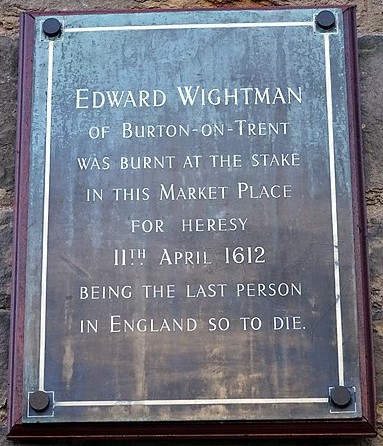
Above, plaque in the Market Place, Lichfield. Amongst his
'heresies' was a disbelief in the doctrine of the Trinity and the
Apostles Creed, the Nicene Creed and the Athanasian Creed. Three weeks
before Edward Wightman was burned alive in Lichfield, Bartholomew Legate
was burned alive in Smithfield, London for blasphemous heresy.
Bartholomew Legate had denied the doctrine of the Trinity and the
creeds. King James ordered that the death sentences should be carried
out in both cases.
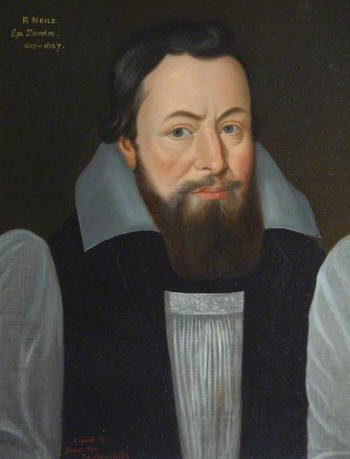
Above, Richard Neile, Bishop of Lichfield. He interrogated Edward
Wightman. Edward Wightman wrote a document on his theological veiws and
delivered copies to members of the clergy, as well as King James. It did
him no good.
The final verdict and list of charges included
'the wicked heresies of Elbion, Cerinthus, Valentinian, Arius,
Macedonius, Simon Magus, Manichees, Photinus and of the Anabaptists
and other arch heretics, and
moreover, of other cursed opinions belched by the instinct of Satan.'
He was ordered to be placed 'in some public and open place below
the city aforesaid [and] before the people burned in the detestation of
the said crime and for manifest example of other Christians that they
may not fall into the same crime.'
The 1604 Book of Common Prayer,often
called the Jacobean prayer book was the version
in use at the time of the burning alive of Edward Wightman.
It was introduced during the early English reign of King
James I. it formed the basis of the 1662 Book of Common
Prayer, which is still authorized, a liturgical book not
only in the Church of England but within global Anglicanism.
Supplementary information on
King James I. To describe his reign as a reign of terror
surely wouldn't be excessive.
King James VI of Scotland, who later became King James I of England,
is better known for his association with the Authorized Version of the Bible,
also known as the 'King James Bible,' than for his book 'Daemonology,' (1597).
'Daemonologie' endorses the practice of witch hunting in Christian society.
The title page describes him as 'Defender of the Faith.'

He wrote
in the book,
'The fearefull aboundinge at this time in this countrie, of these
detestable slaves of the Devil, the Witches or Enchanters, hath moved me
(beloved reader) to dispatch in post, this following treatise of mine
(...) to resolve the doubting (...) both that such assaults of Satan
are most certainly practised, and that the instrument thereof merits
most severely to be punished.'
The King James Bible translation of Exodus 22:18 is 'Thou shalt
not suffer a witch to live.' The King will have believed that he had
divine authorisation for his persecution of witches. The 'Good News
Translation (!) is 'Put to death any woman who practises magic.'
[King James oversaw the trials and torture of many women accused
of witchcraft.]
'One of Scotland's most notable mass witch trials occurred under the
reign and supervision of
King James VI. The trials took place in North Berwick between the years of 1590 and 1592, and led to at
least 70 accused witches being condemned to violent torture and in most
cases, death. The trials took place after the King experienced terrible
storms whilst journeying by ship to
Denmark
where he would marry Princess Anne. King James VI, having seen
authorities in Denmark accuse women such as Anna Kolding of using
witchcraft to create the storms during the
Copenhagen witch trials turned to the "witches" in North Berwick to
blame for this event. Most of the information we have on the North
Berwick trials
was found in the King's book as well as a
pamphlet entitled Newes from Scotland that was published in
London.'
From the Wikipedia page, North Berwick Witch Trials,
https://en.wikipedia.org/wiki/North_Berwick_witch_trials
'Very soon more than a hundred suspected witches in North Berwick
were arrested, and many confessed under torture to having met with the
Devil in the church at night, and devoted themselves to doing evil,
including poisoning the King and other members of his household, and
attempting to sink the King's ship.
The two most significant accused persons were Agnes Sampson,
a respected and elderly woman from Humbie, and Dr John Fian, a
schoolmaster and scholar in Prestonpans. Both refused to confess
and were put to severe torture. Sampson was brought before King James
and a council of nobles. She denied all the charges, but after being
tortured horrifically, she finally confessed. By special commandment,
her head and body hair was shaven; she was fastened to the wall of her
cell by a witch's bridle, an iron instrument with 4 sharp prongs forced into
the mouth, so that two prongs pressed against the tongue, and the two
others against the cheeks. She was kept without sleep and thrown with a
rope around her head, and only after these ordeals did she confess to
the fifty-three indictments against her. She was finally strangled and
burned as a witch. According to Newes from Scotland, Declaring the
Damnable Life of Dr. Fian, a Notable Sorcerer, a pamphlet published
in 1591, Sampson confessed to attending a Sabbat with 200 witches,
Duncan among them.
'Dr. Fian also suffered severe torture. He endured having his
fingernails forcibly extracted, then having iron pins thrust therein,
the pilliwinks, and the boot. He was finally taken to the
Castlehill in Edinburgh and burned at the stake on 16 December.
'According to Christopher Smout, between 3,000 and 4,000
accused witches may have been killed in Scotland in the years 1560–1707.
Explanation of some torture instruments mentioned:
Pilliwinks: thumbscrew
Boot: instrument of torture which
caused crushing injury to the leg and / or foot.
Thomas Cranmer was the editor and co-author of he first and second
editions of The Book of Common Prayer, which was first published in
1549. The Book of Common Prayer which emerged bore the imprint of the
Protestant Reformation. Cranmer believed in Justification by Faith: the
merits of a person had nothing to do with salvation.
Human kindness, understanding, sympathy, tireless dedication, immensely impressive
personal qualities, academic excellence, scientific and technological
excellence, including the excellence which has saved so many lives and
benefitted humanity - none of these make any difference at all. In the
deluded world of Cranmer and all the other Christians who believe in
this hideous doctrine, the complexity and variety of life, of people,
aren't taken into account at all. Instead, that same deadly doctrine,
which makes an appearance in all versions of the Book of Common Prayer:
damnation for all but the small minority of those who have accepted
Jesus as personal Lord and Saviour.
The doctrine of justification by faith is the doctrine which
I oppose again and again in the pages on Christian belief which are part
of the site, with a very wide range of illustrative examples, intended
to make clear the inhumanity of the doctrine.
Here, I'll give just one illustrative
example. Prudence Dailey of Save the Parish and former Chairman
of the Prayer Book Society was a candidate at the 2001 General Election
for the safe Labour seat of Pontypridd, South Wales. The election was
won by Labour again and Prudence Dailey was placed third.
A Christian standing for election at local or national level is
overwhelmingly likely to believe that his or her Christian beliefs
aren't irrelevant. Do the Christian beliefs of a candidate include
the belief that all members of the electorate are destined for an
eternity in hell, except for a small minority of people who have
accepted Jesus as Lord and Saviour? Did Prudency Dailey at the time of
her election campaign (which probably didn't amount to much - as is
usually the case in constituencies where it's overwhelmingly unlikely
that a massive majority will be overturned, although there are obviously
exceptions) have that belief? The belief that of those who voted for her
at the election, any who never happen to accept Jesus as Lord and
Saviour are destined to hell? The 'hell' may be a contemporary hell,
divested of the lurid traditional punishments, but will still be
regarded as a place of punishment.
I have no knowledge of the hamartiological and soteriological beliefs
of Prudence Dailey so I can't be certain that she believes in
justification by faith. Perhaps she would be willing to put on record
her beliefs - or perhaps not. Perhaps a bold journalist could ask her
about what she believes and what she doesn't believe. She's a graduate
of Oxford University - she was at Merton College. The subject she
studied was PPE, which includes the study of Politics, Philosophy and
Economics. Surely this agile mind, or supposedly agile mind, wouldn't
object to giving certain clarifications? Or perhaps that would be too
much trouble, or might involve embarrassment.
I wouldn't wish to concentrate too much attention on Prudence Dailey.
I look forward to a time in the near future when Christians will face a
far more challenging response, when questions about their faith will be
asked much more often, in a courteous but not respectful way. I don't
myself see the least need to be respectful in my dealings with
Christians. I consider Christian beliefs to be far from harmless and far
from benign.
I wonder what Prudence Dailey - and other enthusiasts for the Book of
Common Prayer - would make of this extract from this far from harmless
and far from benign book. The extract is available on the page
https://www.churchofengland.org/prayer-and-worship/worship-texts-and-resources/book-common-prayer/commination
A Commination or Denouncing of God's Anger and
Judmements against sinners
BRETHREN, in the primitive Church there was a godly
discipline, that, at the beginning of Lent, such persons as
stood convicted of notorious sin were put to open penance,
and punished in this world, that their souls might be saved
in the day of the Lord; and that others, admonished by their
example, might be the more afraid to offend.
Instead whereof, until the said discipline may be
restored again, (which is much to be wished,) it is thought
good that at this time (in the presence of you all) should
be read the general sentences of God's cursing against
impenitent sinners, gathered out of the seven and twentieth
chapter of Deuteronomy, and other places of Scripture; and
that ye should answer to every sentence, Amen:
To the intent that, being admonished of the great
indignation of God against sinners, ye may the rather be
moved to earnest and true repentance; and may walk more
warily in these dangerous days; fleeing from such vices, for
which ye affirm with your own mouths the curse of God to be
due.
NOW seeing that all they are accursed (as the
prophet David beareth witness) who do err and go astray from
the commandments of God; let us (remembering the dreadful
judgement hanging over our heads, and always ready to fall
upon us) return unto our Lord God with all contrition and
meekness of heart; bewailing and lamenting our sinful life,
acknowledging and confessing our offences, and seeking to
bring forth worthy fruits of penance. For now is the axe put
unto the root of the trees, so that every tree that bringeth
not forth good fruit is hewn down, and cast into the fire.
It is a fearful thing to fall into the hands of the living
God: He shall pour down rain upon the sinners, snares, fire
and brimstone, storm and tempest; this shall be their
portion to drink. For lo, the Lord is come out of his place
to visit the wickedness of such as dwell upon the earth. But
who may abide the day of his coming? Who shall be able to
endure when he appeareth? His fan is in his hand, and he
will purge his floor, and gather his wheat into the barn;
but he will burn the chaff with unquenchable fire. The day
of the Lord cometh as a thief in the night: and when men
shall say, Peace, and all things are safe, then shall sudden
destruction come upon them, as sorrow cometh upon a woman
travailing with child, and they shall not escape. Then shall
appear the wrath of God in the day of vengeance, which
obstinate sinners, through the stubbornness of their heart,
have heaped unto themselves; which despised the goodness,
patience, and long-sufferance of God, when he calleth them
continually to repentance. Then shall they call upon me (saith
the Lord) but I will not hear; they shall seek me early, but
they shall not find me; and that, because they hated
knowledge, and received not the fear of the Lord, but
abhorred my counsel, and despised my correction. Then shall
it be too late to knock, when the door shall be shut; and
too late to cry for mercy, when it is the time of justice. O
terrible voice of most just judgement, which shall be
pronounced upon them, when it shall be said unto them, Go,
ye cursed, into the fire everlasting, which is prepared for
the devil and his angels. Therefore, brethren, take we heed
betime, while the day of salvation lasteth; for the night
cometh, when none can work: But let us, while we have the
light, believe in the light, and walk as children of the
light; that we be not cast into utter darkness, where is
weeping and gnashing of teeth. Let us not abuse the goodness
of God, who calleth us mercifully to amendment, and of his
endless pity promiseth us forgiveness of that which is past,
if with a perfect and true heart we return unto him. For
though our sins be as red as scarlet, they shall be made
white as snow; and though they be like purple, yet they
shall be made white as wool. Turn ye (saith the Lord) from
all your wickedness, and your sin shall not be your
destruction: Cast away from you all your ungodliness that ye
have done: Make you new hearts, and a new spirit: Wherefore
will ye die, O ye house of Israel? seeing that I have no
pleasure in the death of him that dieth, saith the Lord God.
Turn ye then, and ye shall live. Although we have sinned,
yet have we an Advocate with the Father, Jesus Christ the
righteous; and he is the propitiation for our sins.
This is a product of the same world view as the view
propagated in the monument erected after the deaths of the
children working underground in a coal mine which was
flooded, the disaster discussed in the column to the right.
This is the inhuman text on the monument erected outside the
parish church - but many Christians have no objection
to inhumanity, in the belief that God's ways are not
man's ways, or the ways of humanity.
The Huskar Monument and a Monument outside a
Parish Church
A monument was erected outside the Parish Church with this hideous
inscription: no mention of the human cost of the disaster, instead the claim
that this was an instance of divine judgment:
Take ye heed watch and pray for ye know not when the time is. Mark X111
Chap 33 Verse.
THIS MONUMENT
Was erected to perpetuate the remembrance of an awful visitation of the
Almighty which took place in this Parish on the 4th day of July 1838.
On that eventful day the Lord sent forth His Thunder, Lightning, Hail and
Rain, carrying devastation before them, and by a sudden irruption of Water
into the Coalpits of R.C.Clarke Esqr. Twenty six human beings whose names
are recorded here were suddenly summon’d to appear before their Maker.
READER REMEMBER!
Every neglected call of God will appear against Thee at the Day of
Judgment. Let this solemn Warning then sink deep into thy heart and so
prepare thee that the Lord when he cometh may find thee WATCHING.
Bradley Smith is
the present Chairman of the Prayer Book Society. This is
Bradley Smith, optimistic about the future of the Book of
Common Prayer, publicly at least. His private thoughts may
be different.Bradley Smith is someone who likes the sound of
'exciting initiatives.' This is from
The Facebook page of the society.
'The Book of Common Prayer’s time is coming again.
That was the message of the Chairman of the Prayer Book
Society, Bradley Smith, at its AGM in London on Saturday.
(11 September)
...
'There are some exciting initiatives, Evensong and
curry (Tottenham and Preston) ... and even Evensong in the
City (London), with bangers, mash and booze to follow.'
These don't sound like 'exciting initiatives.' Perhaps he
didn't give enough thought to the phrasing. What about this?
'There are some exciting initiatives! Evensong and curry!
(Tottenham and Preston)
Evensong in the City (London), with bangers' mash - and
booze to follow!'
But this would give an impression of desperation, a
forlorn attempt to generate some enthusiasm in conditions
that are far from promising.
A comment posted on the same Facebook page;
'I may be speaking out of turn
Bradley but
I feel concern when hear we have to offer food as a
reward/incentive for attending a service. Have I got this
wrong?'
A bleak view from Australia:
http://www.allsaints.org.au/prayer-book-society.html
'It is with some sadness that we announce that
the Prayer Book Society of Australia (Victorian Branch)
Incorporated has ceased operation.
'At the Annual General Meeting in March 2022
the eleven members who attended asked that the Committee
work towards finding a way forward for the future of the
Society. Our numbers continue to decrease ... we have few
people available to continue the Society’s functions.'
Bradley Smith surely realizes that the Prayer
Book Society in this country is facing similar challenges.
From the Website of 'Premier Christianity:'
Nearly three-quarters of young
Britons now identify as having no religion. The number of
under 16s in the Church of England has fallen by 20 per cent
in five years. Three-quarters of Anglican churches have less
than five under 16s in their congregation and just over a
third have none.
From the page
https://www.theguardian.com/world/
2018/sep/07/church-in-crisis-as-only-2-of-young-adults-identify-as-c-of-e
The Church of England is facing a generational
catastrophe with only 2% of young adults identifying with
it, while seven out of 10 under-24s say they have no
religion, research reveals.
C of E affiliation is at a record low among all age
groups, and has halved since 2002, according to the
British
Social Attitudes survey.
Far fewer actually attend church services on a regular
basis.
Meanwhile, the trend towards a secular society has
increased over recent years ...
The demographic breakdown in the new data is particularly
unwelcome news for the church. Younger people are
significantly less likely to identify with the C of E than
older age groups, and evidence suggests that people rarely
join organised religion in later life. The trend indicates
that affiliation with the C of E could become negligible
with successive generations.
Prudence Dailey, the former Chairman of the Prayer Book
Society, is listed as a Conservative Woman author,
https://www.conservativewoman.co.uk/
author/prudence-dailey/
The profiles of authors on the site are very concise.
This is Prudence Dailey's profile:
https://www.conservativewoman.co.uk/
author/prudence-dailey/
'Prudence Dailey is a member of the General Synod
of the Church of England.'
This is my profile:
https://www.conservativewoman.co.uk/
author/paulhurt/
Paul Hurt lives in Sheffield and is one of those
working-class Conservatives you hear about. Voted for Brexit,
of course, and drives a white van.
The title of my article which was published on the
Conservative Woman site: 'A would-be Labour leader and
the shambolic Friends of Palestine.' The article can be
viewed by using this link,
https://www.conservativewoman.co.uk/a-would-be-labour-leader-and-the-shambolic-friends-of-palestine/
The 'would-be Labour leader' is now the actual leader of
the Labour Party, Keir Starmer.
My article was considered a success by Conservative
Woman. I was encouraged to write more articles but I never
did. I wrote the article at a time when my knowledge of
Conservative Woman, its record and its policies, wasn't
extensive at all. I quickly found that this wasn't an
organization I wanted to be associated with. I give some of
my reasons in the entry for Conservative Woman on the page
on GB News and other anti-woke sites (including Conservative
Woman). It has a long, rather cumbersome title
Christian-inanity: GB News, other anti-woke sites and other issues
Inanity: 'Lack of intelligence or imagination; senselessness' (Collins
Dictionary)
The comments on sites which have comments sections always
provide insights into the other material on the site. The
comments on GB News pages are almost always abysmal, the
comments on Conservative Woman pages generally of a much,
much higher standard. At least the English isn't mangled to
the same extent.
Below, the comments on one single page
of the site 'Conservative Woman' from one commenter, a
Protestant who calls himself 'Reformed Gentleman,' to
another commenter, a Roman Catholic:
'Protestant Gentleman,' of course, is
destined for eternal bliss, as he does seem to have accepted
Jesus Christ as his personal Lord and Saviour. I've no way
of confirming this, but I think it's very likely that he
would consider that the Roman Catholic he is addressing
won't be sharing his good fortune. It's likely that
Protestant Gentleman would take the view that everyone is
destined for hell, except for the people who share his
theological views.
' ... you're still unhinged. I've no time for RC garbage ...'
'Are you deranged? You want to talk 'biblical' yet you cite your heretical
garbage?'
'Yeah, you're still rambling, heretic. Do you ever ask yourself why you
cannot derive your weird little beliefs from the Bible?'
'Subjectivist bullpoop, Catholicism personified.'
' ... there's the RC subjectivist bullpoop. Thank you, heretic.'
'You're an utter cretin. Your position is anti-objectivity and therefore
champions my own view over yours ... Yikes!'
'You're a joke. Abandon the dramatics.'
'Look to your own anti-Gospel grabage (sic), heretic.'
'Wow, look at the deceitful Romanist. Bless you, heretic.'
'Tell me, Romanist heretic, where in the Bible can you find your latest
wokist rant?'
'Utter drivel. What a waste of bandwidth.'
'Yes, heretic, your rambling garbage aside, we reformed know where we got
the canon ...'
'Oh my. The emition (sic) is palpable. Where's your Bible, heretic?'
'Pathetic. You cowardly heretic.'
Merton College, Oxford

Walter de Merton, Lord Chancellor and Bishop of
Rochester, founder of Merton College (1264.)
See also the section on this page,
Action and inaction in the Diocese of
Oxford.
Obviously, the information and comment here can't possibly do justice to
the strengths and weaknesses of Merton College.
Merton College, Oxford
The Oxford and Cambridge colleges have chapels and
chaplains. Christ Church, Oxford refers to a
college as well as a cathedral, which should not be referred to as
'Christ Church College') have chaplains.
The current chaplain of Merton College is Simon Jones
(or
'Revd Canon Dr Simon Jones).
He's the interim Dean of Lincoln Cathedral.
The convoluted events at Lincoln
Cathedral and the case of abuse at Lincoln Cathedral are
discussed in a previous section of this page.
At Merton College, Oxford, he
has has overall
responsibility for the Chapel and Choral Foundation, welfare
provision and student financial support. He teaches liturgy
and is a member of the University of Oxford’s Faculty of
Theology and Religion.
...
Outside the college, he is
Chair of the Steering Committee of the International
Anglican Liturgical Consultation, and on the board of the
charitable company Hymns Ancient and Modern. He has
been involved in the work of the Church of England’s
Liturgical Commission for over 20 years and is currently a
consultant to it. He is an Honorary Canon of Christ Church,
Oxford, and a Wiccamical Prebendary (Honorary Canon
Theologian) of Chichester Cathedral.
The PhD thesis of 'Dr' Simon Jones was in Syrian
baptismal theology.
Title of the thesis: 'Womb of the Spirit: the
liturgical implications of the doctrine of the Spirit for
the Syrian baptismal tradition.'
Abstract
This thesis investigates the role of the Holy Spirit
within the Syrian baptismal tradition and, in particular,
assesses its effect upon the liturgical and theological
development of initiation in East and West Syria. Primary
material includes the Odes of Solomon, Didascalia
Apostolorum and Acts of Judas Thomas; the writings of
Aphrahat, Ephrem, Narsai, Jacob of Serugh, Philoxenus and
Severus of Antioch; as well as the East Syrian and two West
Syrian baptismal ordines.
This study provides evidence against any notion of an
original Syrian baptismal pattern in which a single
anointing precedes immersion, and demonstrates that the
tradition witnesses to the existence of a variety of
practices at an early stage. At the same time, it argues
that the Syrian rite was not originally modelled upon the
baptism of Jesus in the Jordan, nor did its theology undergo
an identifiable shift from Johannine to Pauline imagery.
Against this background, the incarnational image of
the font as womb is identified as the principal
characteristic which runs throughout the development of the
tradition, functioning as the primary symbolic focus for the
activity of the Holy Spirit and thereby interpreting the
pre-immersion anointing(s) as a ritual preparation for
baptismal regeneration by water and the Spirit.
The Spirit is seen as active throughout the process
of initiation. It is the Spirit who identifies the candidate
as belonging to Christ; it is the Spirit who prepares and
brings to new birth with Christ in the womb of the Jordan;
and, not least, it is the Spirit whom the candidate receives
as the eschatological pledge of the final birth with the
First-born, from death to eternal life.
Simon Jones
belongs to the Catholic wing of the Church of England and it may
well be difficult for him to enter into the world of 'graffiti
covered hard evangelical Church in crime-ridden estates.' It may
well be difficult for him to understand so many of the problems of
the modern world. Difficulty in understanding the problems of the
modern world doesn't seem to be a barrier to advancement in the
Diocese of Lincoln or the Diocese of Oxford. Merton College, Oxford,
is obviously a place of contradictions, amongst its many
strengths and weaknesses. A place where advanced research
flourishes, in science, technology and so many other disciplines -
not forgetting literary studies - and a place which benefits - or
rather, fails to benefit - from the research of its Chaplain in the
field of 'Syrian Baptismal Theology.'
Is Simon Jones a theologian who is completely unable and
completely unwilling to answer reasonable objections to
Christian belief? I can give a confident answer to this
simple question: Yes.
Can Simon Jones claim that his immersion in the world of
Syrian Baptismal Theology is absolutely no barrier to a keen
appreciation of the problems of the modern world, such as
the unprovoked aggression of Russia against the people of
Ukraine, or the problems faced by people in the Lincoln
Diocese? Surely, No.
There are limits to human versatility, allowing for rare
exceptions. The chances of someone with an interest in
Syrian baptismal theology having an interest in problems of
the modern world aren't non-existent but not very likely in
many cases. Perhaps Simon Jones can prove me wrong.
Free Church of England
Mentioned below, Calvin Robinson, employed by GB News as
well as the Free Church of England. I have a page devoted to
GB News and other anti-woke sites I disagree with, more
often detest. My own views are anti-woke too, but I refuse
to endorse any of the sites mentioned on the page.
My page on GB News and other
anti-woke sites has more material critical of
Christianity and it includes some material which appears on
this page, the summary of some objections to Christian
belief.
Some background information on
the Free Church of England, which supplements whatever
income Calvin Robinson's gets from GB News. Calvin Robinson
is a Deacon in the Free Church of England (not to be
confused with the 'Church of England.') Even in this tiny
Church, with just two Dioceses, North and South, and, I
believe, no more than 18 Church buildings, there are
problems which get into the news so often concerning much
larger churches, such as the Church of England and the Roman
Catholic Church. Well, the problems are publicized in
internet sites, less often in the mainstream media - and
practically never in GB News, which I don't consider part of
the mainstream media. You would never know that sexual and
other abuse is a widespread and very serious problem in the
churches if you're dependent upon GB News as your primary
source of information. So, some snippets of information
about the Free Church of England. The extracts are
quotations from some Websites. I must make it clear that
these are allegations and so far as I know, the allegations
haven't been proved beyond reasonable doubt so far.
To begin with something that isn't an allegation.
When I attempted to get through to the Website of the
Southern Diocese of the Free Church of England, my
Internet Security Program gave me this warning:
Suspicious page blocked for your protection https://www.fcofesd.org.uk/Your
connection to this web page is not safe due to an
untrusted security certificate.
The Website of the Northern Diocese is usable. The
Website has this Motto / Message: 'Bringing Good News to
the North.'
The 'Primus' (Head) of the Northern Diocese is
John Fenwick. of The Primus
(Head) ofthe Southern Diocese is Paul Hunt.
John Fenwick and Paul Hunt, it's claimed, hasn't been doing
his bit to ensure that they add to the good
news. An extract from
https://www.christiantoday.com/article/
former.archbishops.aide.faces.questions.over.church.property.sale/
136699.htm
'The Charity Commission is looking into complaints over
the handling of a church property sale and claims that
the proceeds have disappeared, The Telegraph reports.
'West Midlands Police is also reviewing whether fraud
was committed in connection to the sale of St Stephen's,
a Free Church of England (FCE) church in Middlesbrough.
'The Rt Rev Dr John Fenwick, Bishop Primus of the FCE
and a former adviser to retired Archbishop of Canterbury
Lord Carey, is reported to have assured congregants that
£300,000 made from the sale was being held in the FCE
Central Trust. 'The complainants allege that the
charity accounts do not contain any record of the money
being deposited. 'They also claim that Bishop Fenwick
and another FCE Bishop, the Rt Rev Paul Hunt, "beguiled"
elderly parishioners into handing over their status as
trustees of church property. This property was allegedly
then registered by the trust in its own name without
payment or the value being reflected in charity
accounts, the complainants say.'
Extract from
https://anglican.ink/2021/04/12/a-statement-concerning-st-stephens-church-middlesbrough-from-the-free-church-of-england/
'St Stephen’s Middlesbrough as an
organised congregation of the Free Church of
England otherwise called the Reformed Episcopal Church
on 23 February. Although not a factor in the redundancy
process, there had been concerns about the Minister’s
pastoral ministry. Four separate complaints had been
made from women about his behaviour towards
them. These had been discussed by the Bishop with the
Safeguarding Officer. While not requiring the triggering
of Safeguarding procedures, they were nevertheless
raised by the Bishop with the Minister who refused to
take them seriously or discuss them. There was also a
complaint about cruelty to an animal. There had been
other expressions of dissatisfaction.'
Calvin Robinson on faith and hellfire, 'Calvin's
Common Sense Crusade,' 2 September 2023
https://www.youtube.com/watch?v=pAOpSexC7-g&t=584s&ab_channel=GBNews
Extract, with timings 9:10 - 9:43
'Sex before marriage is fornication.
Sex outside marriage is adultery.
Homosexual sex is sodomy.
These are sins. It's not a kindness to affirm sinful
lifestyles, however contemporary it may be.
[Of priests] Their duty is the cure of souls.
That means leading souls to Christ to be saved. By
encouraging extra-marital sex and homosexual acts these
modern priests are knowingly leading souls towards hell.
Eternal damnation awaits any so-called teacher of the
faith who teaches acceptance of what God has called
abominable.'
Christian
Legal Centre
I had never heard of the existence of the Christian
Legal Centre (CLC) until I viewed part of the GB News
programme 'Calvin's Common Sense Crusade' (9 September
2023) and found that Michael Phillips of CLC was giving
his opinions.
This is an extract from the profile on my page
GB News.
The Christian Legal Centre appeals for donations - no
surprise. The page
https://christianconcern.com/donate/
gives information about how to donate. My advice to
anyone so inclined is simple:
don't. According to the Wikipedia entry
https://en.wikipedia.org/wiki/Christian_Legal_Centre
the Christian Legal Centre 'has lost most of its
legal cases.' Some examples:
Graham Cogman, a Norfolk police constable lost his
job for sending emails to colleagues
in which he quoted Bible passages condemning
homosexuality and gave information about a group
offering to 'cure' homosexuals. He complained to an
employment tribunal, supported by the Christian Legal
Centre, claiming harassment on the grounds of his
religious beliefs. He lost his case and his dismissal
was not rescinded.
Duke Amachree, a homelessness
officer, was fired by Wandsworth Council for subjecting
a client to a "30-minute barrage" of evangelism when he
was supposed to be offering her housing advice. The
client complained to the council, leading to an
investigation. The council complained that Amachree
revealed "sensitive personal information" about the
client to the media, namely in an interview with the
Daily Mail after the Christian Legal Centre had
become involved The CLC supported Amachree in an
unsuccessful legal claim for unfair dismissal, religious
discrimination, and breach of contract.
In 2018, a High Court judge expressed serious
concerns over the conduct of Christian Legal Centre
consultant Pavel Stroilov during the
Alfie
Evans case.
[Clicking on the link will give information about the
case.] Mr. Justice Hayden described Stroilov as a
"fanatical and deluded young man" whose "malign hand"
was "inconsistent with the real interests of the
parents' case." The judge also accused CLC activists of
doing the parents "far more harm than it does them good"
and said submissions were "littered with vituperation
and bile" ... Mary Holmes, former solicitor for
the parents of Alfie Evans, accused the CLC of
exploiting the case for their own benefit.
Three court of appeal judges said a letter from
Stroilov to the parents of Alfie Evans was "misleading
to the extent of giving the father false advice". The
letter in question advised Evans' father that it would
be lawful to remove Alfie from Alder Hey Hospital. The
court heard that this led to a confrontation at the
hospital, in which Alfie was involved, and police were
called. A court of
appeal judge said that the letter was "disseminated on
social media (presumably with the knowledge of Mr
Stroilov".
St Columba's Church, Sheffield
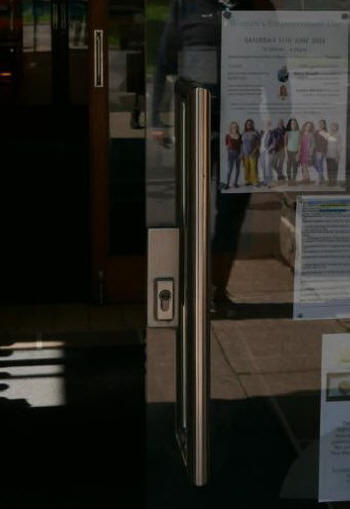
Above, posters displayed at the entrance to St
Columba's Church, Crosspool. The poster at the top
publicizes a 'Women's Empowerment Day' due to take place
at the Church on 11 June, 2022. In this section, I
provide evidence for my view that the event has some
disturbing implications. The speakers at the event,
Nancy Goudie and Joanne
Gilchrist have views which would probably come
as a surprise - or a shock - to many of the owners of
businesses which have displayed a poster. Below, there
are some quotations from Nancy Goudie's writing - claims
for miraculous cures for medical conditions at some of
her meetings, 'thousands saved and healed through the
love and power of God,' and this financial advice: 'how
to live by faith and depend on God for all their
finances both individually and corporately.' This
medical advice is surely reckless - potentially harmful
- to any woman (or man). This financial advice is surely
reckless - potentially harmful - to any woman (or man.)
I don't blame owners of businesses in the least for
displaying a poster. Running a business is intensely
demanding and it would be completely unrealistic to
expect them to find out about the background to an event
before deciding to display a poster. The posters have
been displayed by St Columba's 'sister Church,' Stephen
Hill Methodist Church and by businesses in the locality
and further afield, on the Facebook page of St Columba's
and on these Website pages of Sheffield Diocese.
https://www.sheffield.anglican.org/events
which claims 'The day features two amazing speakers
along side worship, prayer, songs and music.' and this
https://www.stpeterscollege.org.uk/events
'Join us for our Women's Empowerment Day. We
have a powerful day packed full of worship, prayer and
two fantastic key note speakers.'
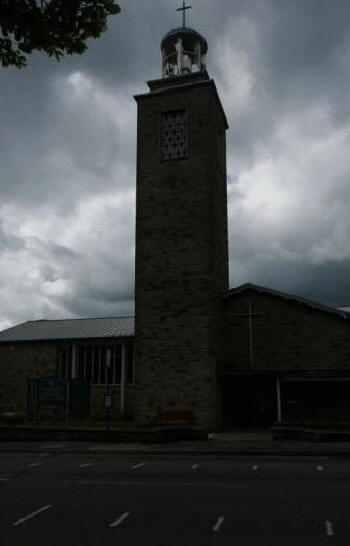
Above, St Columba's Church, Crosspool, Sheffield
Like St Mark's Church, Sheffield, St Columba's
Church could claim to be a liberal church, a
church which doesn't attract worshippers with an
overwhelming need to save unbelievers from
damnation. In the material on St Mark's, I've made
clear that I think there are many, many things wrong
with St Mark's Church, and I give the evidence. For
me, St Columba's Church gives a far more favourable
impression, but delving deeper uncovers many flaws.
I don't provide evidence here - for the time being.
I'll simply state that to me, this is yet another
church which is evasive in so many ways, a church
which ignores realities in so many ways.
According to the page
https://www.eventbrite.co.uk/e/womens-empowerment-day-tickets-296679134277
St Columba's Church is the Organizer of
Women's Empowerment Day.
St Columba's Church has publicized the event on its
Facebook page. The Women's Empowerment Day is due to
take place on 11 June 2022, starting at 9.30am, with
guest speakers Nancy Goudie and Joanne Gilchrist.
The cost is £20. According to the publicity,
'Bursary available if cost is prohibitive.' The
person to contact for financial aid is one of the
team members at St Columba's, not named here.
https://www.facebook.com/StColumbas
Crosspool/
The 'empowerment' isn't all it seems. It comes with
complications and very great difficulties.
Nancy Goudie
From Nancy Goudie's Blog page, Spiritual Health
Weekend 2022:
'There were so many who gave their lives to
the Lord we had to stop counting – including one who
was led to the Lord on the pavement on the way home!
Woohoo! So good. All these people are followed
up by the leaders who brought them.
'We also experienced so much physical
healing. One lady who could not raise her
hands above her head, or uncurl her fingers not only
did both of those things but also stood from a
wheelchair and walked across the room and stood for
15 minutes. God enabled her to do all these
things and when I announced it from the platform,
she raised her hands to show the rest of the
audience what God had done. Another lady who
had Rheumatoid Arthritis and couldn’t move her stiff
and bent fingers was healed. After prayer it
was as though she could play the piano – she was
moving them all in the air to show everyone what God
had done.'
The claims of physical healing by God's power
raise obvious questions, very disturbing questions.
More extracts.
http://nancygoudie.com/spiritual-health-weekends/
'Bring a party of 10 or more and the party leader
will be invited to a special champagne reception
with Nancy!'
http://nancygoudie.com/spiritual-health-weekends/ngshw-spain/
5th – 8th May 2023
I want to invite you to a very special, unique,
exclusive five star resort on the coast of Southern
Spain. This amazing five star resort has its own
beach, four swimming pools (one indoor and three
outdoor pools), a restaurant (with both indoor
seating and outdoor seating), a snack bar, a beauty
spa, a sauna, a steam room and plunge pools and a
well-equipped fitness centre. The beautiful five
star accommodation is in spacious, luxury apartments
with private balconies and many have garden views
and partial sea views. In each apartment you have
either three or two bedrooms, with two bathrooms
(bath and shower), a lounge, dining room and a fully
fitted kitchen with fridge/freezer, oven, hob,
microwave, dishwasher, washing machine and dryer.
The accommodation is to the highest standard. Each
apartment has a luxurious master bedroom with a huge
bath and a separate double shower. In some of the
three bedroom apartments the second bedroom has a
private balcony. I know you are going to love this
place.
This will be a Spiritual Health Weekend
like no other. It will be a place to rest, relax and
enjoy the sun and the wonderful surroundings ... We
will have sessions with intimate worship and
inspiring teaching. You will have individual prayer
and prophecy slots with Nancy and her team. You will
receive individual words from God and feel
completely restored, blessed and encouraged inside
and out. You will enjoy a free pamper treatment from
one of my team(Covid-19 rules permitting).
She promotes her spiritual health weekends
on YouTube. This is one of them:
Nancy Goudie's Spiritual Health Weekend 2022
Aug 23, 2021
Complete with claims and advice:
Nancy's creative and life-changing teaching!
Special individual words from God
5 star entertainment
Book your ticket now
Although she claims that God showers her with
blessings, so far, he hasn't showered her YouTube
videos with blessings, at least blessings measure by
views, comments and likes. At the moment, the count
for this video stands at
212 views 0 comments 1 like
According to
https://www.ngm.org.uk/resources/speakers/nancy-goudie/
Nancy Goudie is Head of the 'creative and innovative
charity ngm.'
' ... throughout the years, ngm have trained
thousands of young people in the arts and
discipleship and given them a vision of reaching
their full potential in God. They taught everyone
who joined ngm how to live by faith and depend on
God for all their finances both individually and
corporately ... under the umbrella of ngm ...
Throughout the 80’s they saw thousands saved and
healed through the love and power of God.'
I think that anyone in debt, anyone in business
facing bankruptcy would be disastrously misguided to
rely upon God for their financial security. Anyone
with a medical condition would be disastrously
misguided to reply upon the 'power of God' for
healing instead of modern medicine.
I think that this is an author not in the least
likely to have interesting insights on power and the
issue of women and power.
There are Christians who have achieved a
degree of notoriety by claiming that 'The Lord' has
blessed them in abundance - not just 'spiritual'
blessings but with expensive cars, vast,
luxurious mansions or 'material' blessings. I don't
claim that Nancy Goudie is in this category but it
was unwise of her to make this blatant claim.
Deep encounters with God in a 4 or 5 star
luxury hotel! I've experience of a 4 star hotel, but
never as a guest. I never experienced fun,
relaxation or any 'deep encounters with God there.'
From Nancy Goudie's blog
http://nancygoudie.com/blog/
'Helpful instructions/suggestions:'
'Every time you wash your hands, which should be
often – then pray a ‘Heal Our Nation’ prayer –
sing or speak the lyrics of ‘Heal our Nation’ and
ask God to pour out his Spirit on this land. ‘Heal
our Nation, Heal our Nation, Heal our Nation, pour
out your Spirit on this land.’ Sing or speak
that twice. And finish with the first line
from the verse ‘Lord we long for you to move in
power’ – and ask God to move in the UK but also move
in our world.'
This advice is surely futile, for reasons which
have often been made clear. According to orthodox
Christian belief, God is omnipotent and can achieve
anything he wants to achieve and is omniscient, and
needs no reminders in the prayers of Christians. To
ask God 'to move in the UK but also in our world' is
asking this God to intervene but according to
orthodox Christian belief, God already knows
everything about every possible situation.
The other guest speaker was Joanne
Gilchrist. Like Nancy Goudie, she has
conservative evangelical Christian beliefs.
She's a team member at the Oakes Holiday Centre,
Sheffield.
https://www.oakes.org.uk/team/faith/
The site has a 'Statement of belief:'
-
Sinful human beings are redeemed from the guilt,
penalty and power of sin only through the
sacrificial death once and for all time of their
representative and substitute, Jesus Christ, the
only mediator between them and God.
-
Those who believe in Christ are pardoned all
their sins and accepted in God's sight only because
of the righteousness of Christ credited to them;
this justification is God's act of undeserved mercy,
received solely by trust in Him and not by their own
efforts.
-
The Holy Spirit alone makes the work of Christ
effective to individual sinners, enabling them to
turn to God from their sin and to trust in Jesus
Christ.
-
The Holy Spirit lives in all those He has
regenerated. He makes them increasingly Christ-like
in character and behaviour and gives them power for
their witness in the world.
-
The one holy universal Church is the Body of
Christ, to which all true believers belong.
-
The Lord Jesus Christ will return in person, to
judge everyone, to execute God's just condemnation
on those who have not repented and to receive the
redeemed to eternal glory.
I'd claim that these beliefs are cruel, grotesque,
hideous - and false. Is it true that the Holy Spirit
makes Christians 'increasingly Christ-like in character
and behavour?' People in Crosspool and beyond, people
thinking of spending £20 to attend the event, or
thinking of applying for financial support from St
Columba's to attend the event, would benefit by
having a clear-sighted insight into the hidden agenda of
this not in the least innocuous event due to take place
at St Columba's Church.
Will the organizers show a great deal of restraint and
not emphasize such matters as the Gospel? If they do
emphasize such matters as the Gospel, it may be that
people who attend are very surprised by the
content. They may feel they have wasted their money, or
that St Columba's has wasted the bursary money.
This was written before the event took place. It has
been revised since then.
Stephen Hill Methodist
Church, Sheffield
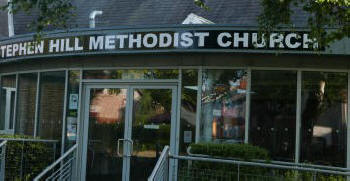
St Columba's Church, criticized above, has a partner
Church, Stephen Hill Methodist Church. The two Churches
are very near to each other. The material
relating to abuse in the Methodist Church below is
general material. There are no issues to do with
abuse whatsoever at Stephen Hill Methodist Church.
I do claim that giving money to the Methodist
Church is no more justifiable than giving money to the
Anglican Church. The challenges to Christian faith,
given concisely in the column to the right, apply in
large part to the Methodist Church.
The Methodist Church has substantial
issues to do with abuse. This BBC page gives an outline.
https://www.bbc.co.uk/news/uk-32909444
This is an extract from the Website of a firm of
solicitors. It is free from exaggeration. For the most
part, it makes general points.
A three year inquiry into complaints of physical and
sexual abuse involving the Methodist Church has
identified allegations against almost two thousand
perpetrators, taking place over the course of half a
century. When you consider that each perpetrator may
have had multiple victims, this means that many
thousands of innocent lives are likely to have been
affected.
200 allegations of misconduct concerned ministers of
the Church, with over half of these involving
allegations of sex abuse. [ I make the point that
allegations of misconduct are not the same as instances
of misconduct which can be proved beyond reasonable
doubt. ]
The Methodist Church hopes the independent report,
‘Courage, Cost and Hope’, will enable it to learn
‘lessons from the past’. However, the extent of the
abuse within the church has caused shock and outrage.
Clearly, fundamental changes to the way the Church
operates are called for.
...
Six separate police investigations are underway. It
is likely that many of the perpetrators will be brought
to justice.
The report criticised the culture within the
Methodist Church of ignoring suspicions and sweeping
allegations under the carpet to avoid an embarrassing
scandal. The Church’s failure to act is likely to have
allowed perpetrators of sex abuse to target further
victims.
An apology whilst welcome will not repair the harm
suffered by the victims. Sex abuse can change the course
of the victim’s life.
Preaching to the
converted and preaching to the unconverted: St Mary's
Church and Academy, Sheffield
St Mary's Church, Sheffield is close to where I live. The Church has an
associated an 'academy,' St Mary's Academy, a Church of England
faith school.
I've good reason to believe that the congregation of
St Mary's Church is very small. I have no evidence to
show that the Church is influential or important or that
the Church of England plays an important part in the
life of the community but the members of the
congregation and the clergy associated with the church
will have a different opinion, of course. The policies
and practice of the faith school make it seem that the
Church of England is very important, that Christian
faith is very important.
The
Website of the school has a page on what they call
'Theological Rational.' The wording is mistaken. The word that
should have been used is the noun 'Rationale,' not the adjective
'rational.'
https://www.st-marys.sheffield.sch.uk/theological-rational
This is a
short extract from the page. The density of Biblical texts is not
just excessive but amounts to attempted indoctrination, as I see it.
The pupils at the school include children with other faith views or
no faith views - but surely, children in this age group, primary
school children, should be spared religious 'teaching' of the kind
which flourishes at St Mary's Academy - if 'flourishing' can be used
of these practices. When they are old enough to come to a considered
view then religious views can be offered, together with
non-religious views.
' ... we look to the example of Jesus, the all-inclusive Saviour of
the World, who modelled grace to everyone with whom he came into
contact, no matter who or what they were, and regardless of
background, beliefs or status.
Through the values that we hold dear, our actions are guided by the
Christian principles which Jesus taught: to love (Jn13:34-35) and to
forgive others (Matt 7:12). In our learning, we all strive to work
hard (Eccl 9:10, 1Cor 15:58, Eph 6:7) as well as understand the
importance of rest (Ex 20:8-9) and to simply ‘Be still’ (Psalm
46:10). We also want our children to aspire, to be supported in
their learning & to have grit and determination to ‘press on towards
the goal’ (Phil 3:14) - even when it is challenging (Luke 22:42).'
'All
the children are familiar with our Theological Rational. In each
class an adapted version of the rational is on display for all
pupils to see.'
The claim on the page
https://www.st-marys.sheffield.sch.uk/whole-school-curriculum-overview
'At St Mary's we offer a broad and balanced curriculum' is surely
open to objection. The curriculum is far from balanced.
St Mary's Church is very dependent upon visiting
preachers. One of them is the Police and Crime
Commissioner for South Yorkshire, Alan Billings.
https://stmaryswalkley.co.uk/we-walk-on-holy-ground-14th-february-2021-the-sunday-next-before-lent/
The Sermon
By the Revd Canon Alan Billings.
Then we have the gospel for today. We jump forward 1200 years. Jesus
and his three disciples on another mountain. And the disciples have an
experience which is equally strange and mysterious.
They see their teacher and friend, Jesus, transfigured in front of
them, rather as the burning bush was transfigured for Moses. Again, a sense
that this is holy ground, a little fearfulness. Yet God draws near and
speaks to them out of the cloud that overshadows them, ‘This is my Son, the
beloved; listen to him!’
And this was the Gospel he refers to:
Mark 9.2-9
Six days later, Jesus took with him Peter and James and John, and
led them up a high mountain apart, by themselves. And he was
transfigured before them, and his clothes became dazzling white, such as
no one on earth could bleach them. And there appeared to them Elijah
with Moses, who were talking with Jesus. Then Peter said to Jesus,
‘Rabbi, it is good for us to be here; let us make three dwellings, one
for you, one for Moses, and one for Elijah.’ He did not know what to
say, for they were terrified. Then a cloud overshadowed them, and from
the cloud there came a voice, ‘This is my Son, the Beloved; listen to
him!’ Suddenly when they looked around, they saw no one with them any
more, but only Jesus.
Does the Revd Canon actually believe this? Does
he believe that Elijah and Moses talked with Jesus? Yes, he does believe
it.
The Revd Canon obviously has not just a high
opinion of Moses but believes that Moses has a very high place in the
history of God's revelation. This is a You tube video published by the
Rock Christian Centre, the place he attended to mark the relaunch of the
Christian Police Association - the Fundamentalist Christian Police
Association.
https://www.youtube.com/watch?v=uyAjdOLe1Ao&t=45s
The text which is spoken (Leviticus 20) is provided in written form.
Extracts from the text:
[1] The Lord said to Moses, [2] "Say to the Israelites: 'Any
Israelite or any alien living in Israel who gives any of his children to
Molech must be put to death. The people of the community are to stone
him.
[10] " 'If a man commits adultery with another man's
wife---with the wife of his neighbor---both the adulterer and the
adulteress must be put to death. [11] " 'If a man sleeps with his
father's wife, he has dishonored his father. Both the man and the woman
must be put to death; their blood will be on their own heads. [12] " 'If
a man sleeps with his daughter-in-law, both of them must be put to
death. What they have done is a perversion; their blood will be on their
own heads. [13] " 'If a man lies with a man as one lies with a woman,
both of them have done what is detestable. They must be put to death;
their blood will be on their own heads. [14] " 'If a man marries both a
woman and her mother, it is wicked. Both he and they must be burned in
the fire, so that no wickedness will be among you. [15] " 'If a man has
sexual relations with an animal, he must be put to death, and you must
kill the animal. [16] " 'If a woman approaches an animal to have sexual
relations with it, kill both the woman and the animal. They must be put
to death; their blood will be on their own heads. [17] " 'If a man
marries his sister , the daughter of either his father or his mother,
and they have sexual relations, it is a disgrace. They must be cut off
before the eyes of their people. He has dishonored his sister and will
be held responsible. [18] " 'If a man lies with a woman during her
monthly period and has sexual relations with her, he has exposed the
source of her flow, and she has also uncovered it. Both of them must be
cut off from their people. [19] " 'Do not have sexual relations with the
sister of either your mother or your father, for that would dishonor a
close relative; both of you would be held responsible. [20] " 'If a man
sleeps with his aunt, he has dishonored his uncle. They will be held
responsible; they will die childless.
[27] " 'A man or woman who is a medium or spiritist among you
must be put to death. You are to stone them; their blood will be on
their own heads.' "
Oxford University and
Christ Church, Oxford
The case of Professor Jan Joosten and the Christ
Church connection
I refer to 'the Christ Church connection' but obviously,
this isn't in the least a reference to abuse in the wider
community of Christ Church - I know of none - and isn't in
the least a claim that Christ Church tolerated the abuse
perpetrated by Jan Joosten. He was quickly removed by Christ
Church - but not quickly removed by the University of
Strasbourg, it seems.
Jan Joosten was a member of Christ Church, Oxford and a
Trustee of Christ Church. Christ
Church is a constituent college of Oxford University. Jan
Joosten was Regius Professor of Hebrew at the University. He
also held a post, for a longer time, at the University of
Strasbourg, France.
https://www.theguardian.com/world/2020/
jun/22/oxford-university-professor-jan-joosten-jailed-france-child-abuse-images
An Oxford University theology professor and former pastor
who downloaded 28,000 child abuse images and videos has been
sentenced to a year in prison and placed on the sex offender
register in France.
Jan Joosten, 61, who holds the prestigious regius
professorship of Hebrew at Oxford, was suspended [by Christ
Church]. He is considered one of the most distinguished
biblical scholars of his generation.
The academic, who lives in the Bas-Rhin region of France,
was sentenced by a court in the city of Saverne last week
over possession of about 27,000 images and 1,000 videos
after he admitted the facts of the case, Agence France-Presse
reported.
Prosecutors said the material downloaded by Joosten, who
spent six years as a pastor in his native Belgium, included
depictions of child rape.
The head of the college is the Dean of Christ Church. Christ
Church is unique among Oxford colleges in that
Christ Church, formally titled "The Dean and Chapter of the
Cathedral Church of Christ in Oxford of the Foundation of
King Henry the Eighth" is the only academic institution in
the world which is also a cathedral, the seat
(cathedra) of the Bishop of Oxford. Its Head
of House, who is head of both college and cathedral, must be
an Anglican cleric appointed by the crown as Dean of the
cathedral church. The Dean lives on site in a grand
sixteenth-century house in the main quadrangle.
From the Wikipedia entry on boiling alive, a punisment which
has a linkage with the Founder of Christ Church, King Henry
VIII:
In England, the ninth statute passed in 1531 (the 22nd year
of the reign of King Henry VIII made boiling alive the
prescriptive form of capital punishment for murder ... This
arose from a February 1531 incident in which the Bishop of
Rochester's cook, Richard Roose, gave several people
poisoned porridge, resulting in two deaths. A partial
confession having been extracted by torture, the
sentence was thus imposed by attainder and without benefit
of clergy.
A contemporary chronicle reports the following:
'He roared mighty loud, and divers women who were big
with child did feel sick at the sight of what they saw,
and were carried away half dead; and other men and women
did not seem frightened by the boiling alive, but would
prefer to see the headsman at his work.'
Boiling to death was employed again in 1542 for a woman,
Margaret Davy, who had also used poison.
These are episodes in the vast and horrific history of
Christian cruelty. People at Christ Church, Oxford, some of
them at least, must surely be aware of boiling alive, and so
many other instances of cruelty committed on the orders of
Henry VIII, but the depiction of the King on Website
materials published by the college don't mention them, or at
least the extracts I've seen.
The
Church of England Children's Society
The charity's income:
£38.4 million in 2017-18.
The donations of supporters: £17.4 million.
In June 2017, prompted by scrutiny from the Independent
Inquiry into Child Sexual Abuse (IICSA) into its past conduct, the
Children's Society admitted to its role in historic child abuse. The
charity was implicated in abuse arising from its role in
facilitating the migration of 3700 children to Australia, Canada and
Rhodesia (Zimbabwe). The charity also
issued an apology for abuse carried out in its children's homes in
the United Kingdom; 'We also want to acknowledge that it’s not only
child migrants who suffered at the hands of abusers. We are also
deeply sorry to any other people who in the past suffered neglect,
harm or sexual abuse while in the care of The Children’s Society
here in the UK...'
The charity had been aware of the abuse for many years, and
had paid damages in secret to victims, only admitting to these
payments in 2017 following scrutiny from IICSA. (From the Wikipedia
entry on The Church of England Children's Society.)
Instead of giving money to the Church of England Children's
Society, donors have a very large choice of other charities, from
very large to very small, working in the same field and similar
fields, or working on specific issues.
The case of Julie Morris
This is a section concerned not with a
church or a church organization but an individual Christian
believer. The information about this case here
comes from my page Abuse,
Safeguarding, Faith: the churches and their failures.
Although the page is extensive, it can only give a very small sample
of the failures of the Churches.
In my pages on Christian belief, the churches, Christian
organizations and individual Christian believers, I argue throughout
that faith in Christianity is misguided and that it would be very
mistaken to put implicit trust in churches, Christian organizations
and individual Christian believers. However, there are obvious
degrees of failure, vast differences to be found. In the cases
outlined in this section, the failures are very serious.
Julie Morris
was Deputy Headteacher, Staff Governor and Safeguarding
Lead at St George's Central Church of England Primary
School, Wigan
The charges against Julie Morris
were not connected with her employment at St George's
Central Church of England.
From the page
https://www.bbc.co.uk/news/uk-england-merseyside-59754035
A primary school deputy head teacher and her partner
have been jailed for dozens of child sexual abuse offences,
including nine counts of rape.
Julie Morris, 44, the safeguarding lead at a school in
Wigan, and David Morris filmed themselves abusing and raping
a girl under the age of 13.
The teacher was jailed for 13 years and four months.
Her 52-year-old partner, of St Helens, admitted 34
offences at a previous hearing and was jailed for 16 years.
Julie Morris, of Hindley, worked at St George's Central
C of E Primary School in Wigan but the charges are not
related to her employment.
Liverpool Crown Court heard the videos showed Julie
Morris giggling as the abuse took place.
Honorary Recorder of Liverpool, Judge Andrew Menary,
said: "Every now and again you see cases, the circumstances
of which are almost beyond belief. This is one of those
cases.
"It demonstrates that human depravity really knows no
depths."
The Crown Prosecution Service said it was one of the
most horrific cases they have had to deal with.
"It truly appears like both of them were equally
involved," district crown prosecutor Damion Lloyd said.
"They've formed this horrendous sexual interest in
children and they've acted out their most unpleasant
fantasies on the victim.
"It feels like the relationship between them is just a
self-feeding cycle where they have effectively driven each
other on to worse and worse acts."
In his 20 years of prosecuting, he said it was the
"pinnacle" of the most "disgusting and depraved types of
acts that people can discuss and do".
...
Julie Morris admitted two counts of rape, nine of
inciting a child under the age of 13 to engage in sexual
activity and two of engaging in sexual activity in the
presence of a child.
She also admitted three counts of taking indecent images
of a child, one of engaging in sexual communication with a
child and one of possessing indecent images of a child
Canon Alan Billings, South Yorkshire
Police and Crime Commissioner
From my page
https://www.linkagenet.com/themes/alan-billings-pcc-scrutiny-accountability3.htm
On 16 August 2012, the Home Office announced that every
newly elected police and crime commissioner would be
required to swear an "oath of impartiality" before taking
office ...
The then Minister for Policing and Criminal
Justice, Nick Herbert said,
Police and crime commissioners will be important public
servants and it is right that they make a formal public
commitment to the communities they will serve. Although
police and crime commissioners may stand for a political
party, the public will expect them to represent
all the people in their area impartially, without fear or
favour. The swearing of an oath will be an important symbol
of this impartiality, emphasising both the significance of
this new role in local communities and that commissioners
are there to serve the people, not a political party or any
one section of their electorate. An oath will also underline
the particular importance of even-handedness in an office
which holds to account the local chief constable and police
force who themselves are bound to serve impartially.
I do call into question the impartiality of Alan
Billings, not only in this section but in many other places.
His mildness of manner does not exclude the possibility of
recklessness in the least. I would claim that he has spoken,
written or acted with a disregard for the possible
consequences on various occasions, or multiple occasions. He
should have been 'above suspicion,' but has failed to avoid
the pitfalls which go with the post of Police and Crime
Commissioner, a post which gives very substantial powers,
exercised by a single person, without the system of checks
and balances which are an intrinsic part of politics at the
local and national level.
In the pages where I discuss the words and actions of
Alan Billings, I give many examples of words and actions
which I claim are in conflict with the impartiality expected
of Police and Crime Commissioners.
From my page
https://www.linkagenet.com/themes/billingsgate.htm
A question concerning 'hate crime.'
Quotation from one of the Billingsgate Questions below:
'If
a man lies with a man as one lies with a woman, both of them
have done what is detestable. They must be put to death;
their blood will be on their own heads.'
Is this verse from the Bible (Leviticus 20:13) an example of
'Hate Crime?' If not, why not? Is it harmful or absolutely
harmless? Is it the 'Word of God' or not? The people at Rock
Christian Centre, where Bibles were presented at the event
you attended, believe it's the word of God. The passage
where it appears is read out in one of the Rock Christian
Centre You Tube videos discussed below.
Is Alan Billings certain that this can't possibly amount
to thought crime or hate speech because it appears in The
Bible, 'the word of God.' Is it impossible for the word of
God to be hateful? Can he really claim that all the
instances of thought crime or hate speech dealt with by
South Yorkshire Police, with his active encouragement, are
more hateful than any of this?
By inserting material on your Christian beliefs into
newspaper articles, PCC blog articles, often with Biblical
quotations, by inserting a Biblical quotation into 'Keeping
Safe:' The Police and Crime Plan for South Yorkshire 2017 -
2021,' I claim that you've failed to adhere to the
principles of impartiality. I need to elaborate, I need to
give further reasons why your behaviour was wrong. Image
management is big business now. It's part of Public
Relations Management. 'Media mentions' are a part of image
management. Companies, but not just companies, organizations
of many different kinds, want to see favourable mentions,
not always direct mentions, in Web and print media. They
increase the Visibility of the Brand. Churches are a
kind of Brand. The public give them large amounts of money.
Granted, their costs are massive - all those massive
Churches to maintain - but the fact that they have all those
buildings is an indication of their financial power.
Favourable mentions are free advertizing, and what
you have done amounts to free advertizing. It may not have
influenced many people, but people who have rarely or never
given any thought to the church will have seen the names and
the references slipped into his accounts.
My case is that you have attempted to further the Church
and Christianity in ways which are not legitimate, given the
necessary restrictions on the activities of Police and Crime
Commissioners. I'd claim that you have broken your oath,
which requires Police and Crime Commissioners to be
impartial.
From my page
https://www.linkagenet.com/themes/police-pcc-international.htm
From the Sermonizing of Canon Billings at St Mark's
Church:
The Church of England used to be rather good at theology. I
say ‘used to be’, because for reasons I don’t wholly
understand, large parts of the contemporary church have
given up on theology. They have narrowed the range of
experiences we can draw upon, to one. The Bible ... Whatever
the question, the answer is in scripture. I don’t doubt the
zeal of people who treat the biblical books in this way, but
it can have the most unfortunate consequences.
At different times Christians who take this view have said
that childbirth can never be without pain because it says in
Genesis that ‘in pain you shall bear children’. Women could
be regarded as property because it says in the last of the
Ten Commandments that a man should not covet his neighbour’s
property – his house, his slaves, his animals, his wife.
Social welfare has been declared useless because Jesus said,
‘the poor you have with you always’. We laugh at this now,
but this approach to the Bible – divorcing it from theology
– is becoming dominant in the modern Church.
We need theology – reflection on that accumulation of
experiences – as well as scripture if we are truly to
discern God’s will.
When was this period, the period when 'The Church of
England used to be rather good at theology?' This bland,
sweeping statement, unsupported by any evidence, is quite
shocking. At all times, recent, less recent, centuries-old,
Christian theologians have disagreed strongly - sometimes
violently - with each other. The list of theological
'differences of opinion,' sometimes leading to open warfare,
is long and deeply depressing. Splits and schisms are
entrenched in the history of Christianity. Do sinners always
go to hell, no matter what good they have done in their
lives? They do, according to so many theologians, past and
present. Not so, according to other theologians who have
maintained that 'good works' can be taken into account.
A very different example, from a sphere very remote from
everyday human concerns but very important to the
theologians who debated these issues centuries ago - and
still debate them, the split between Eastern Orthodox views
and Western Roman Catholic views.
From the page
https://en.wikipedia.org/wiki/
Eastern_Orthodox_teaching_regarding_the_Filioque
The Eastern Orthodox interpretation of the Trinity is
that the Holy Spirit originates, has his cause for existence
or being (manner of existence) from the Father alone as
"One God, One Father" and
that the filioque confuses the theology as it was defined at
the councils at both Nicea and Constantinople. The position
that having the creed say "the Holy Spirit which proceeds
from the Father and the Son", does not mean that the Holy
Spirit now has two origins, is the position the West took at
the Council of Florence, as the Council declared the Holy
Spirit "has His essence and His subsistent being from the
Father together with the Son, and proceeds from both
eternally as from one principle and a single spiration.
My page
www.linkagenet.com/themes/cambridge-university.htm
includes profiles of Cambridge University theologians, which
will make clear, I hope, that in general, these people are
in no fit state to pronounce on matters beyond their arcane
specialities.
Dr Billings' pronouncements are always clear - clear but
confusing, again and again. On the pages of this site - I
don't provide links to these sections here, since there has
to be a limit to semi-scholarly citation of sources -
I discuss his use of a Biblical text about the Second Coming
of Jesus (this second coming will be a time when Jesus
carries out 'The Last Judgment,' according to orthodox
Christian theologians). He gives every appearance of
believing in a Second Coming. He stresses the New Testament
emphasis upon 'watchfulness' - calls it, being 'wake' -
before launching into a ridiculous claim that the New
Testament view of watchfulness or being 'wake' supports
present-day notions of the importance of being 'woke' or
politically correct.
Watchfulness - or being 'wake' - is stressed in this extract
from a theologian, quoted on the page
www.linkagenet.com/themes/fefe.htm
The extract comes from the site
https://www.thegospelcoalition.org/essay/the-return-of-christ/
DEFINITION
The Return, Second Coming, or Second Advent of Christ
refers to the future return of Christ to earth at the
end of the age. This return will be visible and physical
as he comes from heaven on the clouds to bring final
judgment and salvation.
SUMMARY
The New Testament establishes the doctrine of the Second
Coming. Jesus refers to his future return in glory.
While the term “Second Coming” or “Second Advent” does
not occur in the New Testament, there are several nouns
and verbs used to refer to the return of Christ. The
nature of the Second Coming is visible, imminent, and
final. The hope believers have of his return gives
confidence of his victory and the salvation of their
mortal bodies from sin once and for all to have a
glorified resurrected body that is pure, immortal, and
incorruptible (1Cor.
15:35-49).
The Second Coming, then, has implications for how
believers live day to day in an attitude of watchfulness
and readiness.
Introduction
The doctrine of the Second Coming or Advent of Christ
refers to the future return of Christ to earth at the
end of the age. This return will be visible and physical
as he comes down from heaven on the clouds to bring
final judgment and salvation. It is often associated
with the great day of the Lord in the Old Testament and
corresponds to the messianic prophecies anticipating the
messiah coming as King of kings in victory and glory to
triumph over all the enemies of God and his people. The
New Testament focuses primarily on the messiah’s first
advent with the ministry, death, resurrection, and
ascension of Jesus who came as a sinless sacrificial
lamb to make atonement for sin and provide salvation
through faith in him by inaugurating the New Covenant
...
In a sermon at St Mary's Church, Sheffield, he quotes a
Biblical text about God appearing to Moses in a burning
bush. He has never, to my knowledge, discussed the fact that
in orthodox Christian theology, Moses also received from
God, supposedly, the first five books of the Old Testament.
The quotations in the first column of the page from these
'books of Moses' are horrific.
Dr Billings discussed a pleasant little story about
Moses in the sermon, omitting the context or suppressing the
context. Could he give an opinion - as a theologian - on
this extract, quoted in my page
www.linkagenet.com/themes/fefe.htm
It's included in one of the questions which make up the
'Billingsgate Challenge'
www.linkagenet.com/themes/billingsgate.htm
Numbers 31, extract
The LORD said to Moses, 'Punish the Midianites for what they
did to the people of Israel ... So Moses said to the people,
'Get ready for war so that you can attack Midian and punish
them for what they did to the LORD ... The people of Israel
captured the Midianite women and children, took their cattle
and their flocks, plundered all their wealth, and burned all
their cities and camps ... Moses became angry with the
officers, the commanders of battalions and companies, who
had returned from the war. He asked them, 'Why have you kept
all the women alive? Remember that it was the women who
followed Balaam's instructions and at Peor led the people to
be unfaithful to the LORD. That was what brought the
epidemic on the LORD's people. So now kill every boy and
kill every woman who has had sexual intercourse, but keep
alive for yourselves all the girls and all the women who are
virgins.
If a preacher
includes this passage in a sermon, would the preacher be
liable to a charge of 'Hate Crime?' If not, why not? Or
perhaps the charge should be 'promotion of ignorance and
superstition.' My view is that Notice the pre-scientific,
anti-scientific, far-from-harmless view of epidemics and
their causes.
How are ordinary people supposed to recognize 'genuine'
orders of God, orders which can be acted upon, and 'false'
orders of God, all those repulsive and irrelevant orders
which form the greatest part of this 'revelation' by far.
Theologians have overwhelmingly taken the view that God did
command that disobedient sons should be stoned to death,
that 'witches' should be put to death - I don't need to
elaborate, because there's abundant evidence on this and
other pages, even though the evidence I give is only a small
part of the massive, cumulative evidence which it would be
possible to give, just about.
From my page
https://www.linkagenet.com/themes/police-crime-independent-ethics-panels.htm
I think that Alan Billings hasn't been vigilant enough.
He has preferred to concentrate his attention on failures of
safeguarding on the part of South Yorkshire Police. Has he
done enough - has he done more than the bare minimum - has
he done almost anything to ensure that South Yorkshire
Police have been in no danger of overlooking the problem of
abuse in the Churches? I think that this extract from the
'Factsheet' is very, very instructive, as is the other
content. The Factsheet deserves to be read with
care. The extract is followed by material on abuse in the
Roman Catholic Church.
Alan Billings has wanted to give the impression that the
Christian Church - in particular the Church of England - is
generally sound. He has sometimes been critical of the
Church but the criticism has been mild, amounting to Church
of England grumbling on the whole. He has completely
misunderstood the scale of the problems, which range far
beyond the issue of abuse and he has encouraged a climate of
opinion which vastly underestimates the scale of the
problems, for example by his use of the media. He has
found media outlets far too willing to believe that this
cleric tells it as it is.
From my page
https://www.linkagenet.com/themes/fefe-christianity-south-yorkshire-police.htm
Police and Crime Commissioners have very great powers,
including the power to remove a Chief Constable.
'Hillsborough police chief who was fired last year after
being accused of blaming the disaster on fans was
"unlawfully" removed from his job,' a court has found.
The High Court ruled that David Crompton, the former
chief constable in South Yorkshire, should not have been
forced to resign by Dr Alan Billings, the region’s police
and crime commissioner.
Mr Crompton was removed because of a press release
issued last April which alluded to "other contributory
factors" outside of police conduct, which the jury found
caused or contributed to the disaster. (Daily Telegraph, 19
June, 2017.)
The
relationship between Stephen Watson, the last Chief
Constable of South Yorkshire Police, and Alan Billings
seemed very amicable. The 'Chief Constable's Message,' part
of the document 'Keeping Safe,' goes much too far in
promoting Dr Billing's Plan, which isn't in the least free
from faults.
The relationship between Chief Constable and Police and
Crime Commissioner shouldn't be a symbiotic relationship in
the least. The two have very different roles. in a system of
checks and balances, responsibilities for oversight and
operational decisions and so much else. As it is, the Chief
Constable has gone in for a form of grovelling - or, rather,
has made not nearly enough effort to preserve a healthy
distance. He writes,
''The Police and Crime Plan sets out clear priorities for
the force and I have an unshakeable intention to ensure that
the plan is implemented and we achieve our objectives of
keeping South Yorkshire a safe place to live, learn and
work.'
The Plan sets out the views of one particular Church of
England 'Priest.' The Chief Constable has, or should have, a
far greater knowledge of operational police matters than Dr
Billings. His 'unshakeable intention to ensure that the plan
is implemented' isn't desirable in the least. As for the
objective of keeping South Yorkshire a safe place to live,
learn and work, can this be achieved, as he claims, South
Yorkshire can never become a completely safe place, unless
the Chief Constable believes that he can completely end gun
crime, knife crime and the other crimes that endanger the
community. He's surely more realistic, less utopian, in his
expectations?
Alan Billings, the South Yorkshire Police and Crime
Commissioner, has
identified 'Treating People Fairly' as one of the three
'Policing and Crime Priorities' in his glossy publication
'Keeping Safe: The Police and Crime Plan for South Yorkshire
2017 - 2021, Renewed 2019.'
Only a few categories of unfairness are discussed on the
page 'Treating People Fairly,' for example these:
'Ethnic minorities point to the fact that they are
disproportionately represented in the criminal justice
system and may feel that they have undue police attention.'
Other minorities - such as LGBT ... - may say they are not
recognized or understood as well as they should be. If hate
crimes are to be properly recorded and investigated we need
the police to understand what the issues are and what is at
stake.'
Dr Billings must understand that people who don't belong
to the communities he singles out can be treated unfairly by
the police. I hope that Dr Billings understands that an
accusation of hate crime can be completely unfair,
completely unjust - and that the issuing of a Harassment
Warning can be completely unfair, completely unjust.
Violent crime in South Yorkshire doesn't have a section
to itself in the short list of Priorities. It's included in
Priority 2, with anti-social behaviour and rates only a very
brief mention: 'In 2018 we were anxious about the rise in
violent crime, particularly stabbings.' This is followed by
a few general comments, including this hope: ' ... we want
to understand the reasons for the increase and we want to
see it brought down.' Gun crime in South Yorkshire doesn't
rate a mention at all, unlike the problem of off-road bikes:
'Often it is anti-social behaviour rather than crime that
most disturbs people. For example, last year many told me
how their lives were blighted by off-road bikes. I was
pleased, therefore, when the police established their biker
team that has been very successful in pursuing and
apprehending those who cause nuisance - and crushing bikes.'
The police haven't been as successful in pursuing and
apprehending those who cause much more than a nuisance.
In the same section, Dr Billings makes this claim:
'In South Yorkshire, all crime is investigated.'
It's alarming
that someone in his position, with his power can make such a
ridiculous claim. f he looks into the matter more closely,
he'll find that the claim is completely false.
I'm a non-believer. Dr Billings isn't a non-believer. He
describes himself as a retired Church of England priest. In
'Keeping Safe,' very unwisely, he includes, on Page 2, in
very large, very prominent letters, this quotation from the
Old Testament prophet Jeremiah:
'Seek the well-being of this place ... for in its
well-being you will find your own.' Jeremiah 29:7.
His Foreword ends with this:
The overriding message for the coming year (2019-20) is
that we must get better at working together for the common
good. The prophet put it this way: 'Seek
the well-being of the place where you are set ... for in its
well-being you will find your own'. (Jeremiah
29:7.)
Jeremiah's words had a specific reference. Dr Billings
ignores this and ignores the context. The complete text of
Jeremiah 29.7, in the translation of the King James Bible:
'And seek the peace of the city whither I have caused you to
be carried away captives, and pray unto the LORD for it: for
in the peace thereof shall ye have peace.'
The New International Version translation:
'Also, seek the peace and prosperity of the city to which I
have carried you into exile. Pray to the LORD for it,
because if it prospers, you too will prosper.'
'If it prospers, so will you.' Is this necessarily
the case? Not in the least. Does the second statement
necessarily follow from the first? Not at all.
There was, of course, absolutely no need for Dr Billings
to include this quotation from an Old Testament prophet. He
should have realized that he was writing for a community
made up of many different groups - not just Church of
England believers and other Christian believers but
non-believers, people with no belief in God or the Bible,
either the Bible as the inspired word of God or the Bible as
a good guide to contemporary problems, a community which
includes people with a wide range of religious and a
wide-range of non-Christian views.
From my page
https://www.linkagenet.com/themes/fefe-christianity-south-yorkshire-police.htm
Extracts from an article published in the 'Evening
Standard:'
South Yorkshire Police relentlessly mocked after
urging people to report one another for 'offensive or
insulting words'
The article quotes this tweet from South Yorkshire
Police:
'In addition to reporting hate crime, please report
non-crime hate incidents, which can include things like
offensive or insulting comments, online, in person or in
writing. Hate will not be tolerated in South Yorkshire.
Report it and put a stop to it.'
'It was relentlessly mocked, with more than 5,000
responses to the Sunday night post. Many people likened the
force to George Orwell's "Thought Police” from his novel
Nineteen Eighty-Four.'
'Scottish political analysis account Wings Over
Scotland tweeted: “So just to be clear: you want me to phone
the police when there hasn't been a crime but someone's
feelings have been hurt?” '
Alan Billings, the South Yorkshire Police
and Crime Commissioner, has defended the force's view of its
role - as having the right and the duty to investigate a
whole range of incidents which aren't crimes. This, to me,
is Alan Billings acting the part of South Yorkshire Thought
Police and Hate Crime Commissioner.
Nick Ferrari interviewed Alan Billings on
lbc radio. This gives a link to the interview, with other
material.
https://www.lbc.co.uk/radio/presenters/nick-ferrari/nick-ferrari-tears-into-crime-commissioner/
Extracts:
'After South Yorkshire Police asked the public to
report incidents in which they were offended, Nick Ferrari
had this fiery clash with their Police and Crime
Commissioner.
'In a time when the police are stretched due to
budget cuts, Nick was furious that they are wasting
resources on incidents that aren't even crimes.
'Speaking to Dr Alan Billings, South
Yorkshire's Police and Crime Commissioner, Nick told him:
"If a motorist cuts another motorist up in
Rotherham and one says the other a few choice words, we now
have to get the police involved, do we?
' "You've got enough police men and women, do you,
to come and talk to me about it?"
'And as Nick pressed Dr Billings on the
plan, it fell apart more and more.
'The conversation even ended with Nick having to
warn the Police and Crime Commissioner not to make comments
about an incident as it was still a live court case.'
From my page
https://www.linkagenet.com/themes/complaints-syp-pcc.htm
Extract from email sent to members of the Police and
Crime Panel, 22 December, 2022
The content of this email is wide-ranging and extensive,
you'll find. My
main reason for contacting you and other members of the
Police and Crime Panel is to make certain that you receive a
copy of a document which contains strong criticism of some
actions of the South Yorkshire Police and Crime
Commissioner. I have found great difficulties in what should
have been a simple task. Before providing the copy of the
document, I outline the difficulties.
Alan Billings holds South Yorkshire Police to account and
the South Yorkshire Police and Crime Panel to account -
that's the theory. Has he been successful in ensuring that
the public can comment on the work of the Commissioner? His
department doesn't seem to be a model of efficiency. In
fact, the initial impression would be unfavourable, if one
of the criteria is this very reasonable one: ensuring that
the public can contact members of the Police and Crime Panel
and members of the Independent Ethics Panel easily, without
the need to devote time and effort to internet searches and
sending emails to find out how emails can be sent to these
people.
If someone wants to complain about South Yorkshire Police,
then it's very simple - a well-designed and efficient system
is in place. It isn't only complaints and criticisms to the
Police and Crime Panel which meet with difficulties.
Attempts to find out information too.
https://southyorkshire-pcc.gov.uk/news/alan-billings-takes-office-as-police-and-crime-
commissioner-for-south-yorkshire/
For further details about the South Yorkshire Police and
Crime Panel please visit: www.southyorks.gov.uk
Clicking on this link gave an error message:
The page 'Police and Crime Panel'
https://southyorkshire-pcc.gov.uk/what-we-do/police-crime-panel/
includes this statement from the South Yorkshire Police and
Crime Commissioner:
I am ultimately accountable at the ballot box during police
and crime commissioner elections, held every four years.
During those four years, I I am held to account by the
Police and Crime Panel. The Panel is made up of 12 people –
ten Councillors from each of the four districts in South
Yorkshire, plus two independent members of the public ... I
have to report regularly to the Panel to account for the
decisions I make, or to be questioned by them and members of
the public.
So far from holding the Police and Crime Commissioner to
account, the Police and Crime Panel has shown itself to be
compliant, subservient. In this little world, Dr
Billings is very much the Master, the Police and Crime Panel
(and the Independent Ethics Panel) are very much the
servants.
But this section isn't about Dr Billings' claims and the
realities which make so many of his claims impossible to
accept but about the basic matter of operational efficiency.
He's responsible for the operational efficiency of his
organization. He can't blame South Yorkshire Police for any
deficiencies.
On the same page:
For further details about the South Yorkshire Police and
Crime Panel please visit: www.southyorks.gov.uk
Yet again, clicking on the link will get you nowhere. More
exactly, clicking on the link takes you to a page with the
familiar message
This site can't be reached.
Minutes of Independent Ethics Panel meetings are published
on the page
https://southyorkshire-pcc.gov.uk/what-we-do/iep/meetings-agendas-minutes/
and to give an adequate account of the Panel, I need to be
able to consult the minutes. I can, but the minutes
available online only go up to 16 December 2020. There are
minutes listed for 25 February 2021 and 27 April 2021 but
there's no link at all, not even a link which you can click
on which leads nowhere. So, the minutes haven't been updated
in years and the minutes for 2021, 2022 and for this year
aren't available to the public at all.
Since the Police and Crime Panel are supposed to 'hold the
Commissioner to account,' they can take account of the gross
inefficiencies in the organization he's responsible for.
This would be one of the easier problems to be addressed by
them. The problems to do with Alan Billings' failures to
follow the problem of impartiality and other failures
discussed in these pages are much, much harder.
After an internet search, I found a promising phone number
and at last, I got somewhere. I was able to send the
document I'd written giving critical comments about the
Police and Crime Commissioner. I asked that the document
should reach members of the Panel.
I brought the missing links to the attention of an official.
Now, I am assured, the email address PCP@syjs has
been fixed. However, at the time of writing, the link to www.southyorks.gov.uk has
still not been fixed. I see it as necessary to bring the
document to the attention of Alan Billings, to members of
the Police and Crime Panel and to members of the Independent
Ethics Panel. If the link had not been broken, I could have
submitted the document to members of the Police and Crime
Panel. I was able to send the document, but not directly to
members of the Panel. I have reasons for thinking that they
may well not have received the document. I've taken the step
of sending the document individually to the members at email
addresses which I know will work. I haven't been able to
send the document to members of the Independent Ethics
Panel.
Any member of the public who would like to contact the
Commissioner's Independent Ethics Panel for any reason will
have a frustrating time. I'm a member of the public who
needs to contact the Independent Ethics Panel and I've had a
frustrating time. No email addresses are provided for any
Panel member.
From my page
https://www.linkagenet.com/themes/police-pcc-panels.htm
Scrutinizing the work of the Commissioner is, or
should be, high-level work in many cases. To hold the
PCC to account properly will often involve challenging
the PCC: challenging work. On the evidence I have,
in South Yorkshire, it's much easier than that in
practice. By avoiding proper scrutiny of the PCC, by
failing to challenge the PCC when the PCC is open to
criticism, the work becomes much easier, a matter of
routine and token gestures.
To what extent do the members of the two panels
have the skills and general capability necessary for
efficient discharge of their duties? I examine below
Abdul Khayum, a previous member of the Police and Crime
Panel who was Chair at meetings of the Panel over a long
period. From the profile below,
A LABOUR Councillor who is also a
practising magistrate has been placed under official
investigation over social media posts calling for the
violent annihilation of Israel.
Cllr Abdul Khayum, who sits on
Sheffield City Council, is being investigated by Labour over
a series of shocking posts, including the sharing of a
pro-Islamic terrorist video that depicts graphic violence
and reads: “O Allah, destroy Israel ...
[I make it clear that I
don't have the result of the investigation. I don't claim
that the allegations were proved beyond reasonable doubt.]
Abdul Khayum was the Chair of the Police and Crime Panel
at the meeting of 7 July, 2017. One of the items recorded in
the minutes was this:
'Judicial Review: Outcome.' On 9 June 2017, the High Court
of Justice Queen's Bench Division quashed the four decisions
of the PCC (Police and Crime Commissioner) leading to David
Crompton being required to resign ...'
Abdul Khayum has stated that he's required to hold the
Police and Crime Commissioner to account but he did nothing,
and the so-called Independent Ethics Panel did nothing - I
can find no trace of the episode in the minutes of their
meetings.
The High Court of Justice had made serious criticisms of
actions of the PCC.
https://www.justiceinspectorates.gov.uk/hmicfrs/wp-content/uploads/crompton-v-pcc-approved-judgment.pdf
In the third column of my page
https://www.linkagenet.com/themes/police-crime-independent-ethics-panels.htm
a section, 'POLICE
AND CRIME PANEL FOR SOUTH YORKSHIRE VIEWS OF HM CHIEF
INSPECTOR OF CONSTABULARY IN THE CASE OF CHIEF CONSTABLE
DAVID CROMPTON.'
From the minutes of the Police and Crime Panel Meeting:
-
The Chair replied that he did not see any merit in going
over the details of the judgement or reviewing the
decision of the court. The
Panel were welcome to pass comments on the report or ask
for any clarifications but going back over the Judicial
Review and requesting the Commissioner to explain his
actions was inappropriate in this forum and would not
help the Panel going forward.
-
-
At the next meeting of the Police and Crime Panel,
Councillor Khayum was the Chair. He addressed the panel
in these terms:
The Chair reminded Members that the Panel’s role was
very clear; this was to challenge and scrutinise the
Police and Crime Commissioner. Evidence that the Panel
has been challenging the Police and Crime Commissioner -
or even the much easier task of 'scrutinizing' the
Commissioner - isn't very frequent in the minutes, but
there are heartening exceptions. A few Councillors have
been making an effort.
-
At the Panel meeting of 29 September, 2017, Councillor
Otten made these comments on the Chair's reluctance -
refusal - to request that the Commissioner should
explain his actions:
-
-
Minutes:
With regard to the Judicial Review: Outcome,
Councillor Otten stated that he felt that the
following statement in the minutes was
inaccurate: "to request the Commissioner to
explain his actions was inappropriate in this
forum and did not help the Panel going
forward".
Councillor Otten queried what the role of the
Panel was; if these words could be spoken and
recorded in the minutes.
L Noble confirmed that the words recorded in the
minutes were spoken by the Monitoring Officer at
the meeting.
Councillor Otten stated that, in his opinion,
this was a matter arising. He raised concerns
that Panel Members needed to understand what the
role of the Panel was, if it was not appropriate
to ask the Commissioner to explain his actions.
The Chair recalled from the meeting that, in
terms of Judicial Review Outcome, it would not
help matters moving forward, if Panel Members
were to go back and ask the Commissioner to
explain his actions and decisions.
Councillor Otten commented that, it was a
supremely narrow view of the role of this
Panel’s work if there are whole areas of the
Commissioner’s work, which fall outside of the
remit of this Panel’s scrutiny and challenge of
his decisions.
I have to say that the election address
Councillor Otten produced for the elections to
the post of Police and Crime Commissioner was
very disappointing, based on generalities.
Did he take more than a few minutes to write it?
The election was held on 6 May, 2021 and
Joe Otten didn't win. He stood for election in
2016 and didn't win.
From my page
https://www.linkagenet.com/themes/police-pcc-panels.htm
Professor A. Macaskill,
Chair of the Independent Ethics Panel
-
Introductory comment: Professor A. Macaskill
is Chair of the Independent Ethics Panel.
Not many Police and Crime Commissioners have
an Independent Ethics Panel. I've examined
the work of the Panel in detail and my
conclusion is that its work falls well short
of mediocrity. I think it's very likely that
the mere existence of this panel, with its
impressive title, enhances the reputation of
Dr Billings as an impressive ethical
thinker. He's nothing of the sort. His work
too falls well short of mediocrity.
-
'Independent Ethics Panel.' The implicit
claim to genuine independence is unearned.
To give a
name to the panel which includes the word
'independent' doesn't guarantee in the least
a panel which is genuinely independent.
-
Professor Macaskill teaches and
researches at Sheffield Hallam University.
Here, I only comment on one publication
of Professor Macaskill and the comment is
very brief - but my provisional judgment is
that, on the evidence of this piece,
Professor Macaskill isn't a writer who goes
beyond platitudes - academic platitudes and
platitudes of the more general kind. I'll
have to examine much more of her writing to
see if this tentative judgement is
confirmed.
https://shura.shu.ac.uk/127/1/
MACASKILL, A. (2005). Defining forgiveness:
Christian clergy and general population
perspectives. Journal of personality, 73
(5), 1237-1267.
The present research contributes to the
search for conceptual clarity by exploring
the definitions and parameters of
forgiveness employed by Anglican and Roman
Catholic clergy in England and then
comparing these to data collected from a
general population sample. Clergy provide
moral and spiritual leadership within their
communities and deal with issues of both
Divine and human forgiveness on a regular
basis, so a logical starting point is to
explore the conceptions of forgiveness that
they themselves hold.
'Definitions and parameters' is a
pretentious phrase which is surely inserted
for show, or the result of the process of
'reflex thought.' 'Reflex muscle action is
familiar enough, the process initiated by a
stimulus. No conscious processes are
involved. Reflex action which produces such
phrases bypasses thought almost as
completely.
A much more prominent example of 'reflex
action' from the article. Some thought was
needed to come up with the phrase, but not
very much:
'Clergy provide moral and spiritual
leadership within their communities and deal
with issues of both Divine and human
forgiveness on a regular basis ... '
Routine semi-mathematical equipment suitable
for the manipulation of statistical data is
visible on the page but what is lacking is
any relevant concrete evidence.
These are pious phrases. To have included
concrete evidence would have been to mix
genres, to insert material which would
almost certainly not have been to the liking
of the editor or editors and the readership.
Clergy don't provide moral and spiritual l(M
and S) leadership within their communities.
They only provide a form of M and S
leadership within their churches, and not
everyone in their churches will have respect
for them or pay any attention to their pious
phrases.
-
My page
https://www.linkagenet.com/themes/police-crime-independent-ethics-panels.htm
contains a Factsheet. It provides evidence
concerning the massive - insuperable -
difficulties of automatically assuming that
people she assumes are 'moral and spiritual
leaders' are anything of the kind.
Her unargued assumption that there is such a
thing as 'Divine forgiveness' (the capital
letter in 'Divine' is provided by the
Professor) is surely an aberration in a
journal not published by some Conservative
Evangelical or Roman Catholic publishing
outfit.
-
Paul Butler, Bishop of
Durham
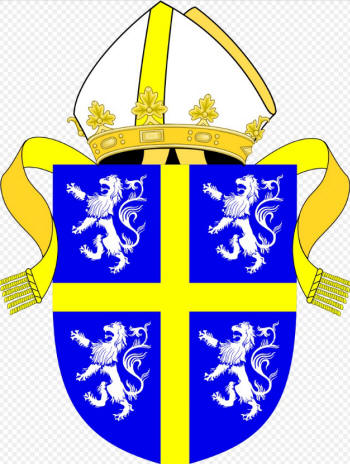
18 March 2016
https://www.churchtimes.co.uk/articles/2016/18-march/news/uk/abuse-case-turns-spotlight-on-to-flawed-c-of-e-safeguarding-practices-1
The Church of England’s safeguarding
procedures in cases of reported sexual abuse
have been condemned as “fundamentally flawed” by
an independent review, which was commissioned by
the Church.
...
The review, which was carried out by Ian
Elliott, a safeguarding consultant with the
Churches’ Child Protection Advisory Service,
considered the Church’s response to allegations
of sexual abuse by the Revd Garth Moore, a
former Chancellor of the dioceses of Southwark,
Durham, and Gloucester, who died in 1990. It
concerned an attempted rape by Chancellor Moore
of “Joe” (not his real name), which took place
while Joe, then aged 16, was staying as a house
guest at Chancellor Moore’s rooms in Gray’s Inn.
Joe was then drawn into what he has
described as an exploitative and emotionally
abusive relationship by Brother Michael Fisher
SSF, who later became Bishop of St Germans.
The review, which has been seen in its
entirety by the Church
Times and The
Guardian, is unsparing in its criticism of the
way in which the C of E handled this case,
accusing the Church of relying on good will, and
withdrawing pastoral support as soon as the
matter of financial compensation was mentioned.
“This approach, of relying on widespread
good will and a shared commitment to best
practice . . . has been shown in other
situations to be fundamentally flawed,” it
concludes.
...
Joe’s allegations are “credible”, and
reveal a “tragic catalogue of exploitation and
harm”, the review says. In December, the diocese
of London reached a £35,000 settlement with him,
and agreed to commission this report into the
case.
The Bishop of Crediton, the Rt Revd Sarah
Mullally, was given the task of taking up the
report’s conclusions. She said that, in a
meeting last week, the Archbishop of Canterbury
had told her that all the recommendations had
been accepted, and would be implemented.
She said she had been horrified by what
she read. “It’s embarrassing and uncomfortable
reading for us. I was disappointed. The Church
of England commissioned this piece of work
because it wanted to learn from this particular
survivor, and from his experiences. We owe it
not just to [him] but to others to say that we
will listen better, believe quicker, and respond
appropriately.”
...
On many occasions he had told senior
clerics and other figures in the Church about
the serious sexual abuse that he had suffered
while he was a teenager, but no significant
action had been taken.
Several of the people to whom Joe had
reported the abuse told the Elliott review that
they had no recollection of this. “The fact that
these conversations could be forgotten about is
hard to accept,” the review says. “He would be
speaking about a serious and sadistic sexual
assault allegedly perpetrated by a senior member
of the hierarchy.”
Furthermore, no one had made any written
record of what had been discussed, and this
amounted to “unacceptable practice. . . If
anyone is involved in receiving a disclosure of
abuse, they should record the detail of what was
said, and set out with their informant what
actions would be taken by them, when they would
take them, and why.”
In 2014, Joe finally secured a
meeting with the Bishop of Durham, the Rt Revd
Paul Butler, who leads the C of E’s safeguarding
work. Shortly afterwards, Joe began legal
proceedings aimed at securing compensation.
At that point, the Church was
advised by its insurers to break off all contact
with Joe. Consequently, Bishop Butler, and staff
at Lambeth Palace who had also been contacted by
Joe, did so. They later told the review that
they “bitterly regretted doing so”.
Cutting off contact with survivors is
“unacceptable practice” and contradicts the
Church’s own principles set out in its
safeguarding guidelines, the Elliott report
says. It recommends that pastoral support should
never be withdrawn from any survivor simply
because of concerns about financial or legal
liability. Instead, the Church’s first response
must always be a written apology to survivors,
and then the offer of a “process of healing” for
both their emotional and spiritual health.
Training for the bishops and senior
clergy, which is already under way as part of
the Green report, must now include specific
training on what to do when someone discloses
sexual abuse, the report recommends.
The Bishop of Butler is a Conservative
Evangelical. He emphasizes 'Biblical truth,' the
Bible as Guide. Again and again, it has been
found that 'Bible truth' has failed to guide
people in good practice - and that
Bible-believing Christians can fail in
understanding, sympathy and other human
qualities should guide their response to acts
such as rape and other forms of abuse.
The abusers themselves don't lack orthodox
belief, a knowledge of the Bible, a belief in
the Bible and in Christian doctrine. Abusers,
including gross abusers, pray, worship, deliver
sermons in many cases, just like Christians who
are not abusers. The Holy Spirit can be sent for
the benefit of all of them, allegedly. But
none of these 'benefits' are the effective
safeguards which are needed. The Church has had
to learn the lesson that good practice,
scrupulous care to follow various measure are
needed - an approach which is essentially
secular. The 'imitation of Christ' has not made
the use of secular measures unnecessary, quite
the opposite.
Bishop Butler prayer walks for a week every
year. He was prayer walking well before his
decision to break off all contact with Joe, to
offer him no support at all. Kind, generous,
understanding, sympathetic, compassionate people
haven't become kind, generous, understanding,
sympathetic, compassionate by praying or prayer
walking. According to the Bishop of Durham's
Christian beliefs, kind, generous,
understanding, sympathetic, compassionate people
are destined for eternal separation from God -
the state called 'hell' - if they fail to accept
Jesus as Saviour. In the Bible, kind, generous,
understanding, sympathetic, compassionate people
are few and far between.
On the evidence available to me, the Bishop
of Durham is a very unimpressive figure.
I'm not impressed by the fact that he is one
of the 'Lords Spiritual,' one of the 26 Church
of England Bishops / Archbishops (out of 42) who
sit in the House of Lords. I'm not sure what
such a person can contribute to the political
life of the nation.
Winchester Diocese
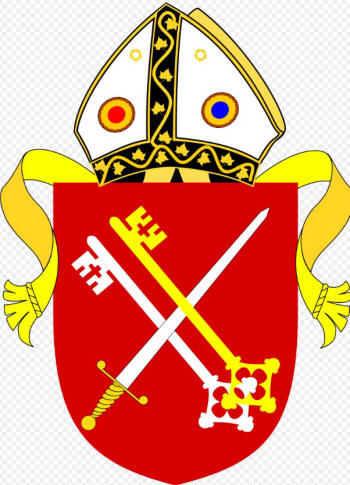
-
Tim Dakin, no longer Bishop of
Winchester: a Conservative Evangelical. A
committee member of the Evangelical Group of
the General Synod of the Church of England.
A member of the Church Mission Society.
On 20 May 2021 it was reported that
he had 'stepped back' as Bishop of
Winchester for six weeks. He was faced with
a possible, or probable vote of no
confidence. A motion had been prepared: 'We
do not have confidence in the diocesan
bishop ... to lead by example, due to
allegations of poor behaviour and
mistreatment on his part of a number of
individuals.' It described administrative
and financial management in the diocese as
'unfit for purpose.' The motion was
rescinded when he 'stepped back.'
David Williams, the suffragan Bishop of
Basingstoke also stepped back. He had been
one of the people presenting complaints to
Lambeth Palace.
Extracts from a page of the site
'Surviving Church.'
https://survivingchurch.org/2022/02/01/departure-of-tim-dakin-from-winchester-some-thoughts/
Departure of Tim Dakin from
Winchester. Some thoughts 1 February
2022
His style of theology and administration
had always breathed the supremely confident
stance of the evangelical believer who
claims to know the will of God at all times.
This was proving now not to be true and,
because of this loss of control, there was a
strong sense of dissonance in his voice.
As someone who is sensitised to the use
of power in church settings, I found the
public speaking demonstrations by the Bishop
uncomfortable to watch. There was never, to
judge from his style of speaking, any
obvious space for any kind of dialogue with
another theological position. Rather, the
theological vision of Dakin, particularly
as revealed by his on-line performances,
felt like a tank driving relentlessly
forward, flattening anything or anyone who
did not agree. When I learned that Dakin’s
vision was that mission should dominate
everything undertaken by the diocese,
including ministerial training, it set off a
shudder inside me.
One single inconvertible fact about
Dakin’s time as Bishop is that there are
currently quite a number of wounded
survivors of an abrasive episcopal pastoral
ministry. I have no access to actual names
or situations, but there seems to be a
consensus on this point among all those who
comment on the Winchester situation. Cases
of bullying, wherever they occur, have a
contagious effect. One person’s bullying
can cause a collapse of morale in a family,
a parish or an entire deanery. The would-be
complainants at the Winchester Diocesan
Synod last June, knew from their personal
acquaintance, some of these traumatised
individuals in the diocese. The individual
cases of the traumatised were not only those
directly affected by the bully’s actions,
but others who knew about them. If we leave
to one side all the other financial and
administrative issues which seem to have
played a part in the complaints against the
Bishop, we still have this issue of damage
and hurt. How does one deal with such
things? In the Winchester situation, the
moment for reconciliation between
perpetrator and victims seems to have long
passed.
Visiting cathedrals
and churches. Supporting them by paying an
admission charge or making a donation.
I've a strong interest in architecture
and the built environment. In one extended
period, a long time ago, I went on study
visits to study cathedrals and , churches.
Some of the books on architecture on my
bookshelves are books on Christian
buildings, for example two of the many books
I have in the Thames and Hudson 'World of
Art' series, 'The Cathedrals of England' by
Alec Clifton-Taylor and 'English Parish
Churches' by Graham Hutton and Olive Cook.
Amongst the Church buildings I travelled
to see and to study specifically, rather
than the many I've visited as
part of a wider tour, were Ely Cathedral and
Lincoln Cathedral, Beverley Minster and St
Botolph's, Boston. This year, I've visited a
large number of parish churches in North
Derbyshire and beyond - the border with
Derbyshire is near this part of South
Yorkshire - including Eyam, Tideswell,
Ashbourne, Hathersage, Baslow, Youlgreave,
Ashton-in-the-Water.
I don't regard any of the cathedrals,
churches and chapels I've visited with
affection. The case is very different with
the vernacular architecture of South
Yorkshire, Derbyshire and other parts of the
country. The vernacular architecture of the
South Pennines is a particular interest - a
passion - buildings of stone, with stone
tiles, in a setting which always has a
strong interest to me and often enthralling,
sometimes wild , sometimes pastoral,
sometimes made up of other buildings with
great visual impact. Sometimes, the
vernacular buildings were built for
industrial use. I'm a member of South
Yorkshire Industrial History Society and the
society owns buildings which are of very
great interest.
I donate to the Society but it's
inconceivable that I would donate to a
cathedral, church or chapel. I never put any
money in a collection box. My visits to
cathedrals were made at a time when there
were no admission charges to cathedrals.
It's inconceivable that I would pay an
admission charge to visit a cathedral. I
provide argument and evidence in quantity on
this page and other pages of the site which
explain my reasons for refusing to give any
money for the upkeep of church buildings. Of
course, I wrote the pages with a much wider
aim in view.
Christian believers will continue to give
money for the upkeep of church buildings -
or some of them will - but my view is that
it would be mistaken for non-believers to
give money for this purpose.
I take this view for many reasons. One of
the most important has to do with Christian
views of salvation, a set of arguments I
mention often in my writing on Christian
belief.
Aesthetic considerations are completely
unimportant in the Christian view of
salvation. The Christian view of salvation
is restrictive, terrifying restrictive.
Non-Christians who visit a cathedral
or church or chapel obviously gain
absolutely no benefit in the Christian
scheme of salvation. According to this
scheme, the many, many people who pay to
visit a Cathedral which charges for
admission are destined to be eternally
separated from God - the condition referred
to as 'hell,' of course - except for the
small minority who accept Christ as Saviour.
Similarly for visits to cathedrals and
churches which have no admission charges.
I see no reason whatsoever to give money
to places which have these doctrines.
Visitors who put money in collecting boxes
during their visits, visitors who arrange
standing orders to pay money to this
institutions, would be well advised to give
money to other causes - to deserving causes,
not to the undeserving money collectors of
the churches. There are many, many charities
working in the field of the built
environment, many, many buildings which
would benefit so much from the money - and
which don't have the burden of obnoxious,
worse than obnoxious doctrite.
The Websites of cathedrals and churches
which attract many visitors are generally
slick, calculated to encourage the giving
instinct. My view is that visitors, and the
armchair visitors who look at the Websites
without visiting the cathedral or church,
should resist the pleas for money. Church
buildings with a very long history tend to
emphasize the history - and the history they
present is generally grossly distorted,
omitting all mention of the shameful,
dreadful episodes which form part of the
history of Christianity.
Claims made in the pages of Church
and Cathedral and Christian organization
Websites are so often hollow, to be more
exact, completely false.
If giving to the churches declines, as is
likely, given the declining fortunes of the
churches, the generally declining
congregations - and I hope the decline in
all aspects of Church life will be very
marked, again, for the reasons I give on
this page and other pages, then the churches
have available 'the power of prayer,' the
supposed power of prayer. Let Christian
believers pray for God's help in these
stressful times, as the problem of shortage
of money increases. But prayer isn't the
method of choice for Christians. It plays
what is in effect a minor role in so many
situations faced by the churches. My own
view is that prayer is useless - for
halting the spread of infectious disease,
for bringing wars to an end, for all
purposes except giving the believer a false
sense of well-being. Prayer is useless for
saving churches from becoming redundant, for
halting the long term, thoroughly deserved
decline of Christianity. Visitors who give
money to churches could reflect on the
disadvantages, which include depriving good
causes of money given to the churches.
Churches aren't good causes in the least,
for the reasons made clear on this page and
other pages of the site.
Print publication
and its finances. Supporting pro-Christian
publications, eg The Daily Telegraph and the
Spectator. Buying
books and buying Christian books.
This section, and the preceding
section, are the newest sections of what
is the newest page of the site.
They are very recent. These sections and
other sections of the page will be
revised and extended.
For many years, I subscribed to the
Spectator. For many years, I bought the
print version of the Daily Telegraph, almost
always four or five times a week and more
often than not five times a week. Then I
cancelled my subscription to the Spectator
and at about the same time stopped buying
the Daily Telegraph. I haven't bought it
since then.
They are publications I respect and
admire - the Daily Telegraph more than
the Spectator. The Daily Telegraph in
particular is consonant with my mainly
conservative views. I vote Conservative.
I voted for Brexit. The Daily
Telegraph's firm view of the importance
of defence - the necessity of
maintaining strong defence forces to
deter aggression against this country
and to contribute to security in Europe
and beyond - is a view I share
completely. Again and again - far more
often than not - articles
and features in the Daily Telegraph have
impressed me.
Large and complex organizations
almost always have failures in their way
of working and failures to accompany
their record of achievement. Good
organizations, organizations well worth
supporting, financially and in other
ways, have achievements which outweigh
the failures. My comments below apply to
the Spectator as well, mutatis
mutandis.
The Daily Telegraph's support for
Christianity is what persuaded me to
stop supporting the paper - there
weren't articles putting the case for
Christianity. That would have needed a
level of insight which wasn't to be
found in the articles, showing a
recognition of some possible objections
to christianity which needed to be
addressed. Instead, there mas the
blissful, and ridiculous assumption that
Christianity must be true. The articles
were all about peripheral aspects of
Christianity. I have to say that none of
the articles left an impression and that
I can't recall the content of any of
them, or not in the least detail.
Since then, I've evidence that the
Daily Telegraph is still in a state of
dogmatic slumber. It has been
publicizing the work of
Save the Parish,
criticized on this page.
The fundamental objections to
Christianity are very different from the
differences of opinion which underlie
the activity of 'Save the Parish' and
its detractors. The fundamental
objections to Christianity are
objections to 'Save the Parish' and the
view of the detractors, above all, ones
concerning orthodox Christian views of
salvation, shared by the majority - the
vast majority - of Christians who aren't
nominal Christians but the ones who go
to Church and who regard
Christianity as 'God's truth' and the
Bible as 'God's word,' even if they
don't believe in the literal truth of
all of it.
To apply the orthodox Christian view
to the staff of the Daily Telegraph, the
readers of the Daily Telegraph, the
advertizers who help to fund the Daily
Telegraph, and the people who feature in
Daily Telegraph news reports or other
items, such as members of the House of
Commons - the Christian view has dire
consequences. Of these people, only the
ones who come to accept Christ as Lord
and Saviour have eternal life in union
with God. All the others are separated
from God for eternity.
There are complications and
qualifications. Some Christians, large
numbers of Christians, may qualify this
view, justification by faith, with
'justification by works,' which takes
into account actions. In the large
number of case histories and discussions
in the pages of the site, I'd claim that
I do show that the hideous consequences
of Christian belief are real.
It may well be that the Daily
Telegraph comes to its sympathetic view
of Christianity by using more pleasing
features, such as the place of Christian
churches in our national history and
locally, such as idyllic and beautiful
places. But the historical associations
of Christianity, the beauty or otherwise
of a place where Christianity may or may
not be found, are irrelevant in
Christian faith, for the purposes of
determining destiny. Again, this page
and other pages supply the argument and
the evidence for my view.
The long term decline in Christianity
will obviously have an impact on the
fortunes of Christian publishers, Christian
booksellers and the Christians who have
Christian books published and sold. The
number of non-Christians who buy such books
as these must be very small.
I do buy books by Christians on
Christianity, but not very often, simply for
the purposes of adding to the content of
this site, the content which concerns
aspects of Christian belief.
When I buy these books, my policy is very
different from the policy which guides my
buying of books in just about every other
kind of subject matter.
My house is small and all the rooms are
small. One downstairs room is mainly a
workshop, with a workshop, storage areas for
tools and supplies and the tools themselves.
One upstairs room has a workbench, more
storage space for equipment and a kitchen
area. I only have one room available for
books, again, a small room. I've made good
use of the space available. Bookshelves take
up the largest part of the wall area and I
have many, many books, on a very wide range
of subjects, including the small theological
/ Christian section.
Supporting the work of writers in print
media, particularly in book publication but
also in , newspaper and magazine publication
has been very importan to me and still is in
many respects, but the lack of storage space
has had its effect.
A significant proportion of the books are
academic books, although not all the authors
are actual academics. They include writers
of detailed studies which can be respected.
All the authors of the scientific and
technological books are, or used to be
academics.
if at all possible, i buy books new
rather than second-hand. If an author has
worked very, very hard to produce a book
well worth reading and study, then the
author deserves to be supported financially.
Quite recently, I bought a scientific book
in a second hand bookshop which I
appreciated very much when I read it, so I
bought a new copy. It had the advanage of
being the current edition, whilst the second
hand book was an earlier edition, and the
new edition had much fuller content, but it
was important to me to show appreciation by
buying a version which would contribute to
the author's royalties.
I've a large number of second hand books
as well as books bought new, but books which
are out of print form a large part of the
second hand book collection.
All the Christian books I have are second
hand. They include some superficial books by
Alan Billings, the South Yorkshire Police
and Crime Commissioner. I did buy one
Christian book new, a very slim one, more a
pamphlet than a book, which didn't cost very
much. I bought it new because I wanted to
take a look at it and there were no second
hand sources of supply. The book is
'Creative Tension in Urban Mission:
Reflections on Missional Practice and
Theory.' The author is employed be the
Church Army at its headquarters in
Sheffield. It presents nothing of any value,
although the author is, I would think,
less naive than many others in the grossly
overcrowded Christian book market.
-
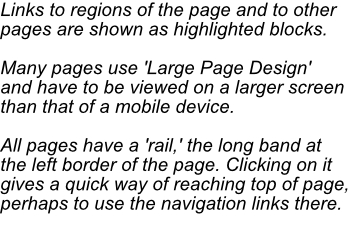
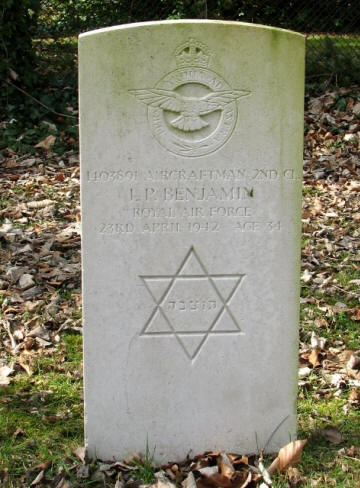
_-_geograph.org.uk_-_1604891.jpg)
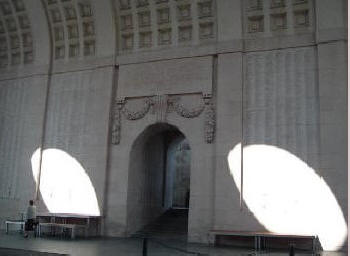

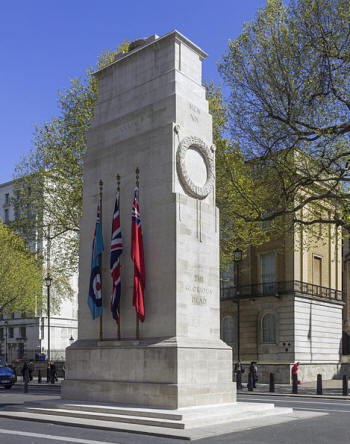
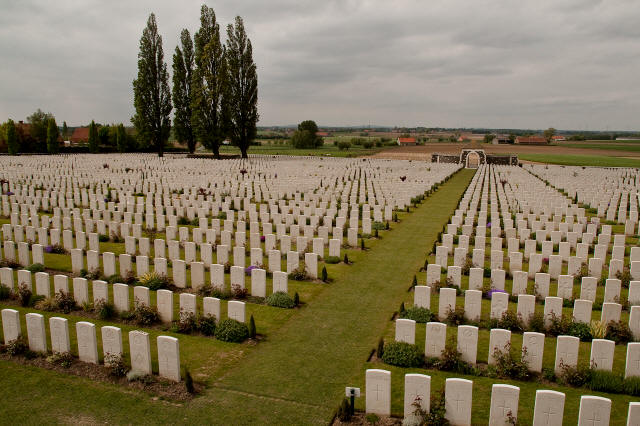
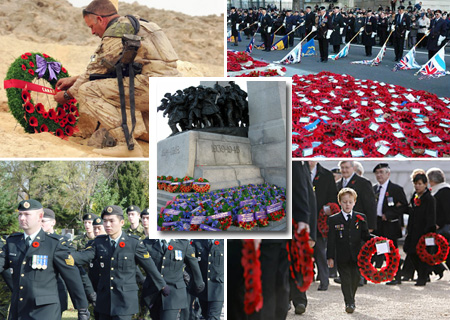
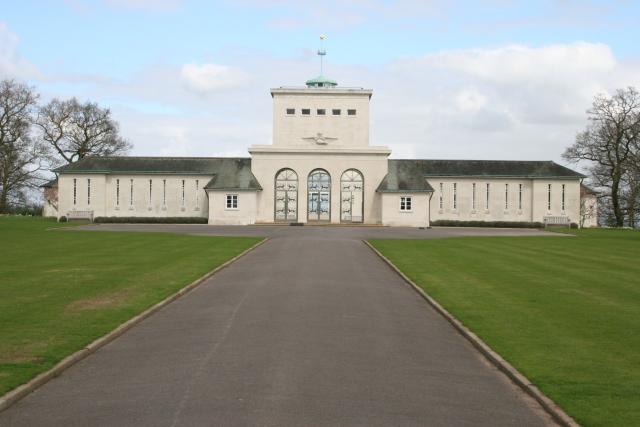





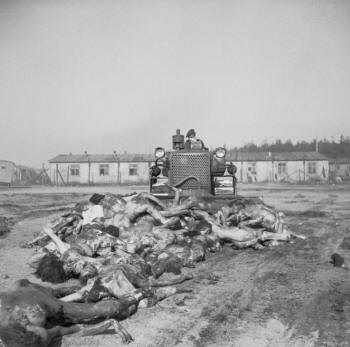
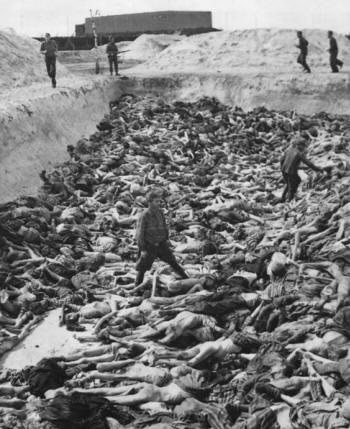
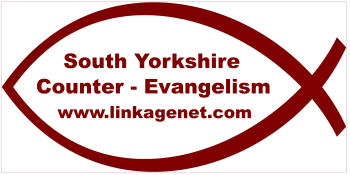
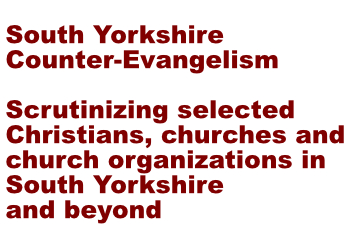 In this column
In this column





























